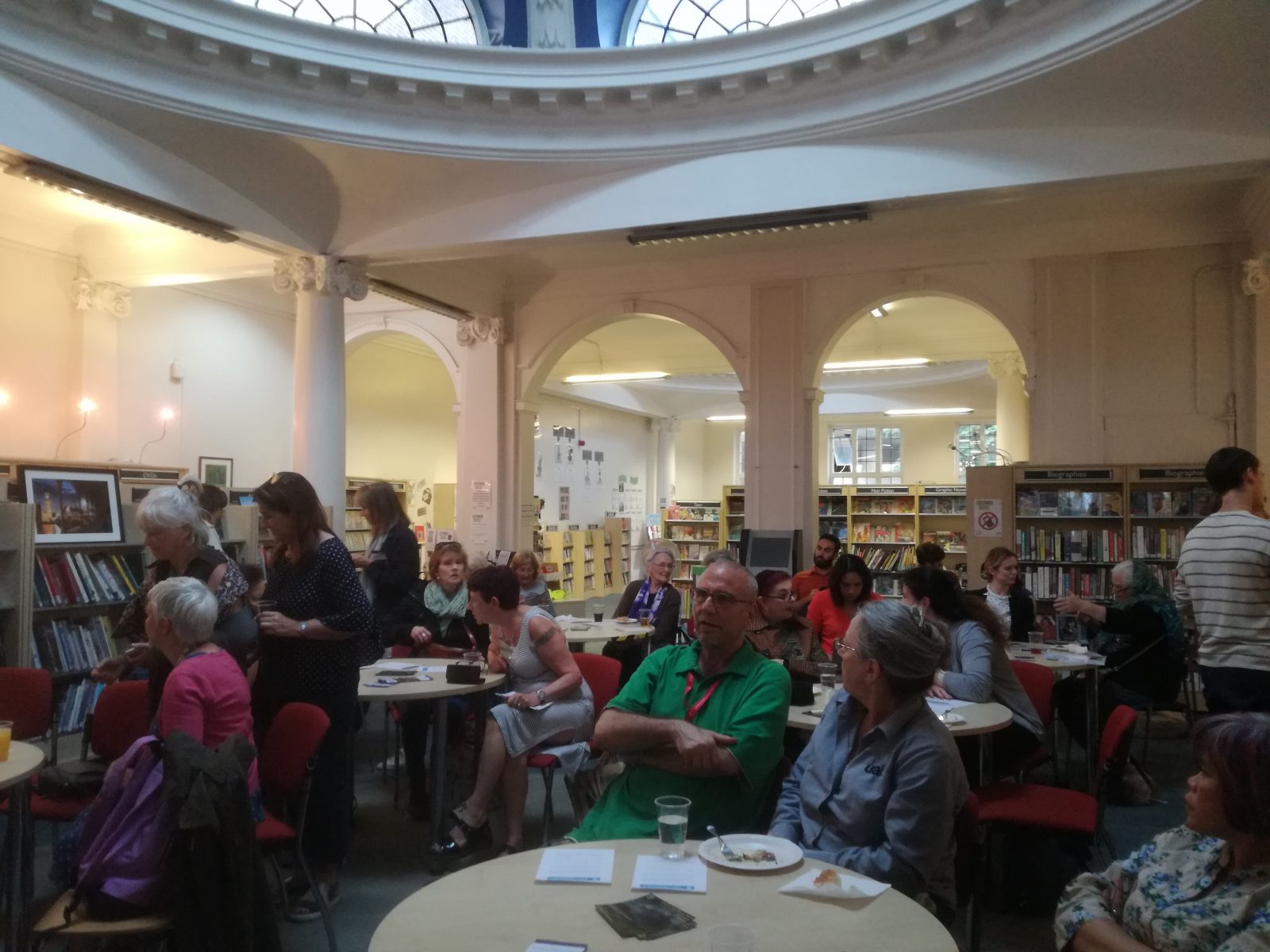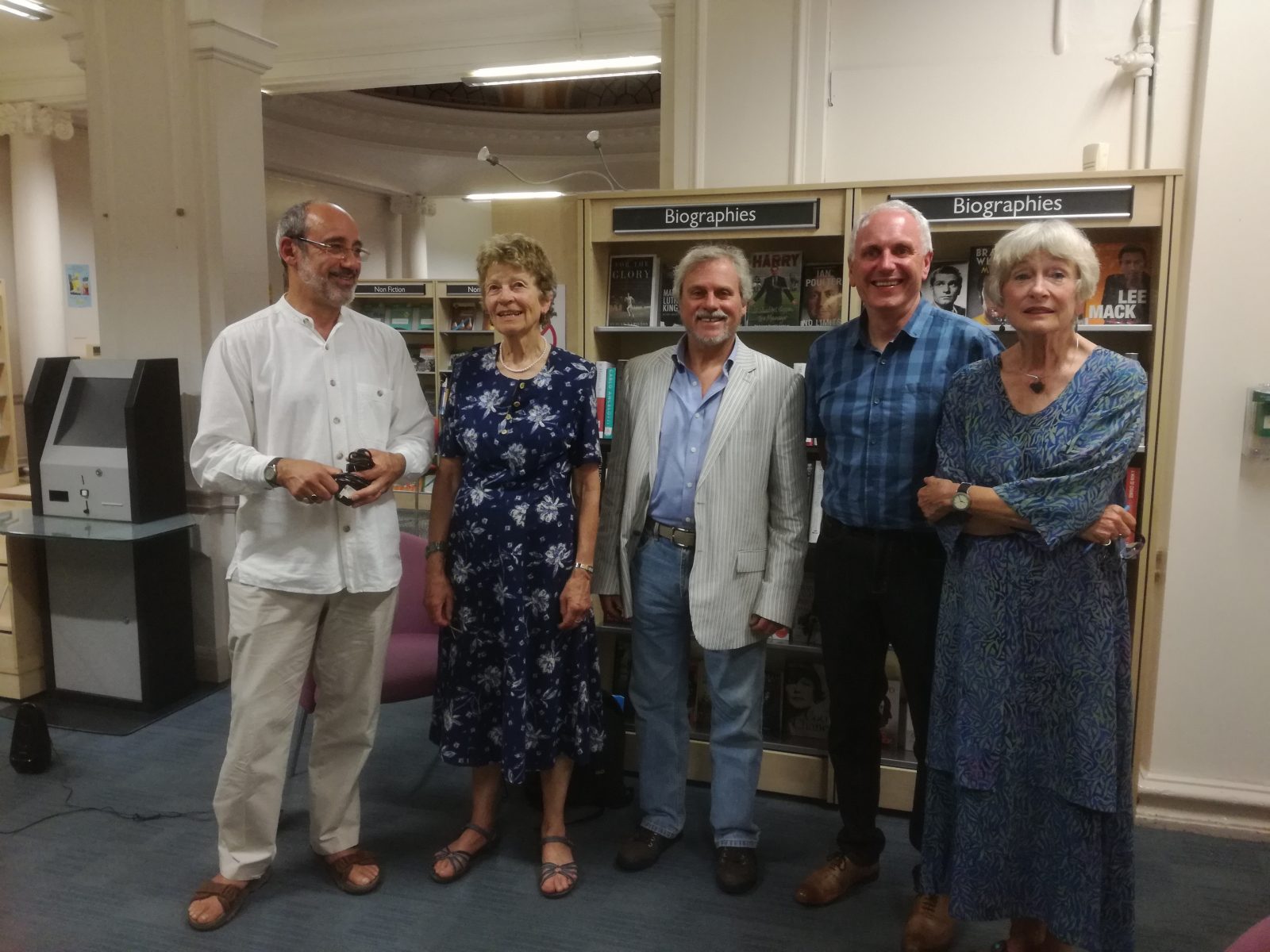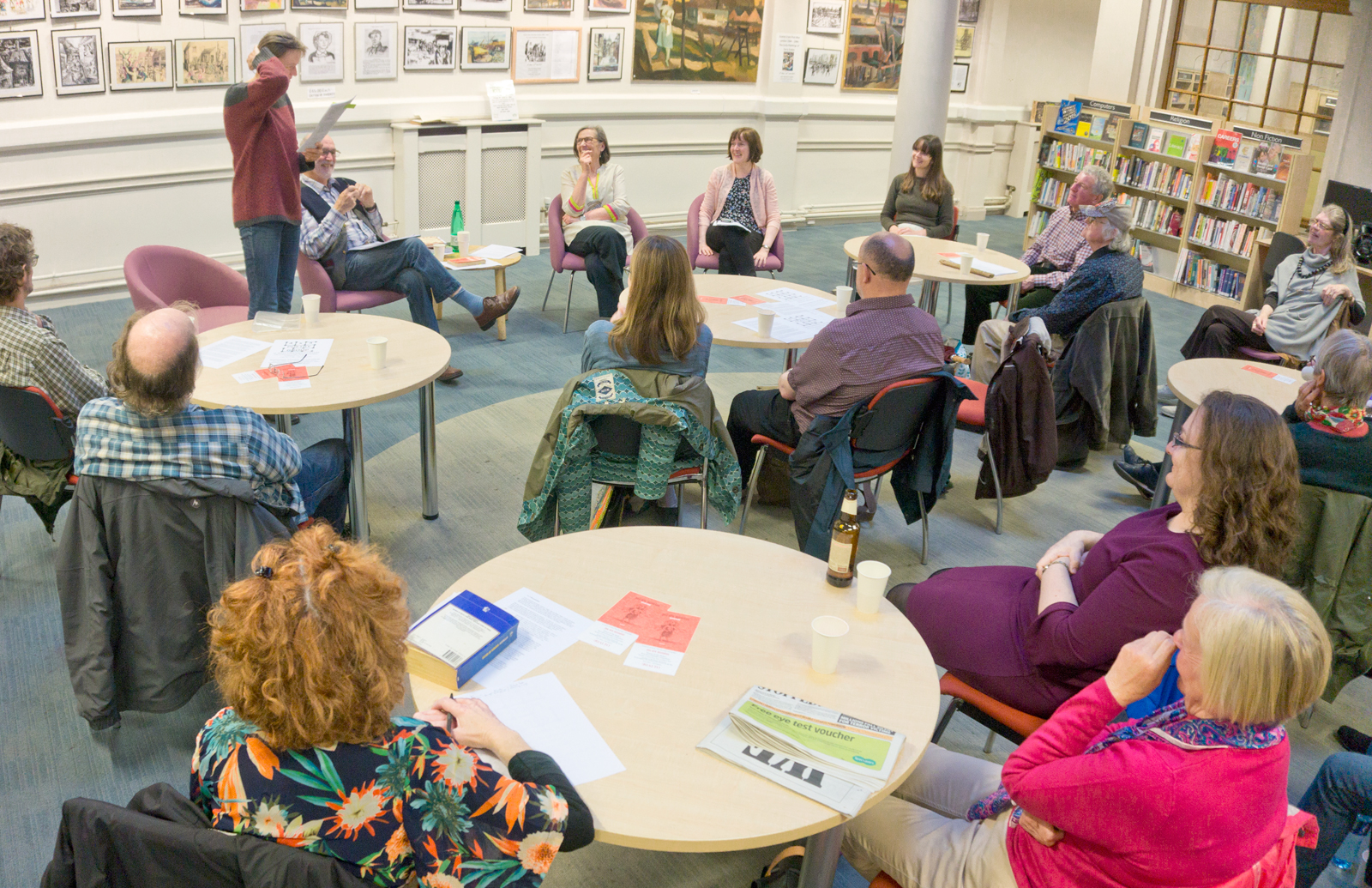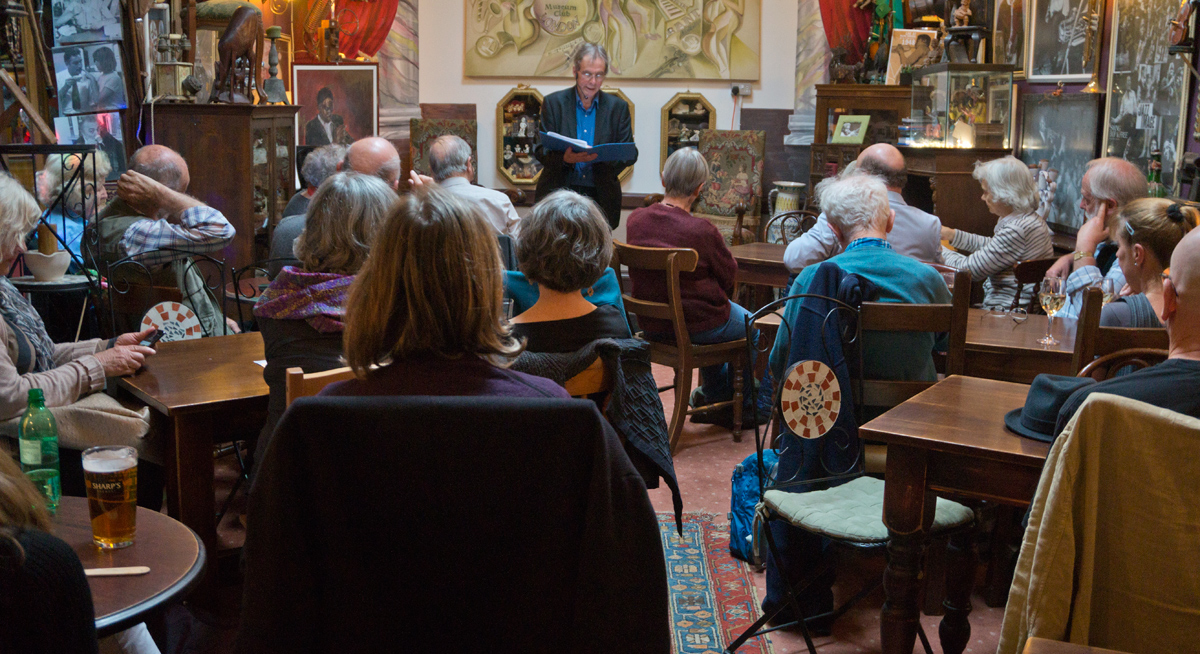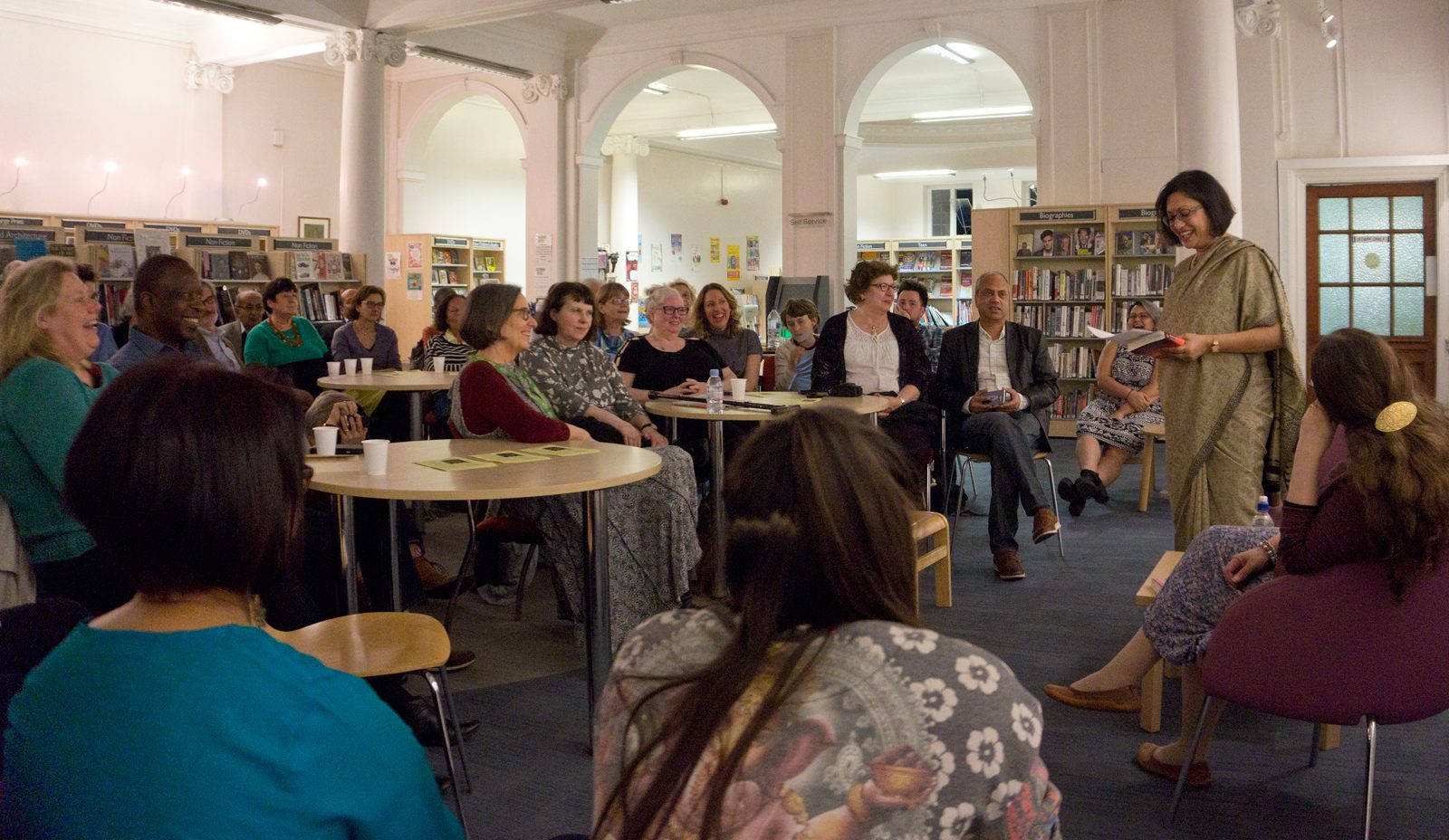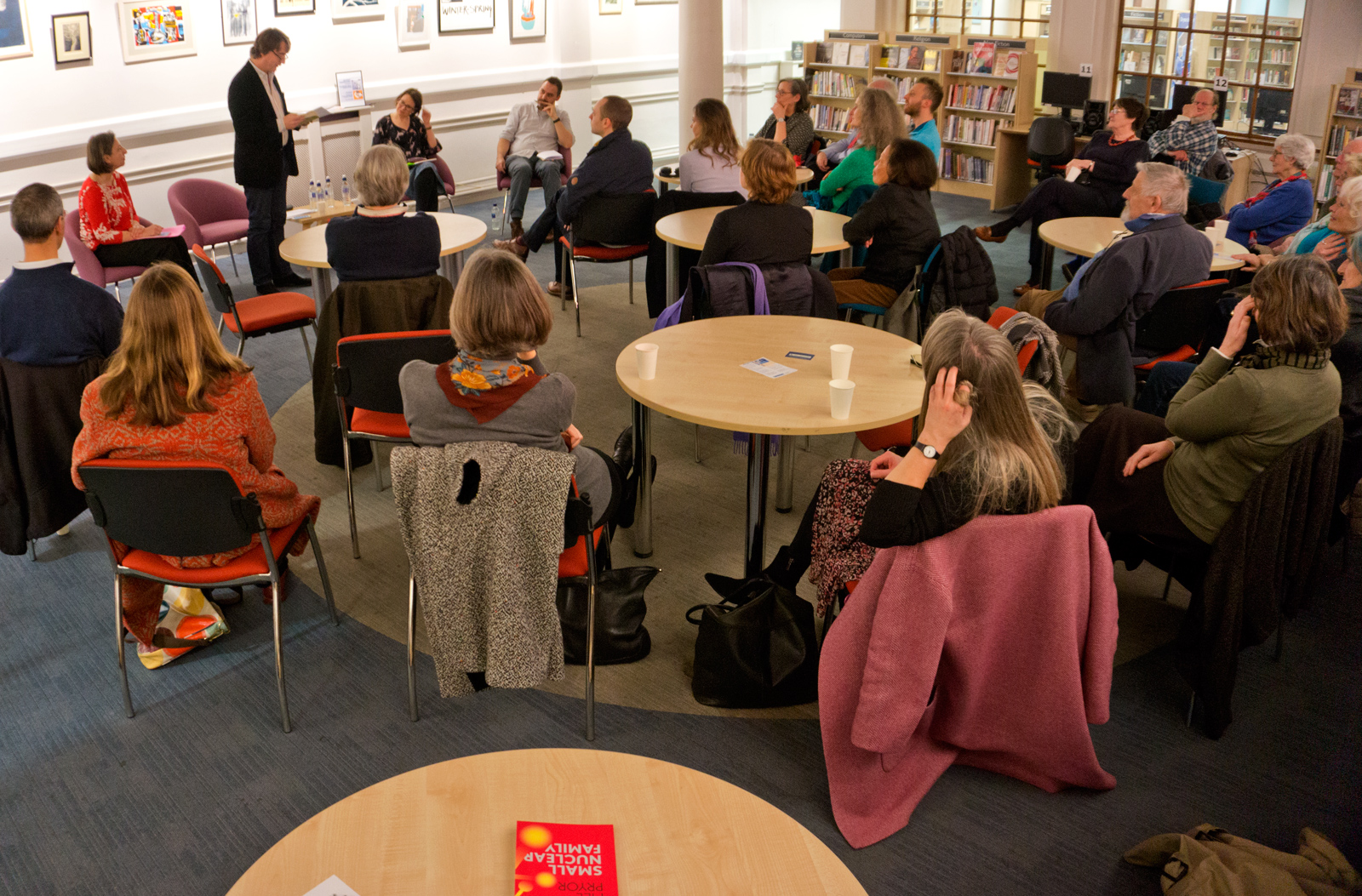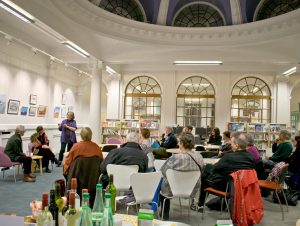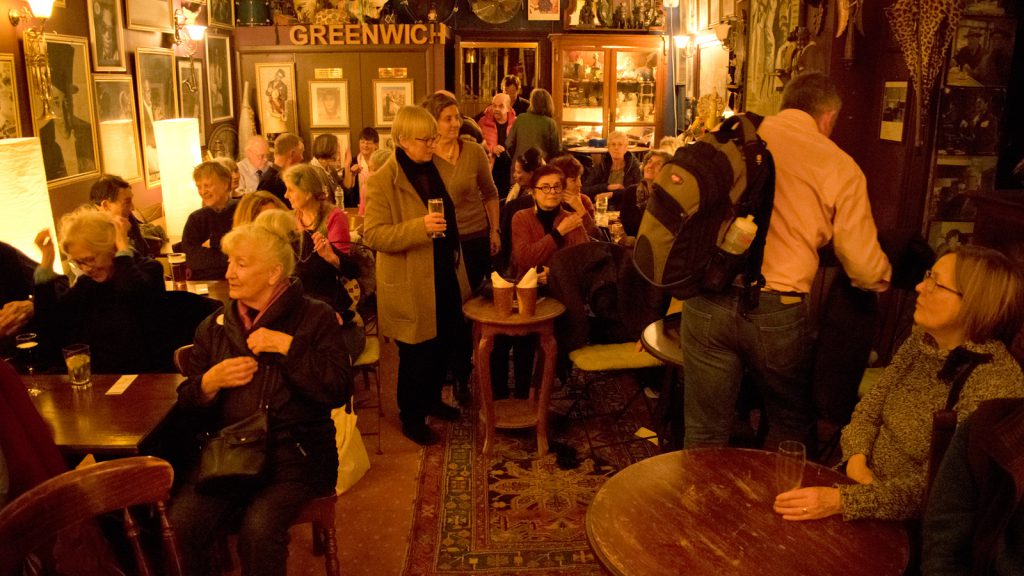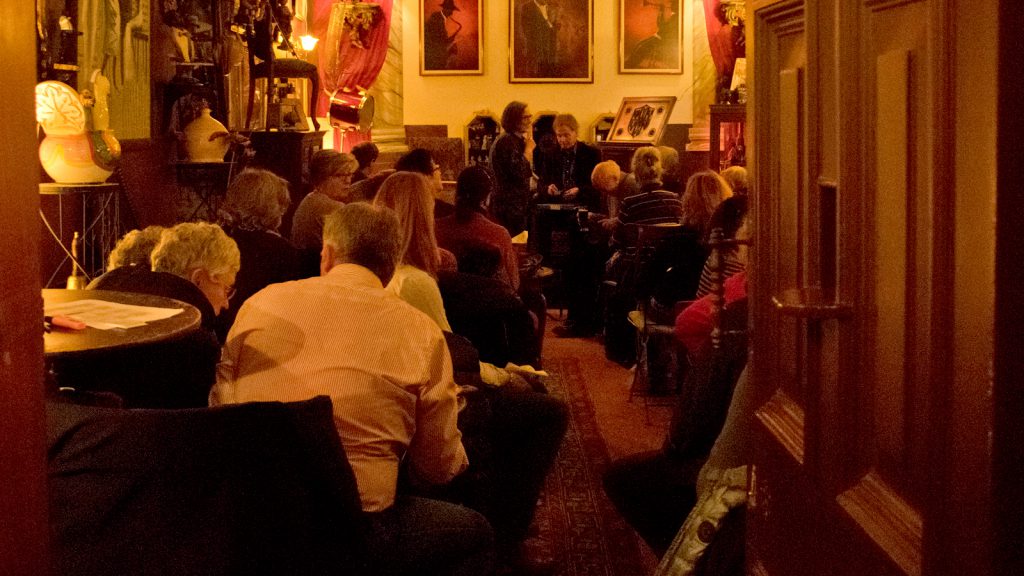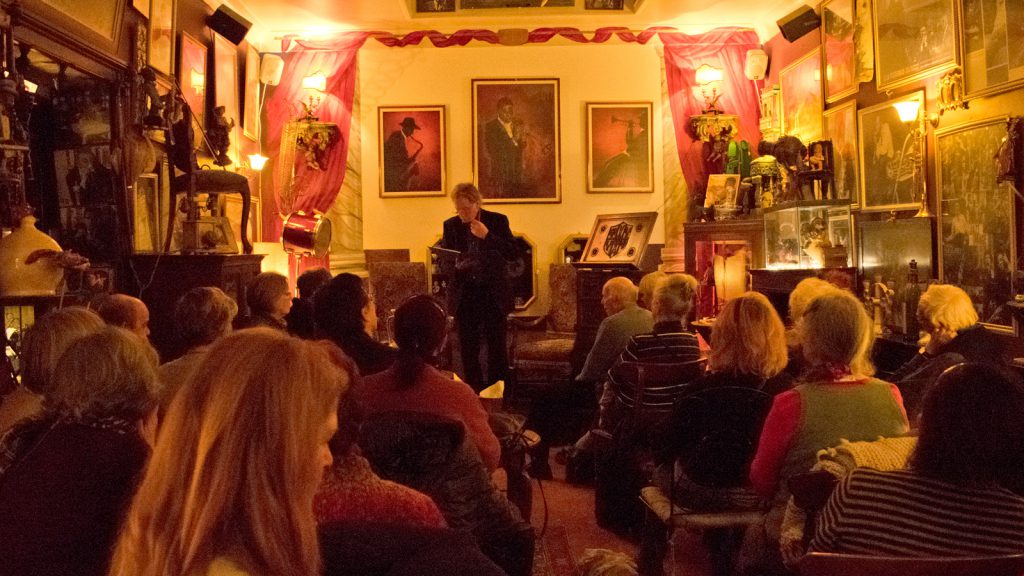A slightly different line-up for last night’s event after, sadly, Jude Rosen became ill with Covid and her joint launch with Derrick Porter had to be postponed. Alex Josephy and Jane McLaughlin were joined by Rosie Johnston and Mick Delap (thank you Rosie and Mick for stepping in at the eleventh hour!) for a reading with a different flavour, but still very much focused on the natural world. From unwanted mice in an Italian kitchen, to the mighty ocean, to bathing huts, to anxiety about climate crisis and possibly a thread of hope… and many birds, trees and water, water, water.
The event’s proximity to National Poetry Day gave me the idea to invite everyone on my mailing list to send in their favourite nature poem. A difficult, almost impossible task, it seems, because there are so many to chose from. Like favourite pieces of music, they also keep on changing. But of the ones sent in, the poets picked a few of the shorter ones and read them in the second half. Rich Sylvester, who had sent his favourite poem, was in the audience and read it himself, beautifully. In the first half the poets introduced their own work by reading a nature poem that inspired them in a particular way.
The feedback about this particular format, both from the sizeable, appreciative and knowledgeable audience and the poets themselves (and me!) was very positive. In a strange way, hearing a ‘classical’ poem first, whether well known or not (and most were not), induced a silent aha moment and a deeper level of listening.
The variety of voices and themes-within-the-theme was astounding and yet there were so many echoes and resonances.Here are some photos of the event.
Thanks to Kim and David at West Greenwich Library for all their help, and in particular to Kim for taking some of the photos.
Please scroll down for a selection of poems chosen by you and by the poets themselves.
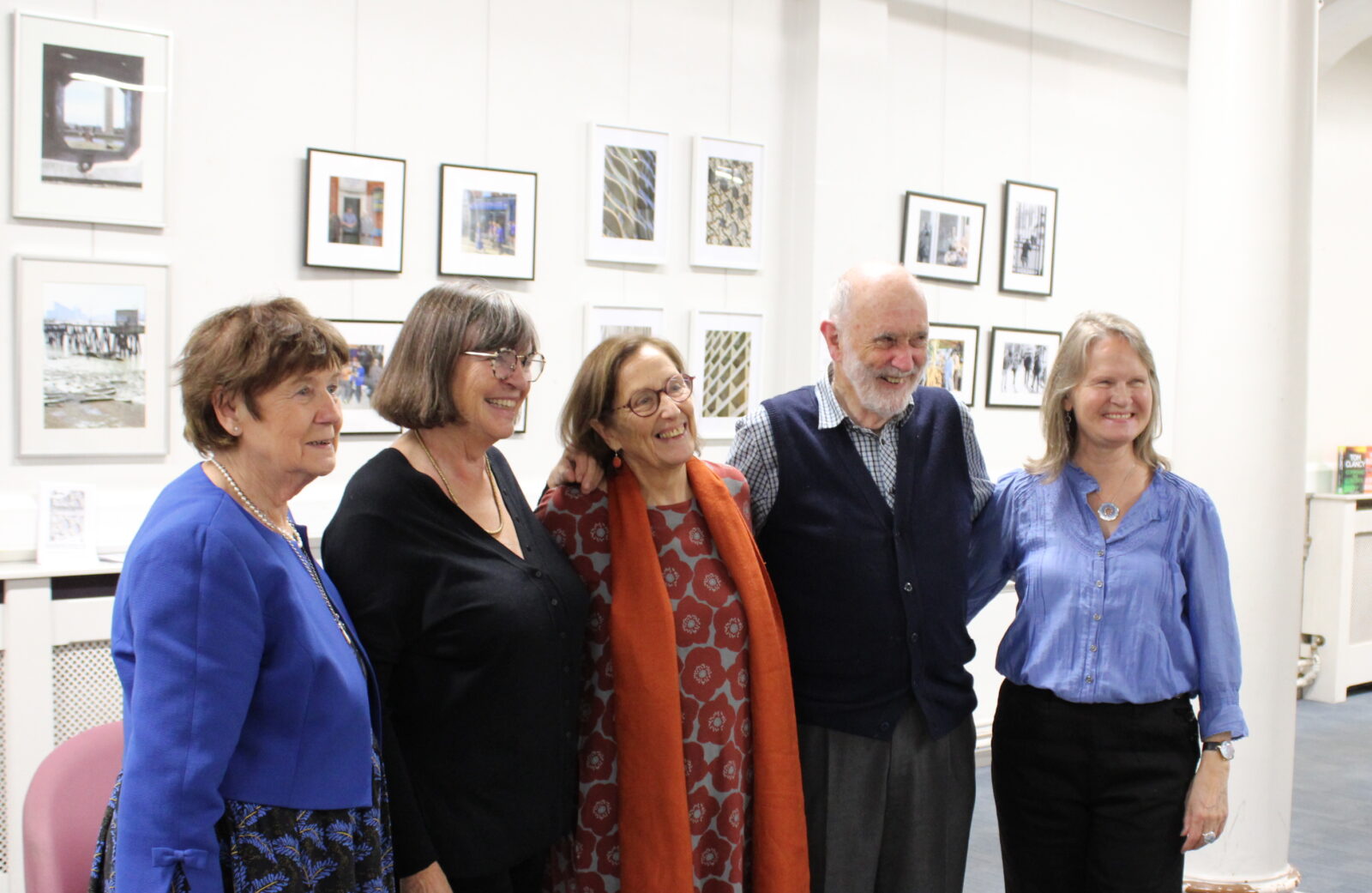
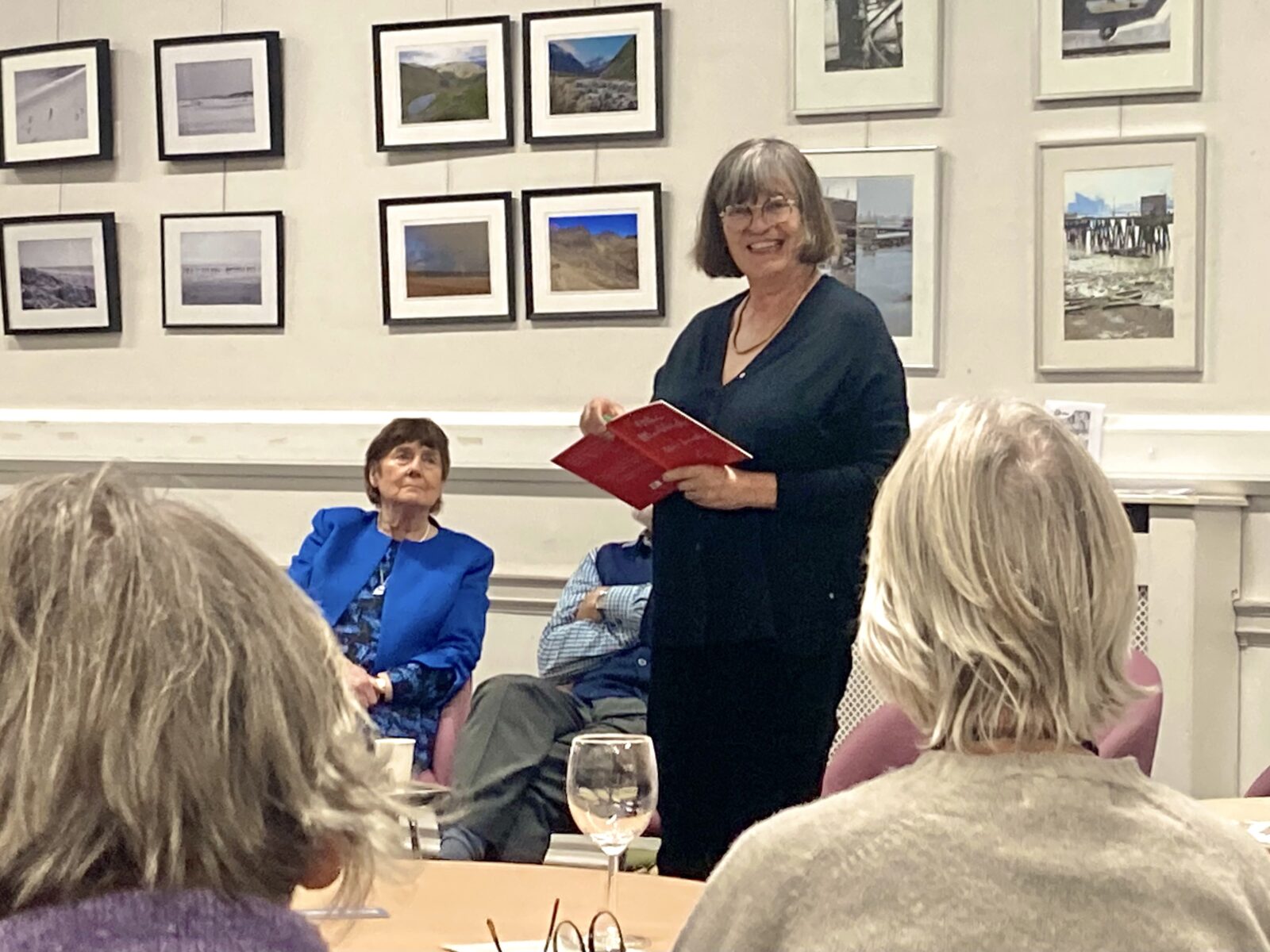
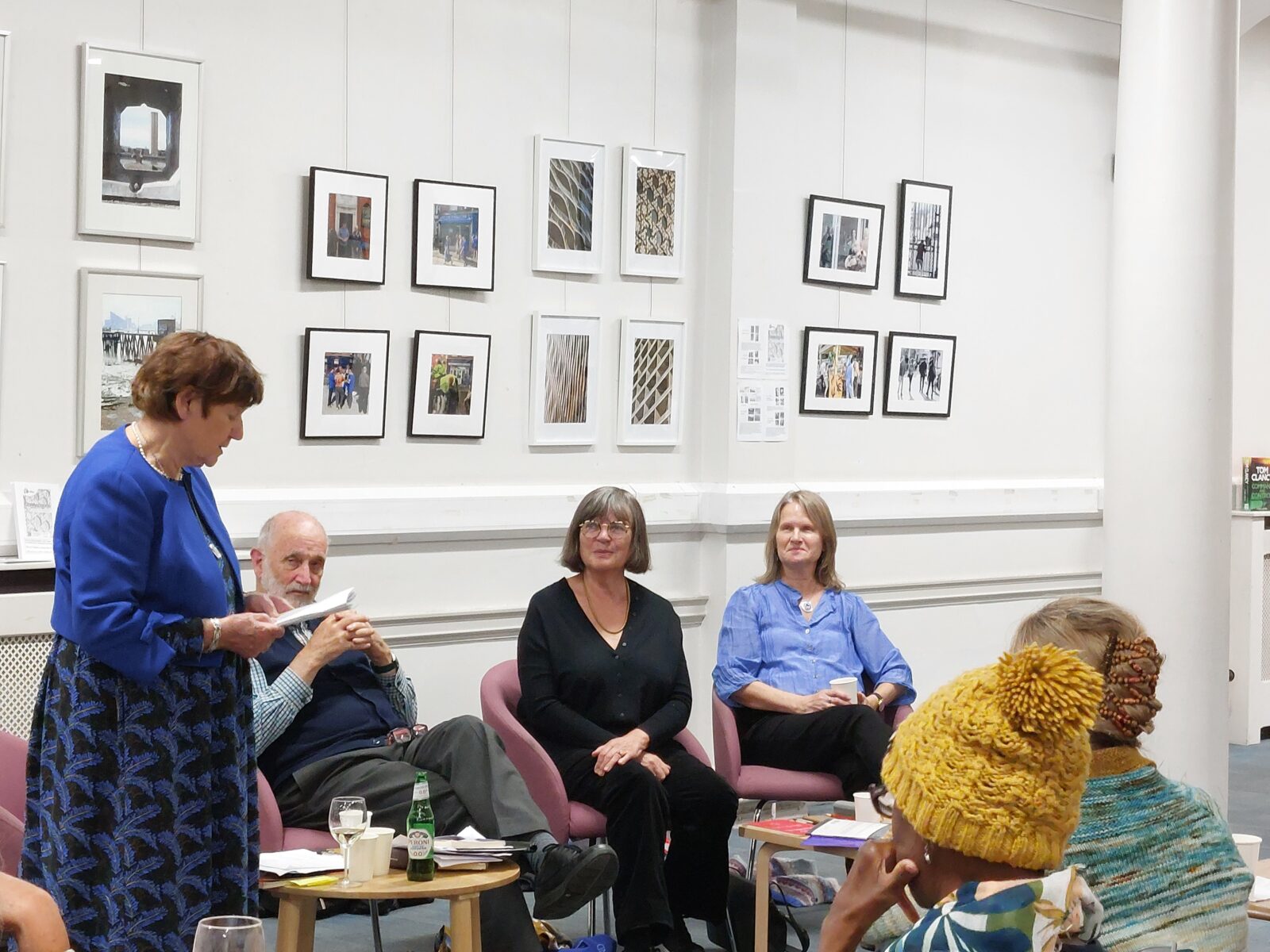
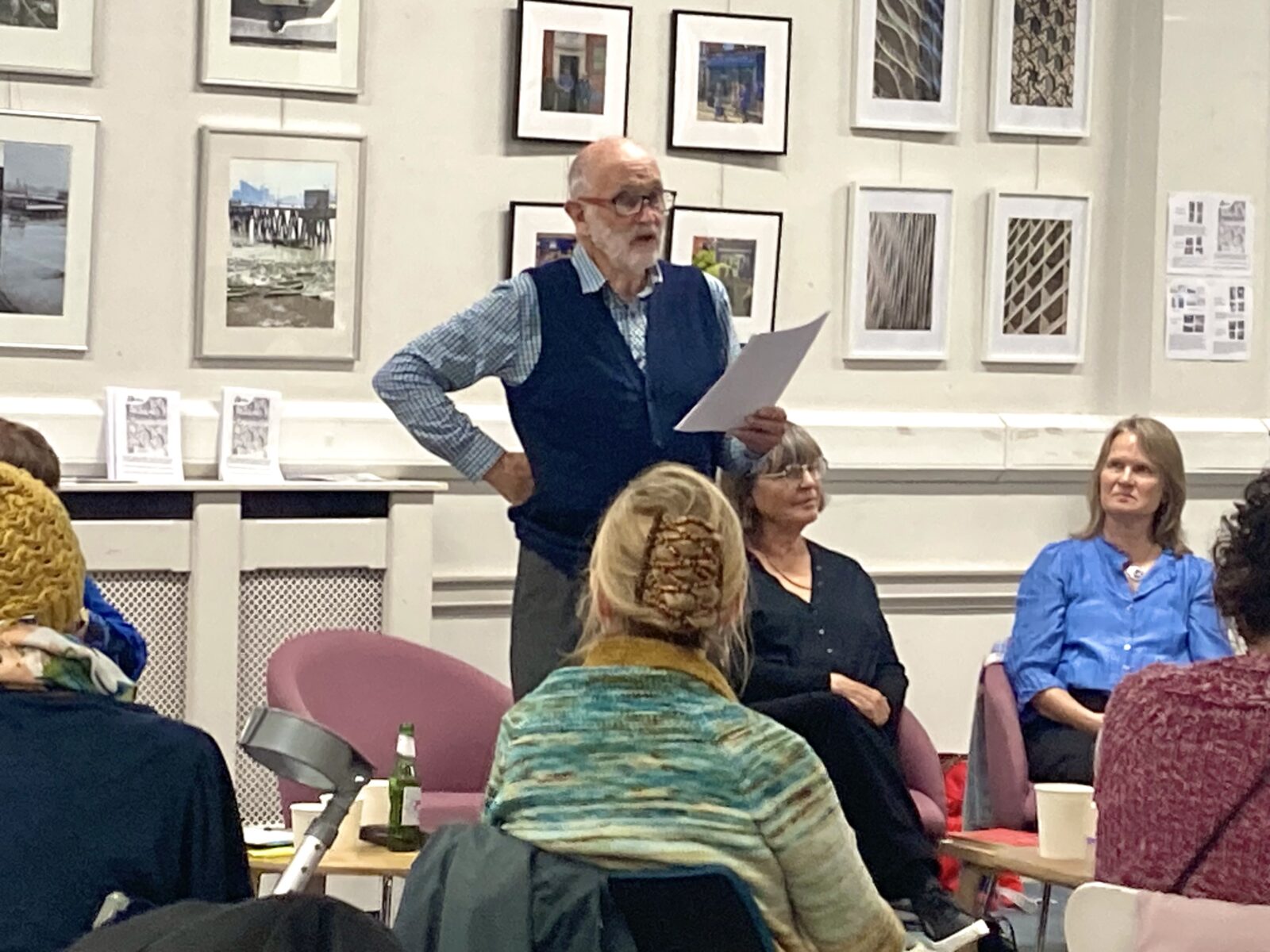
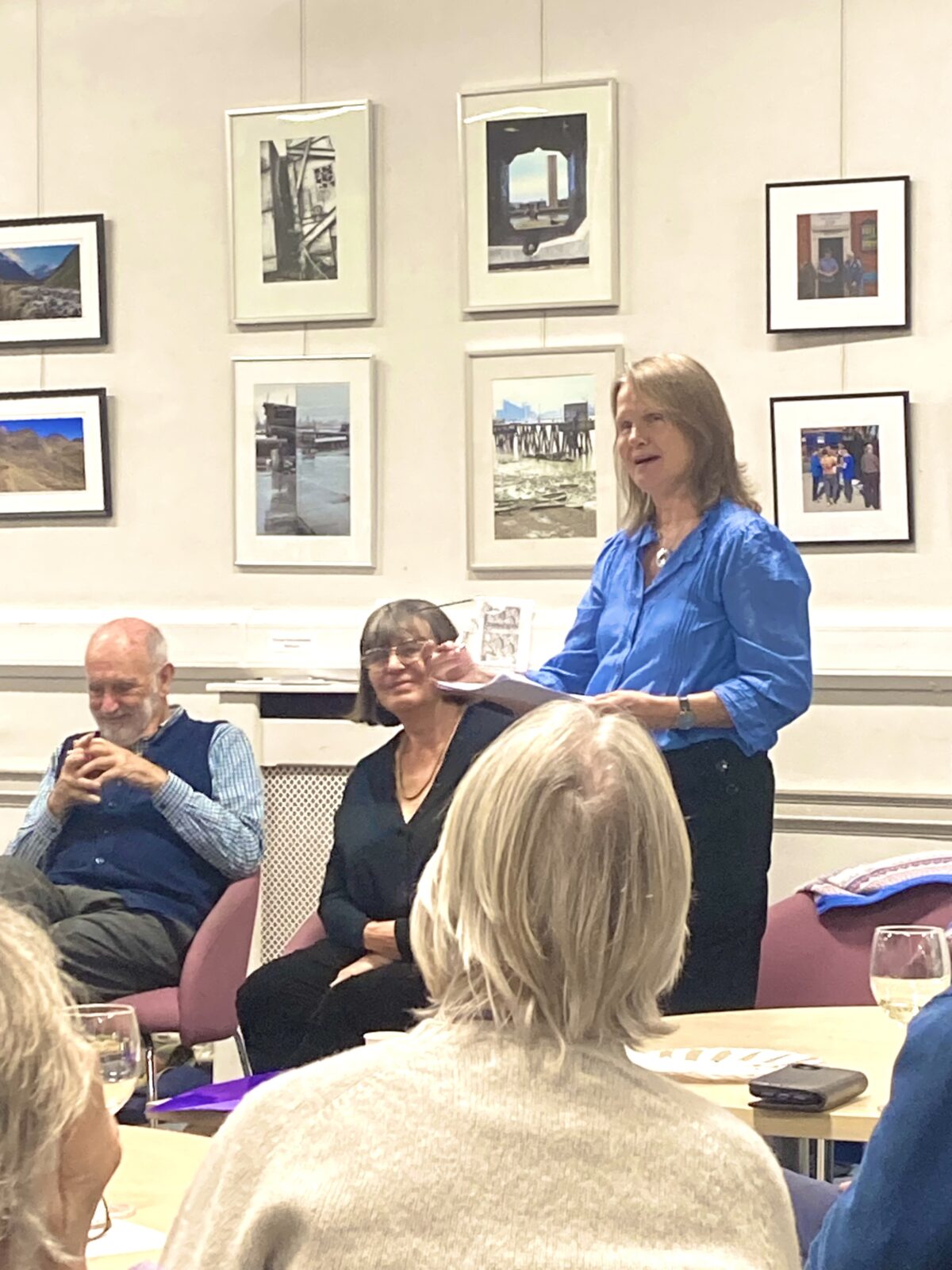
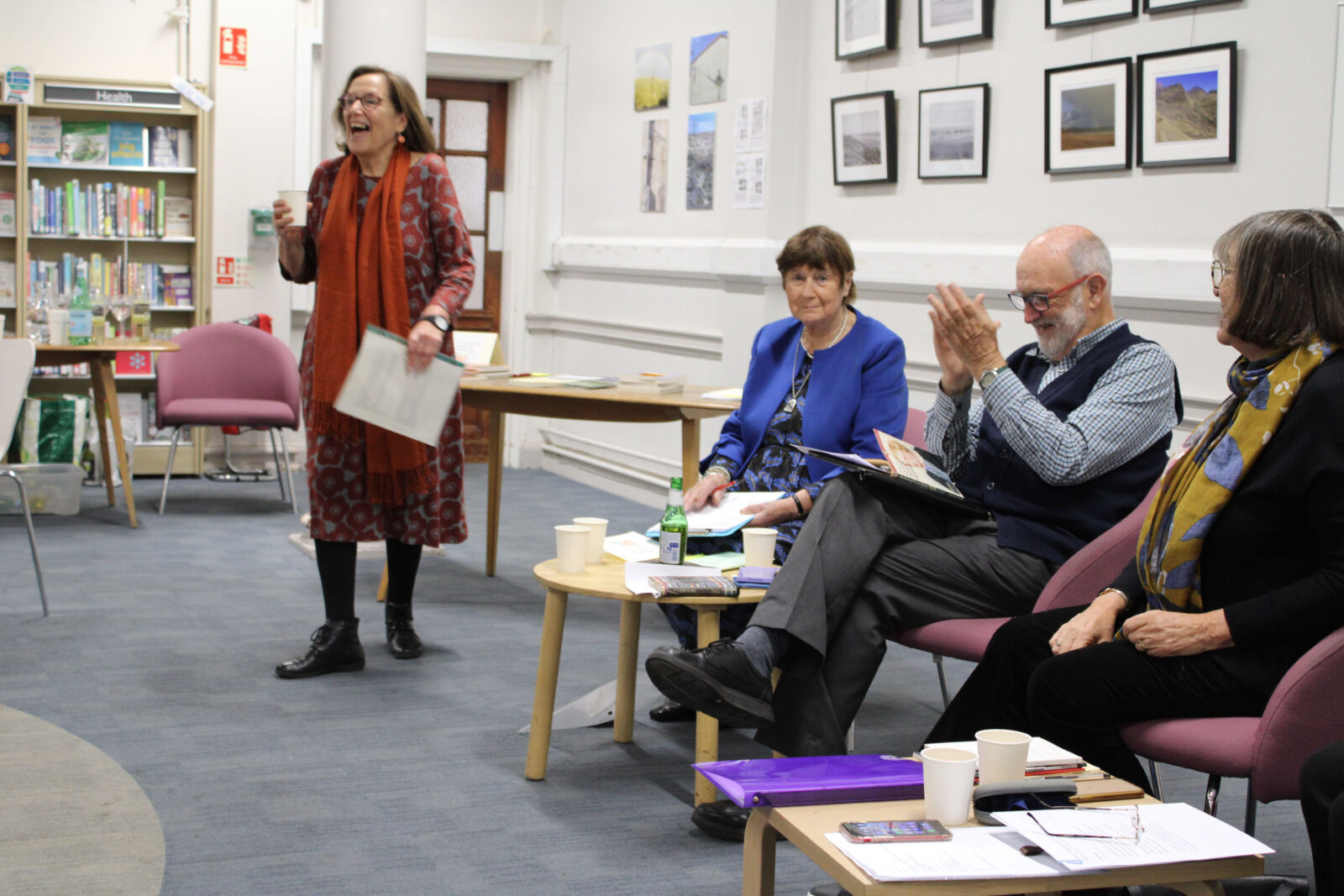
The Lake Isle of Innisfree – W.B. Yeats
I will arise and go now, and go to Innisfree,
And a small cabin build there, of clay and wattles made:
Nine bean-rows will I have there, a hive for the honey-bee;
And live alone in the bee-loud glade.
And I shall have some peace there, for peace comes dropping slow,
Dropping from the veils of the morning to where the cricket sings;
There midnight’s all a glimmer, and noon a purple glow,
And evening full of the linnet’s wings.
I will arise and go now, for always night and day
I hear lake water lapping with low sounds by the shore;
While I stand on the roadway, or on the pavements grey,
I hear it in the deep heart’s core.
Sea-Fever – John Masefield
I must go down to the seas again, to the lonely sea and the sky,
And all I ask is a tall ship and a star to steer her by;
And the wheel’s kick and the wind’s song and the white sail’s shaking,
And a grey mist on the sea’s face, and a grey dawn breaking.
I must go down to the seas again, for the call of the running tide
Is a wild call and a clear call that may not be denied;
And all I ask is a windy day with the white clouds flying,
And the flung spray and the blown spume, and the sea-gulls crying.
I must go down to the seas again, to the vagrant gypsy life,
To the gull’s way and the whale’s way where the wind’s like a whetted knife;
And all I ask is a merry yarn from a laughing fellow-rover,
And quiet sleep and a sweet dream when the long trick’s over.
I Wandered Lonely as a Cloud – William Wordsworth
I wandered lonely as a cloud
That floats on high o’er vales and hills,
When all at once I saw a crowd,
A host, of golden daffodils;
Beside the lake, beneath the trees,
Fluttering and dancing in the breeze.
Continuous as the stars that shine
And twinkle on the milky way,
They stretched in never-ending line
Along the margin of a bay:
Ten thousand saw I at a glance,
Tossing their heads in sprightly dance.
The waves beside them danced; but they
Out-did the sparkling waves in glee:
A poet could not but be gay,
In such a jocund company:
I gazed—and gazed—but little thought
What wealth the show to me had brought:
For oft, when on my couch I lie
In vacant or in pensive mood,
They flash upon that inward eye
Which is the bliss of solitude;
And then my heart with pleasure fills,
And dances with the daffodils.
The Trees – Philip Larkin
The trees are coming into leaf
Like something almost being said;
The recent buds relax and spread,
Their greenness is a kind of grief.
Is it that they are born again
And we grow old? No, they die too.
Their yearly trick of looking new
Is written down in rings of grain.
Yet still the unresting castles thresh
In fullgrown thickness every May.
Last year is dead, they seem to say,
Begin afresh, afresh, afresh.
My Early Home – John Clare
Here sparrows build upon the trees,
And stock-dove hides her nest:
The leaves are winnowed by the breeze
Into a calmer rest;
The black-cap’s song was very sweet;
That used the rose to kiss;
It made the paradise complete:
My early home was this.
The redbreast from the sweetbrier bush
Dropt down to pick the worm;
On the horse-chestnut sang the thrush,
O’er the house where I was born.
The moonlight, like a shower of pearls,
Fell o’er this ‘bower of bliss’,
And on the bench sat boys and girls;
My early home was this.
The old house stooped just like a cave,
Thatched o’er with mosses green;
Winter around the walls would rave,
But all was calm within;
The trees are here all green again,
Here bees the flowers still kiss,
But flowers and trees seemed sweeter then;
My early home was this.
Infinity – Giacomo Leopardi, in a translation by Jonathan Galassi
This lonely hill was always dear to me,
and this hedgerow, which cuts off the view
of so much of the last horizon.
But sitting here and gazing, I can see
beyond, in my mind’s eye, unending spaces,
and superhuman silences, and depthless calm,
till what I feel
is almost fear. And when I hear
the wind stir in these branches,
I begin comparing that endless stillness with this noise;
and the eternal comes to mind,
and the dead seasons, and the present
living one, and how it sounds.
So my mind sinks in this immensity:
and foundering is sweet in such a sea.
Postscript – Seamus Heaney
And some time make the time to drive out west
Into County Clare, along the Flaggy Shore,
In September or October, when the wind
And the light are working off each other
So that the ocean on one side is wild
With foam and glitter, and inland among stones
The surface of a slate-grey lake is lit
By the earthed lightning of a flock of swans,
Their feathers roughed and ruffling, white on white,
Their fully grown headstrong-looking heads
Tucked or cresting or busy underwater.
Useless to think you’ll park and capture it
More thoroughly. You are neither here nor there,
A hurry through which known and strange things pass
As big soft buffetings come at the car sideways
And catch the heart off guard and blow it open.
Stopping by Woods on a Snowy Evening – Robert Frost
Whose woods these are I think I know.
His house is in the village though;
He will not see me stopping here
To watch his woods fill up with snow.
My little horse must think it queer
To stop without a farmhouse near
Between the woods and frozen lake
The darkest evening of the year.
He gives his harness bells a shake
To ask if there is some mistake.
The only other sound’s the sweep
Of easy wind and downy flake.
The woods are lovely, dark and deep.
But I have promises to keep,
And miles to go before I sleep,
And miles to go before I sleep.
Turtle Island 1969 – Gary Snyder
The rising hills, the slopes
Of statistics
Lie before us
The steep climb
Of everything going up,
Up, as we all
Go down.
In the next century
Or the one beyond that,
They say
Are valleys, pastures,
We can meet there in peace
If we can make it.
To climb these coming crests
One word to you, to
You and your children:
Stay together
Learn the flowers
Go light.
Chance Verses – Chang Liang-Ch’en, twelfth century
Whose are this pond and house?
I lean on the red door yet dare not knock.
But a fragment of sweet
Spring cannot be hidden,
as over the coloured wall
there peeps the tip of an apricot branch.
East of the City in Early Spring – Yang Chu-Yuan (c 760-832)
For the poet the purest aspect is at new Spring.
When the willow’s yellow has not yet equalled its green.
If I wait till the flowers of Shanglin Park are like brocade
All men would go out of doors to see the flowers.
Translations by Robert Kotewall and Norman L Smith
Greenwich Park – Herbert Lomas
Spring’s come, a little late, in the park:
a tree-rat smokes flat S’s over the lawn.
A mallard has somehow forgotten something
it can’t quite remember. Daffodils yawn,
prick their ears, push their muzzles out
for a kiss. Pansies spoof pensive
Priapus faces: Socrates or Verlaine.
A cock-pigeon is sexually harassing
a hen: pecking and poking and padding
behind her impertinently, bowing and mowing.
But when he’s suddenly absent-minded –
can’t keep even sex in his head –
she trembles, stops her gadding, doubts
and grazes his way. He remembers and pouts.
Lulu – Stevie Smith
I do not care for Nature,
She does not care for me;
You can be alone with a person,
You can’t be alone with a tree.

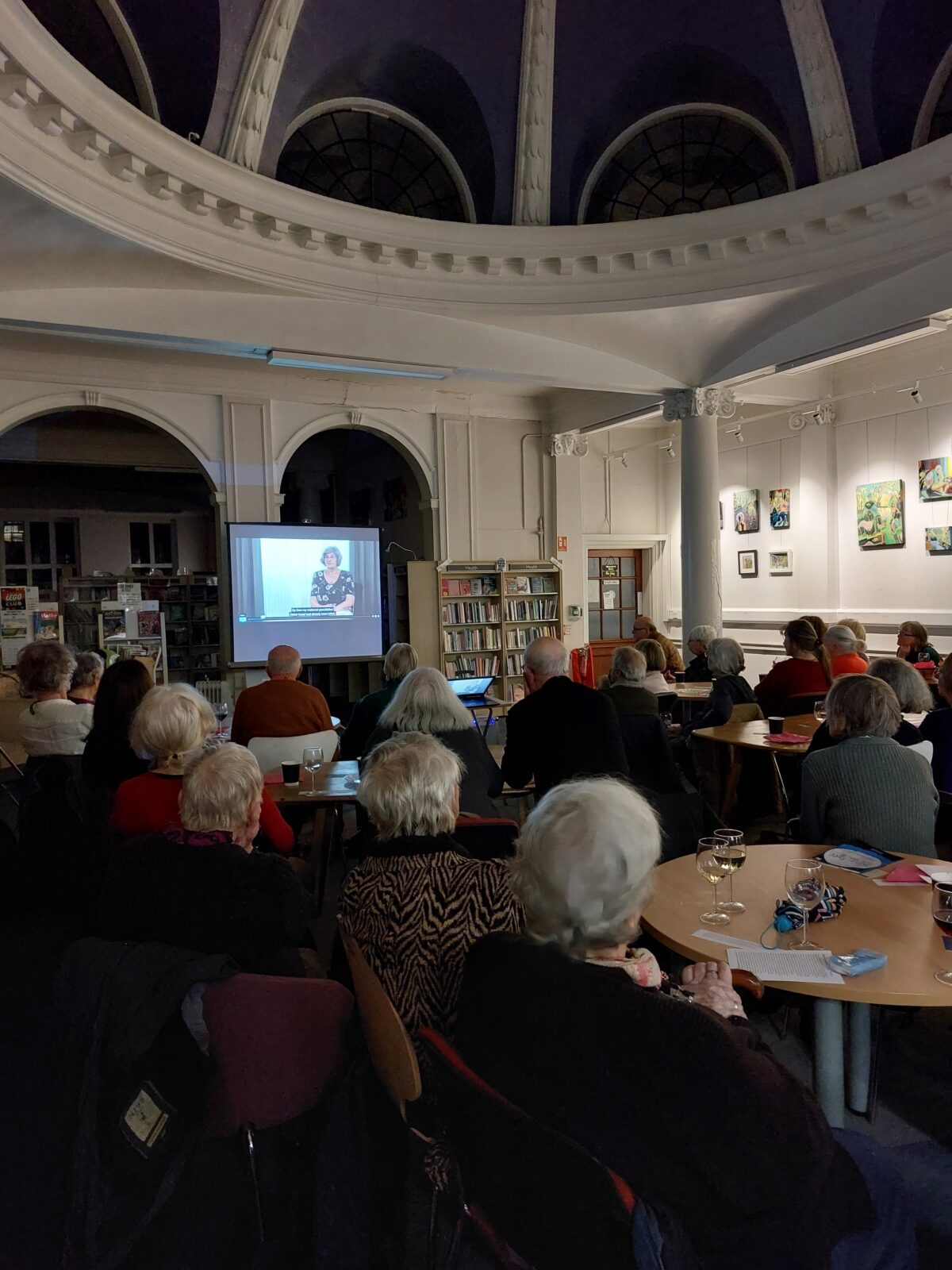
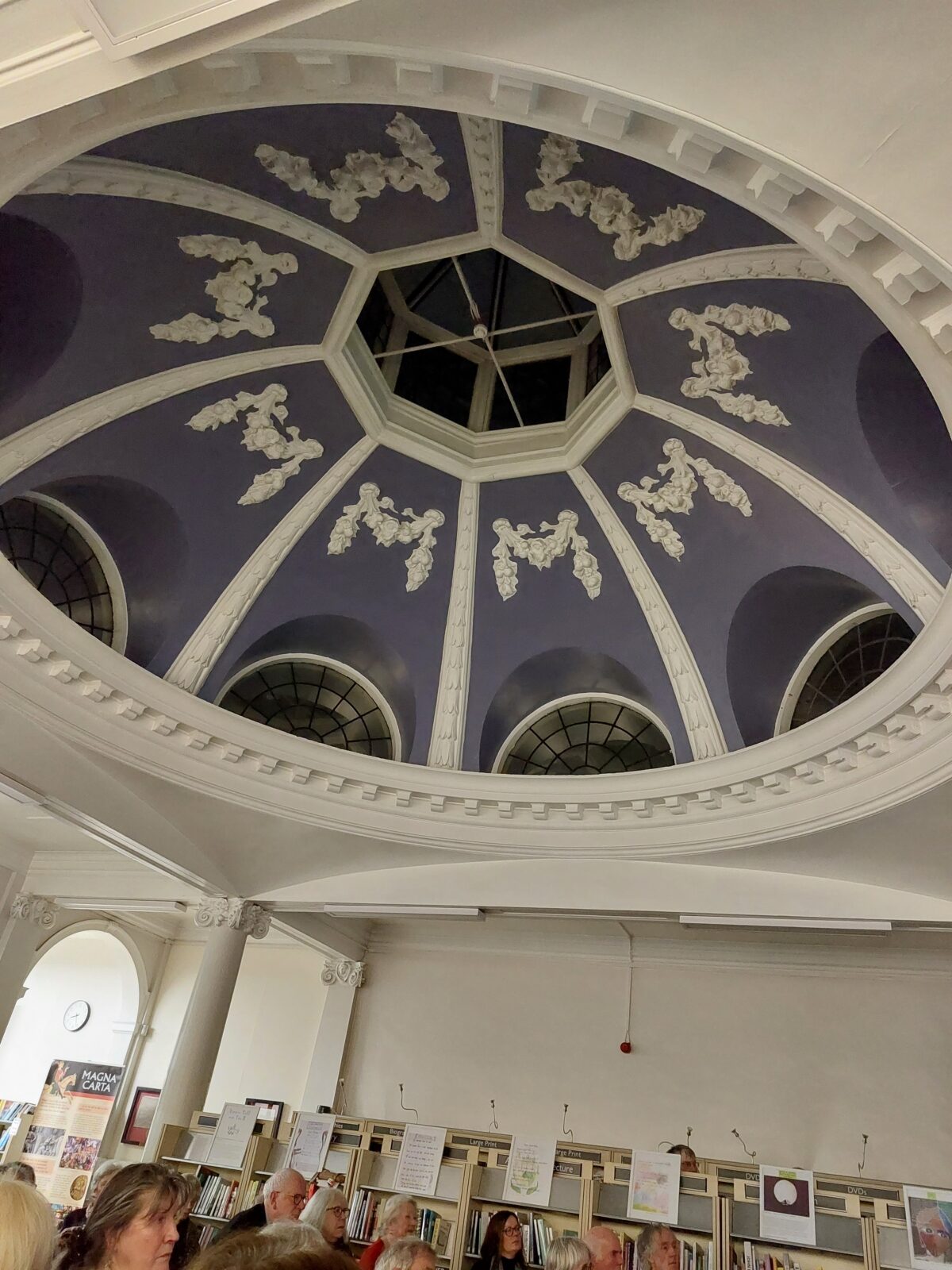
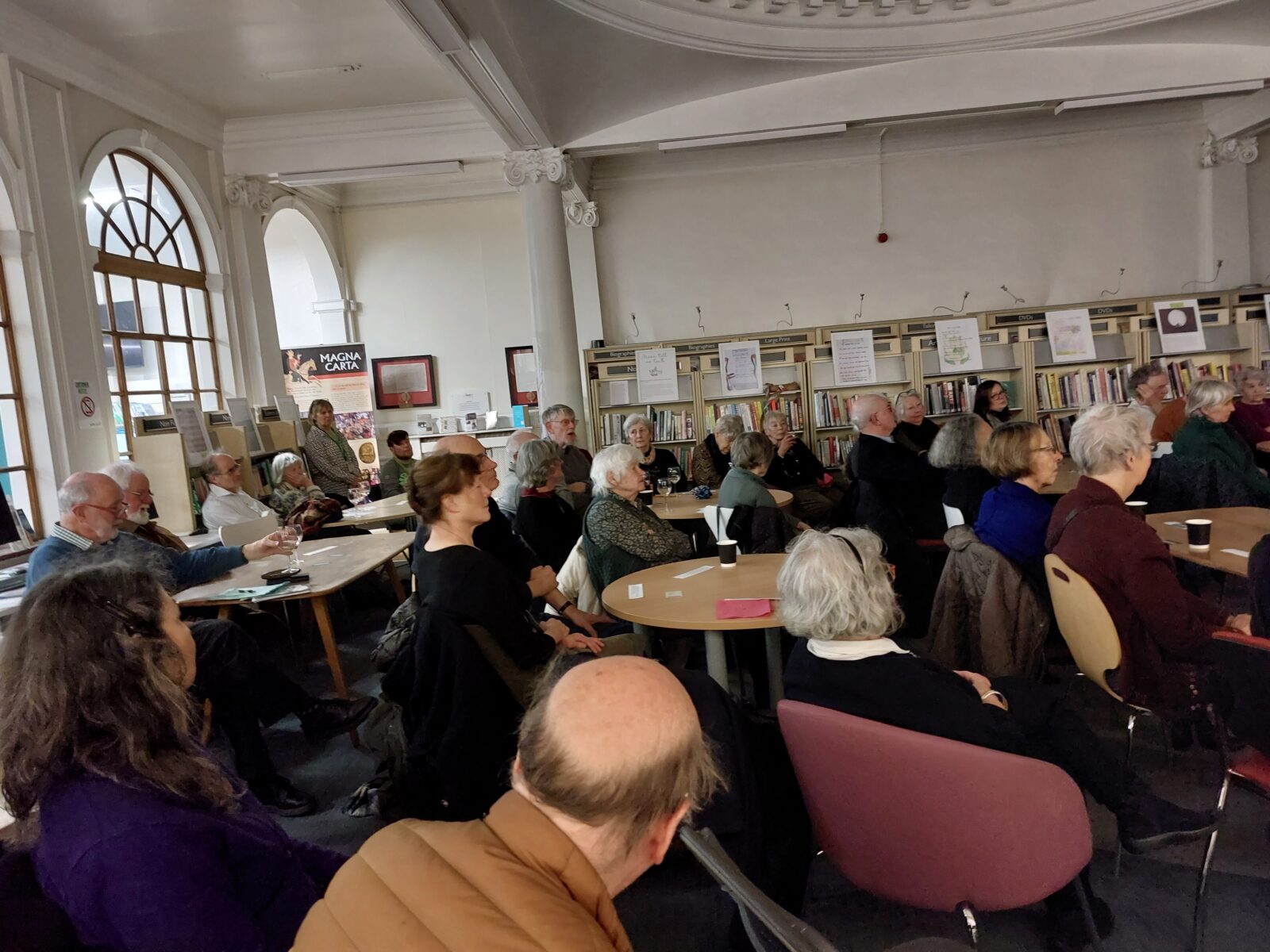
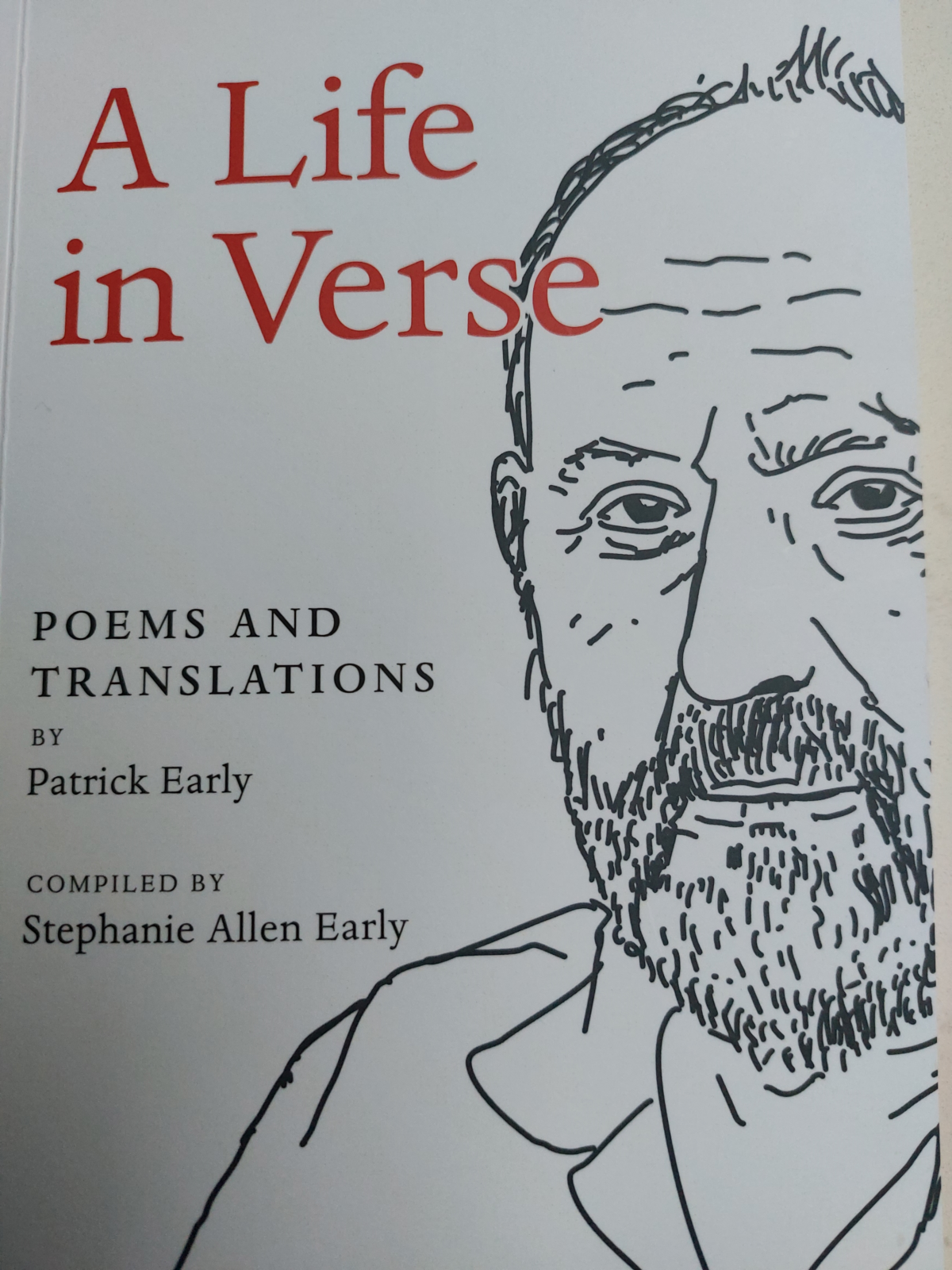




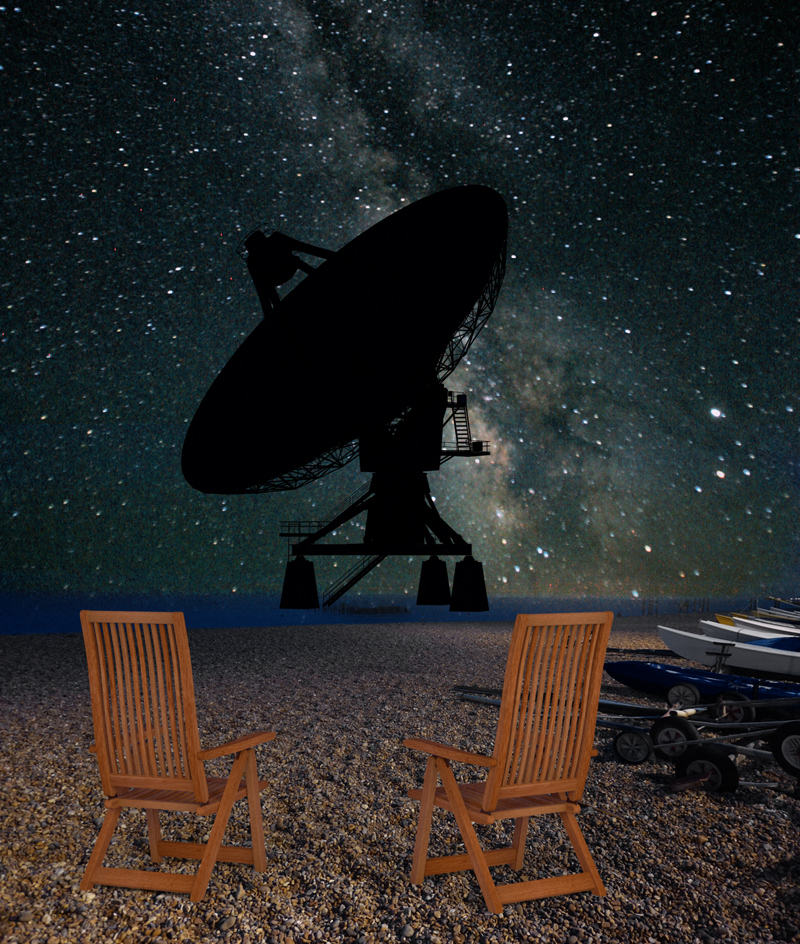
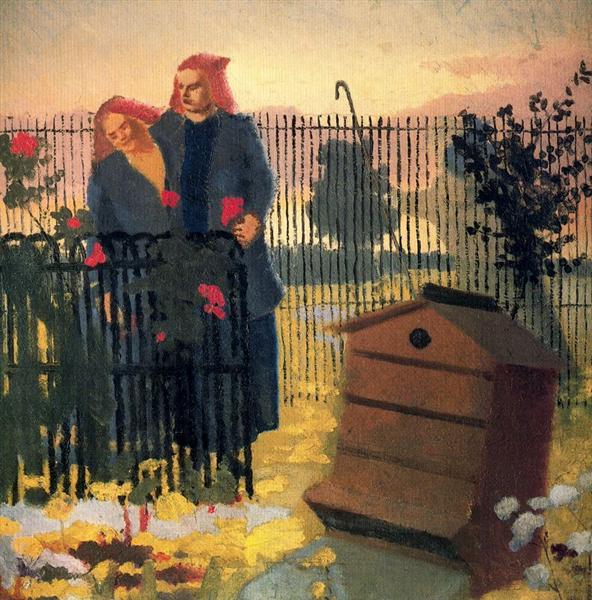
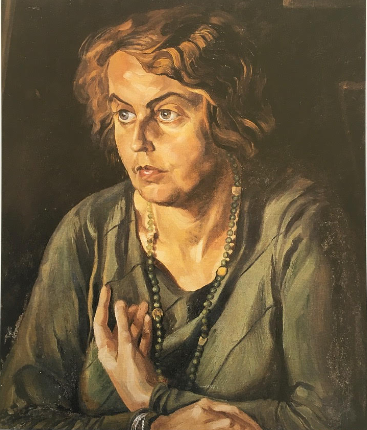
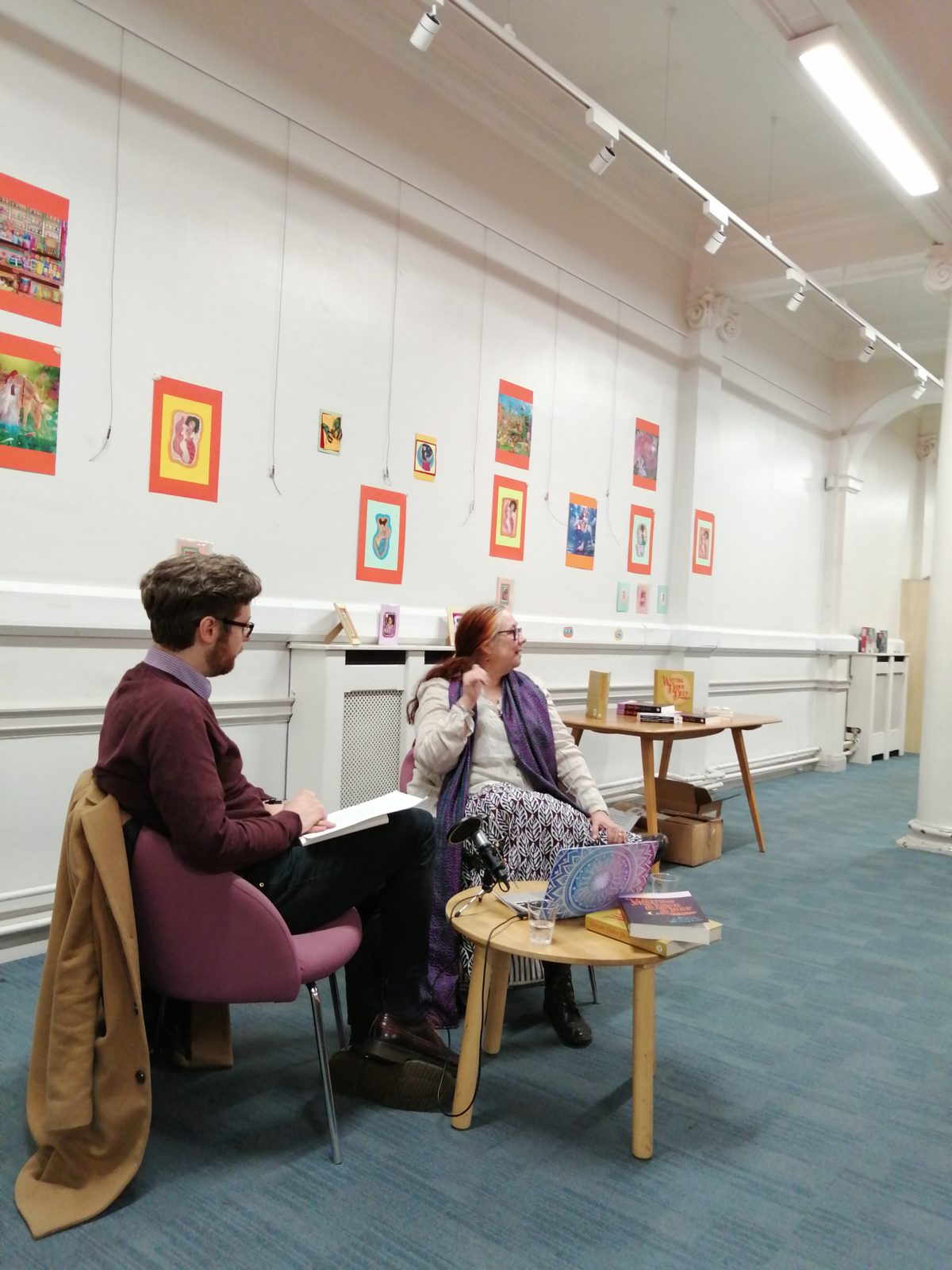
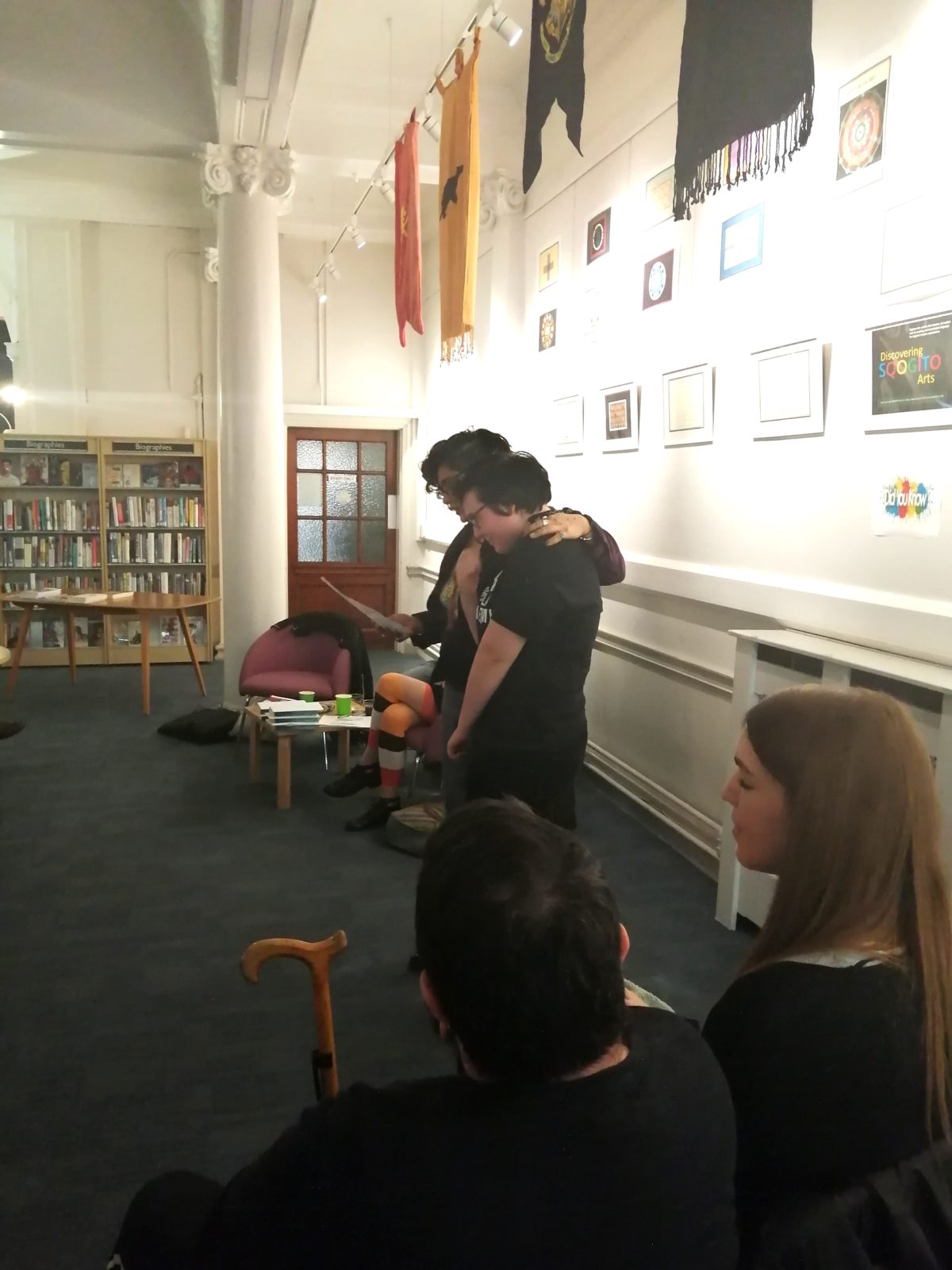
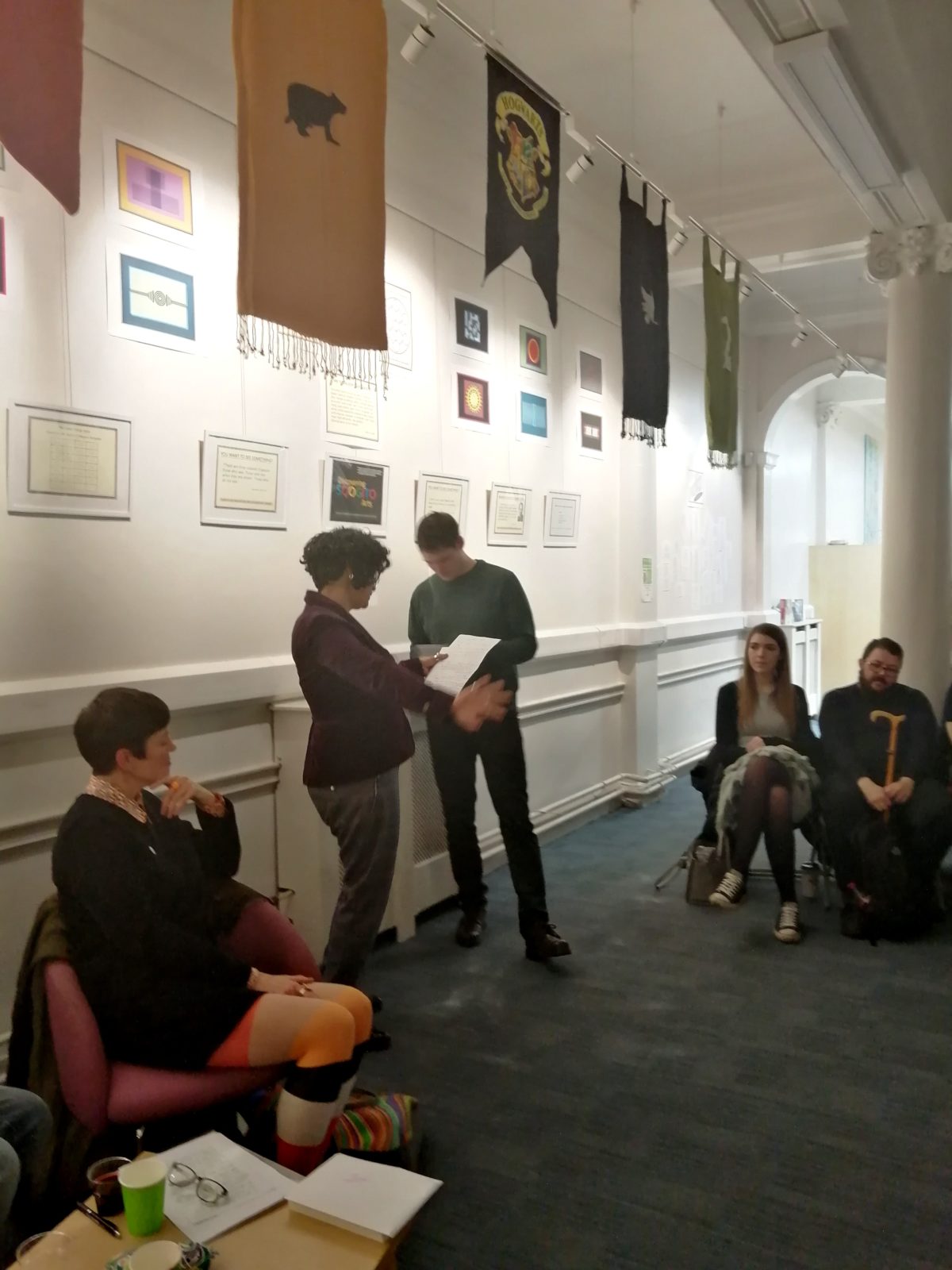
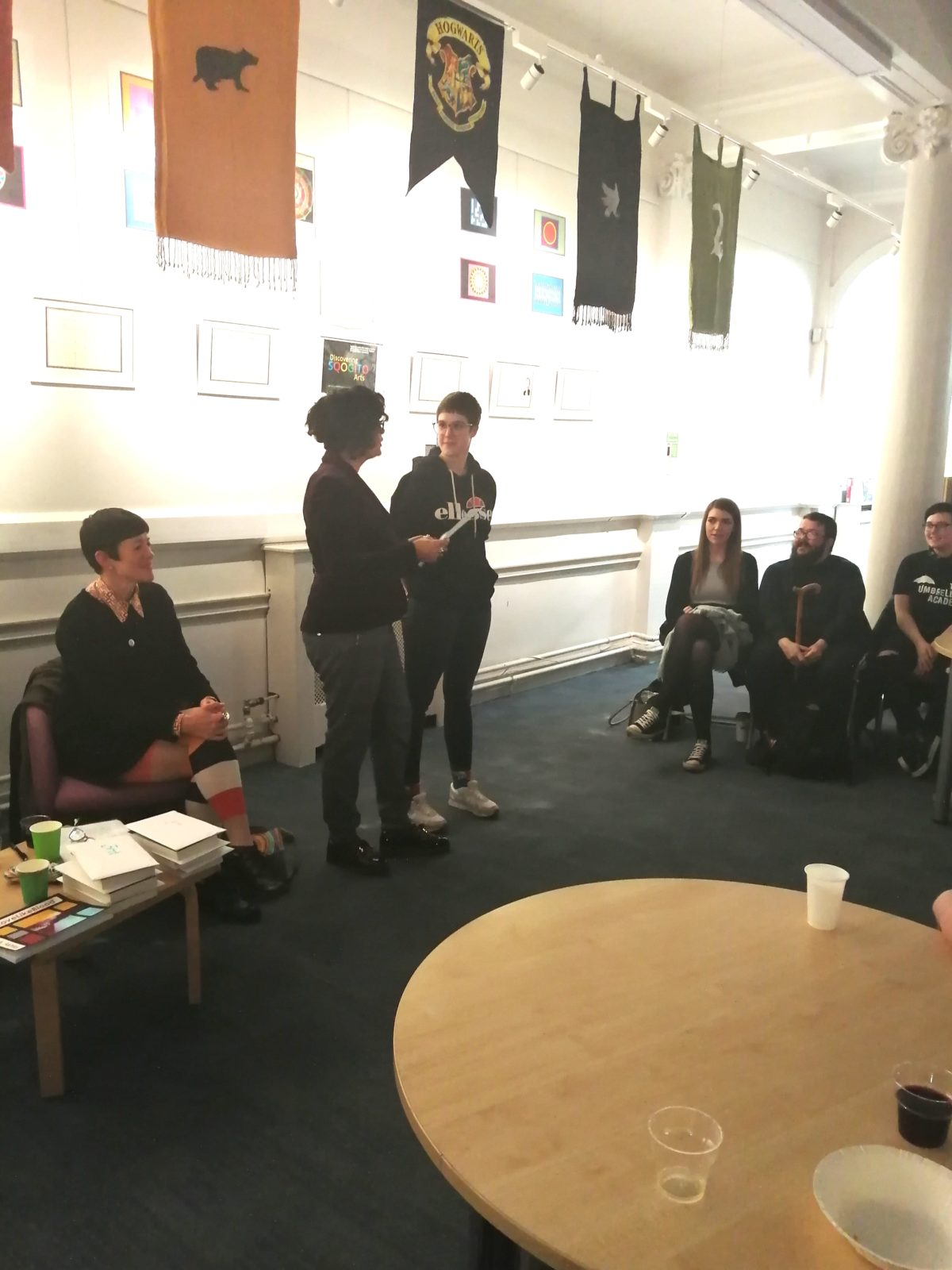
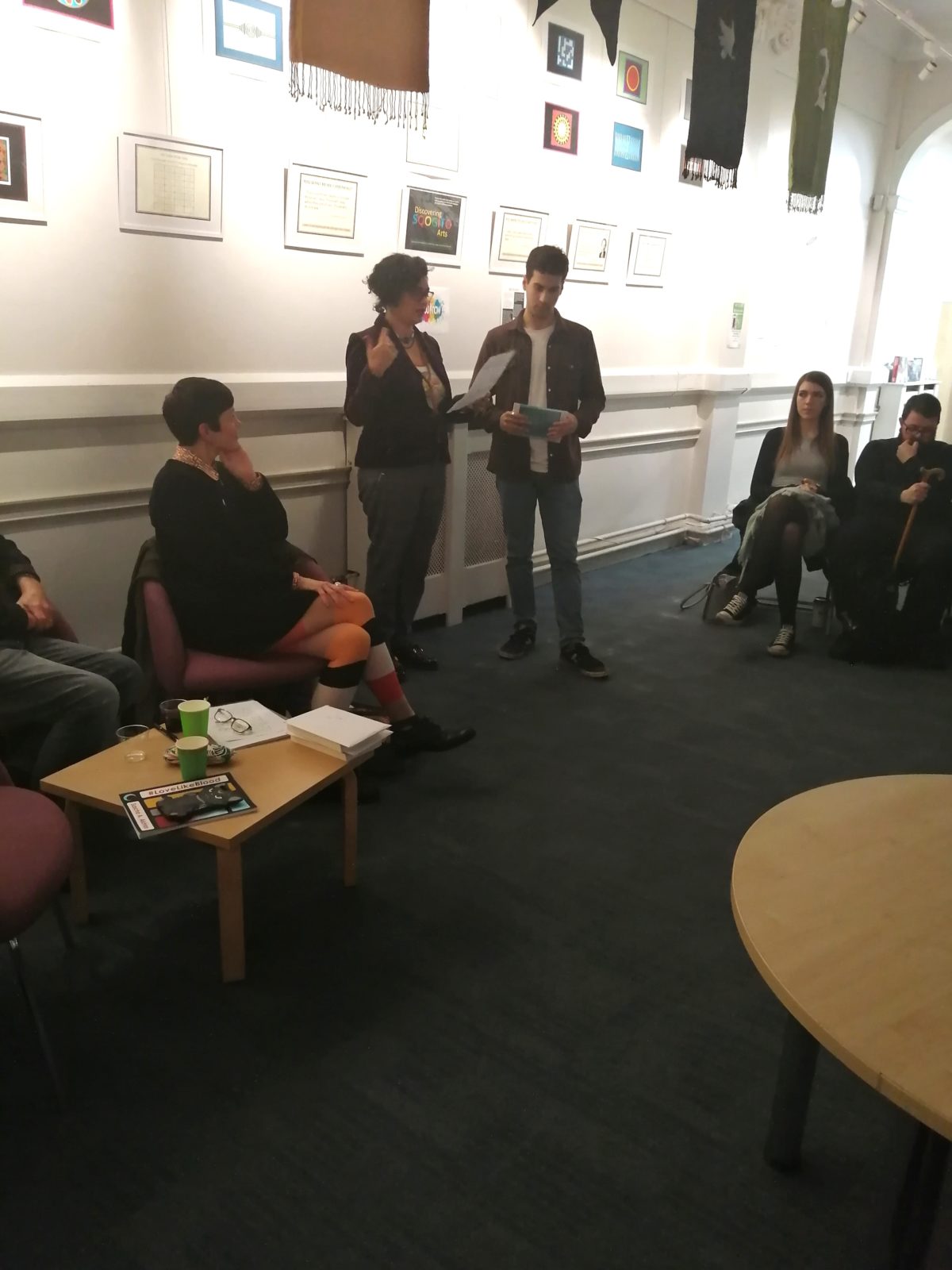
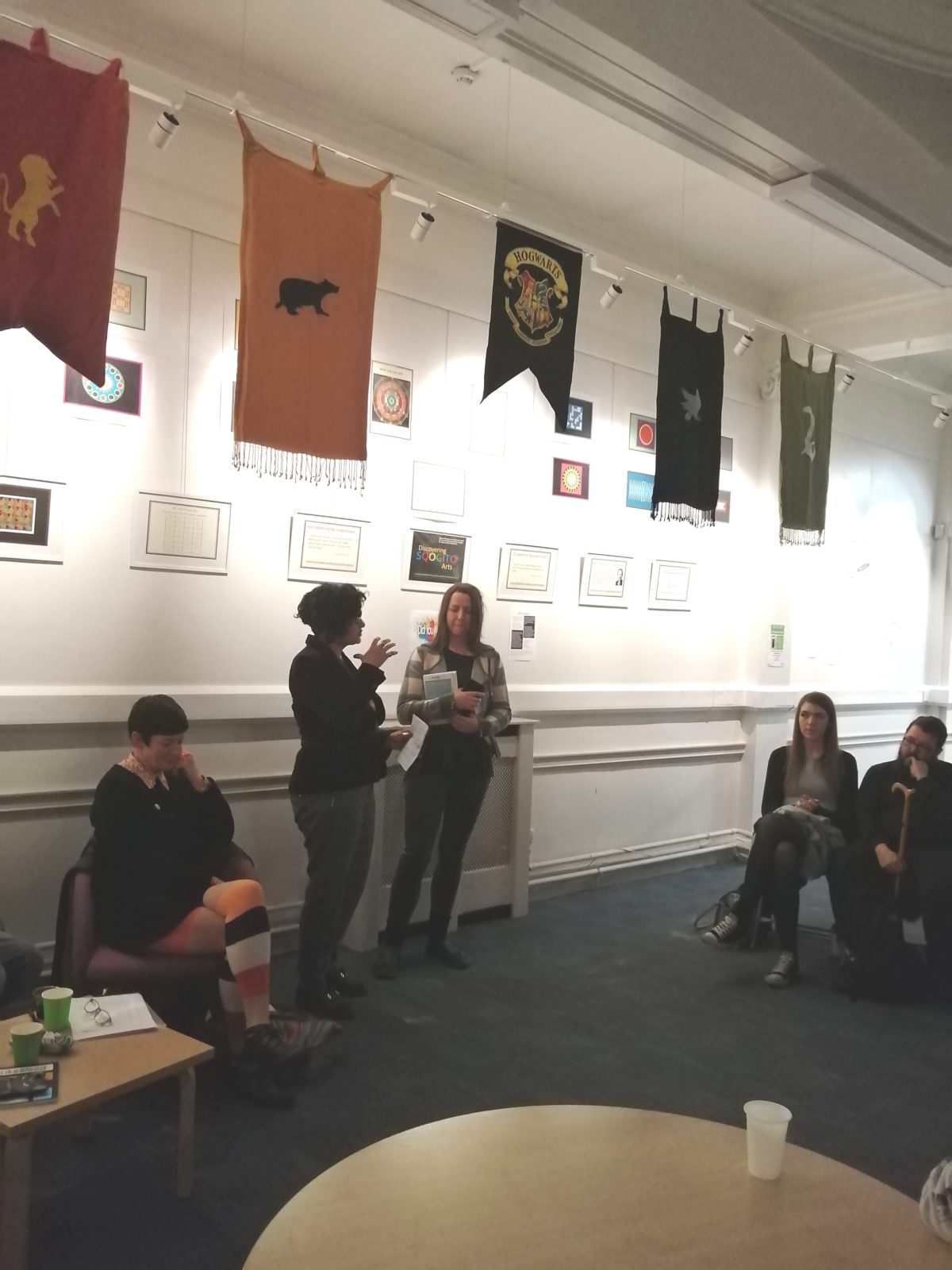
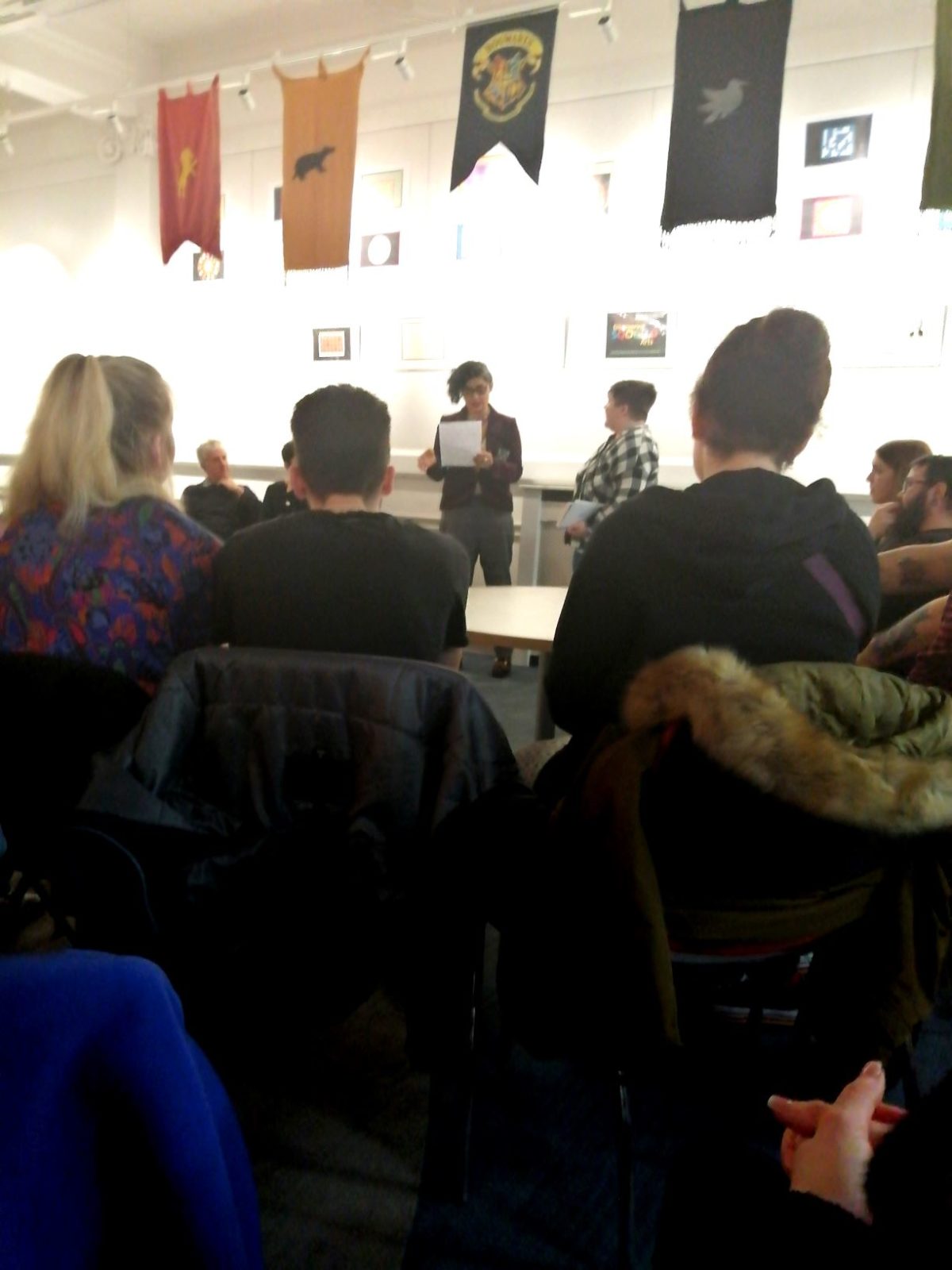
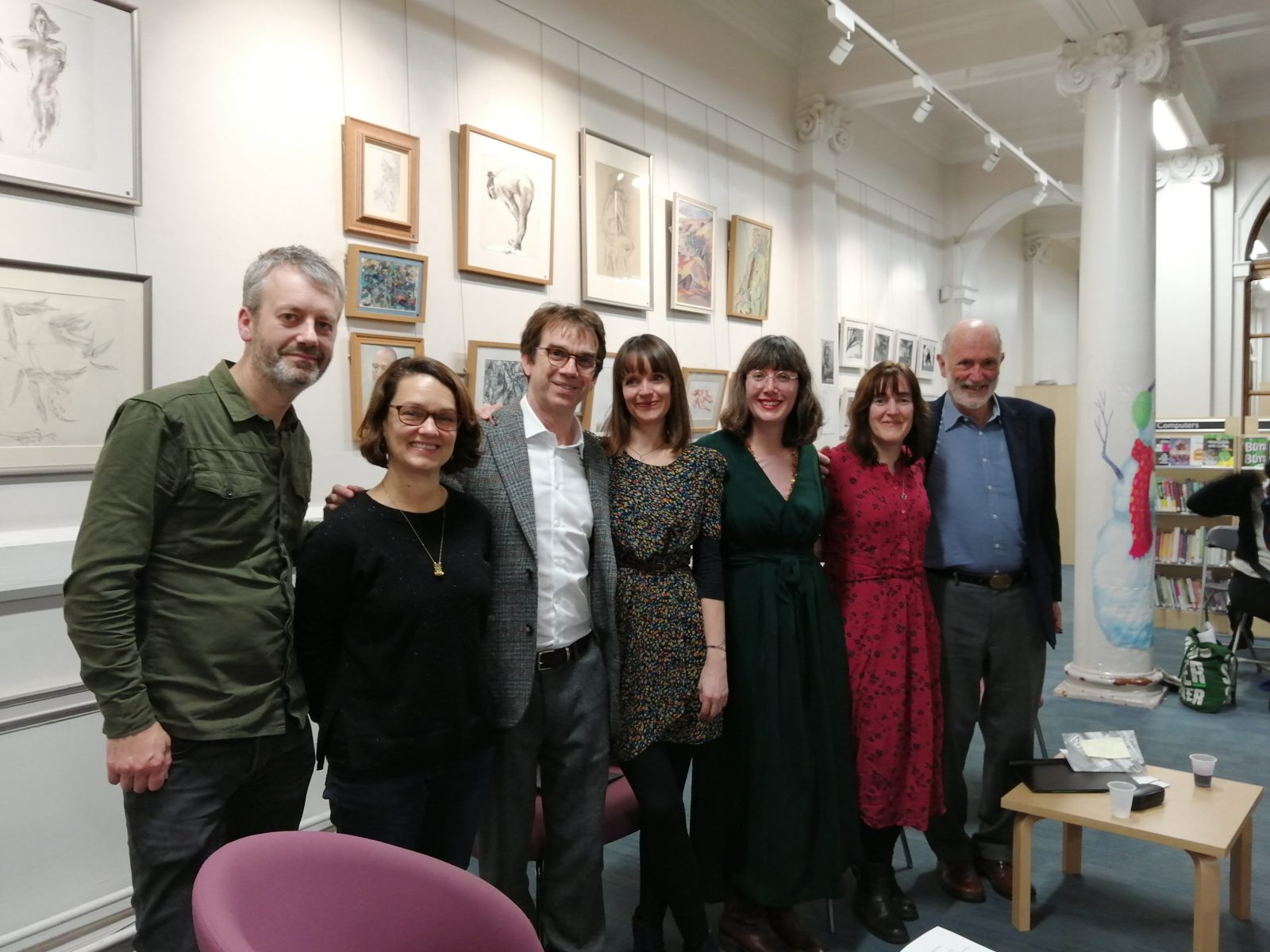
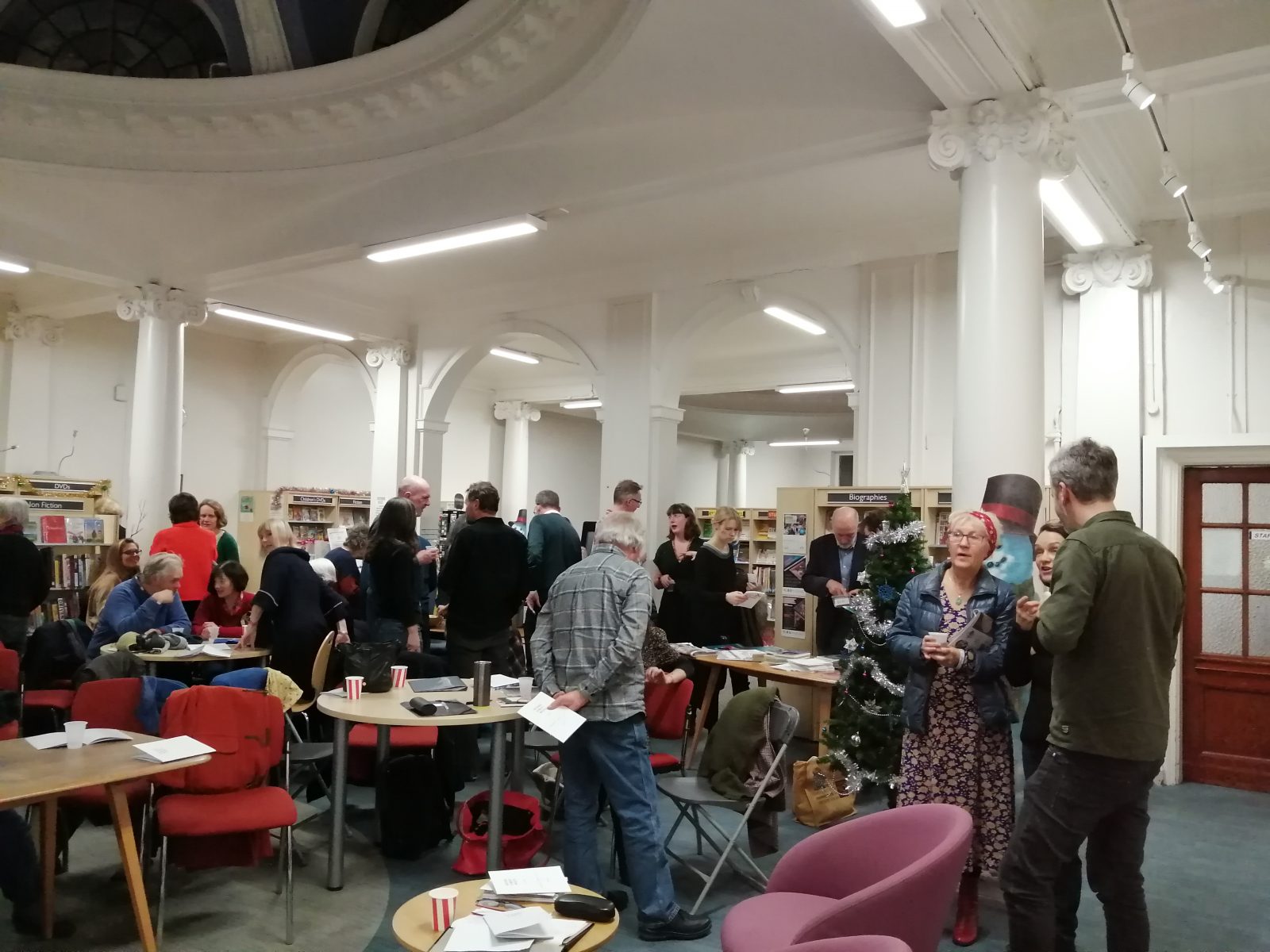
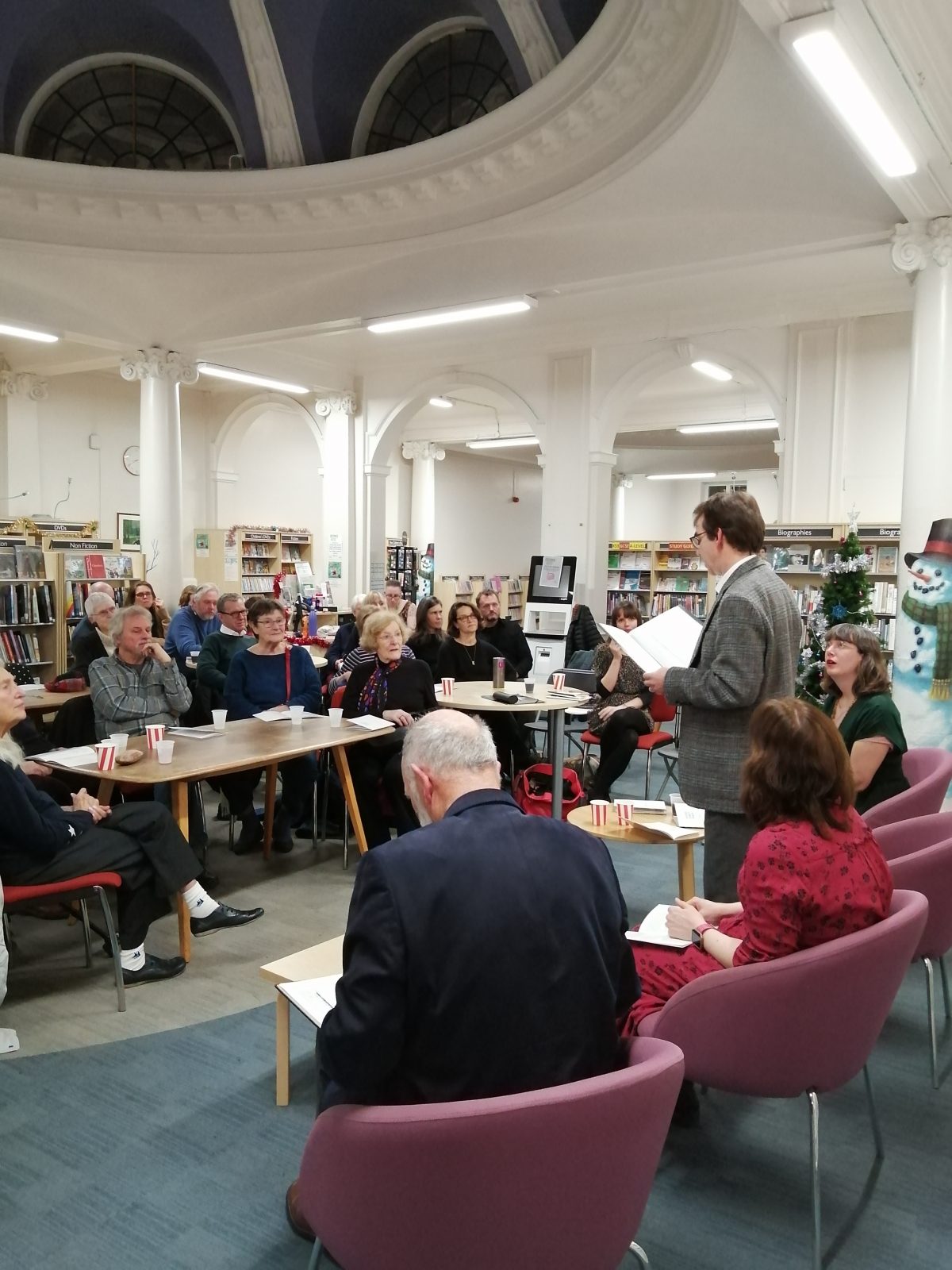
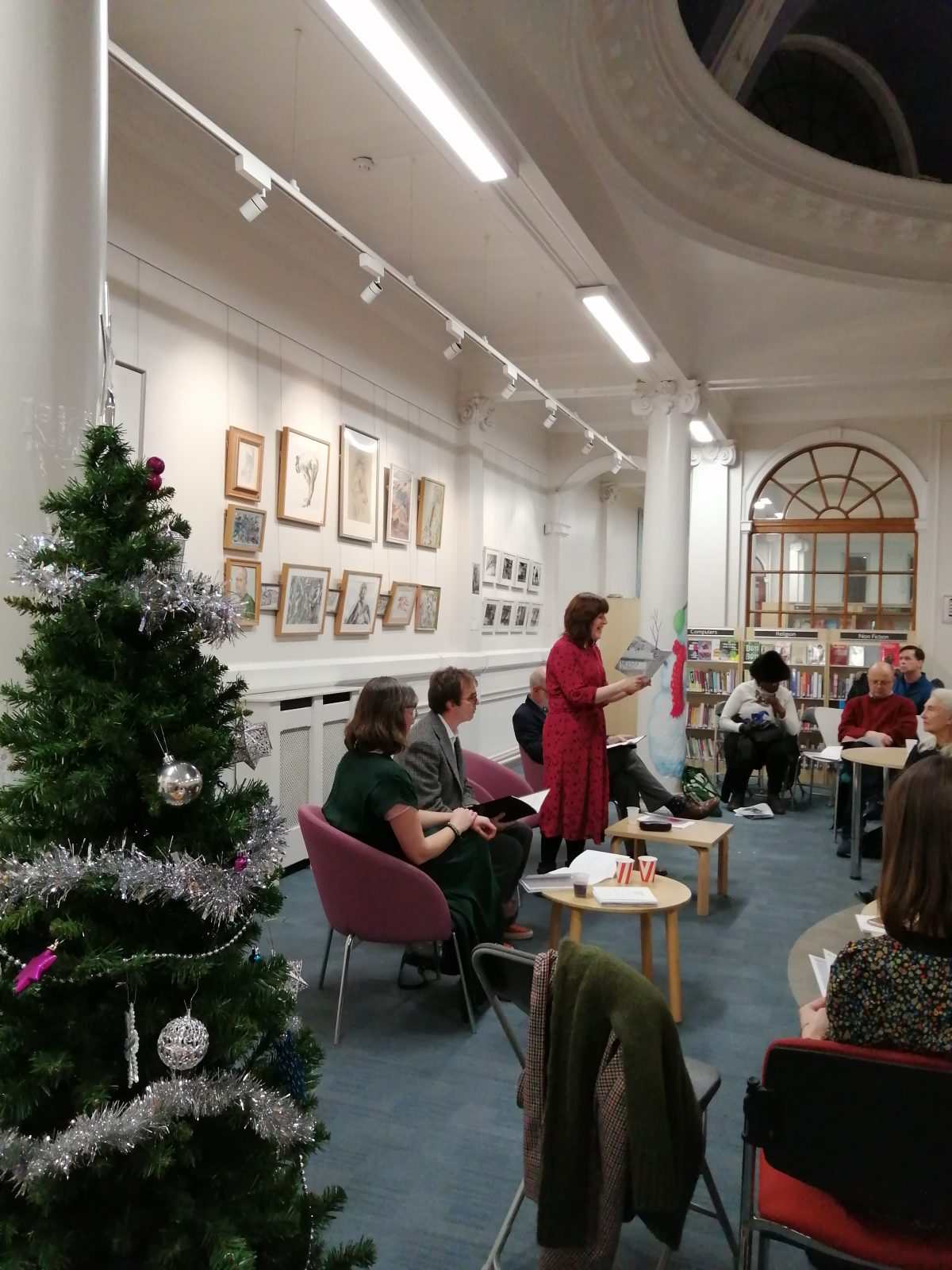
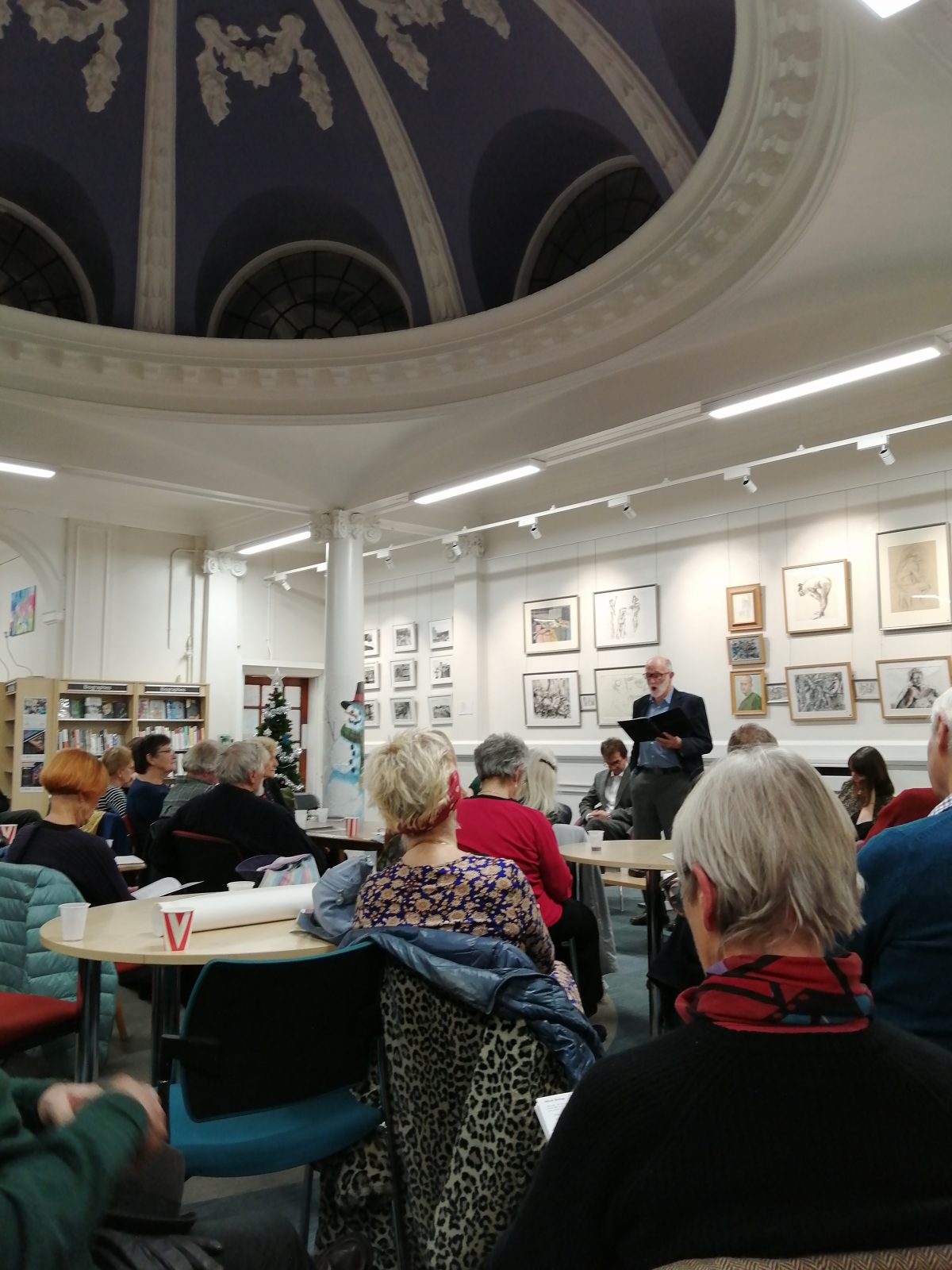
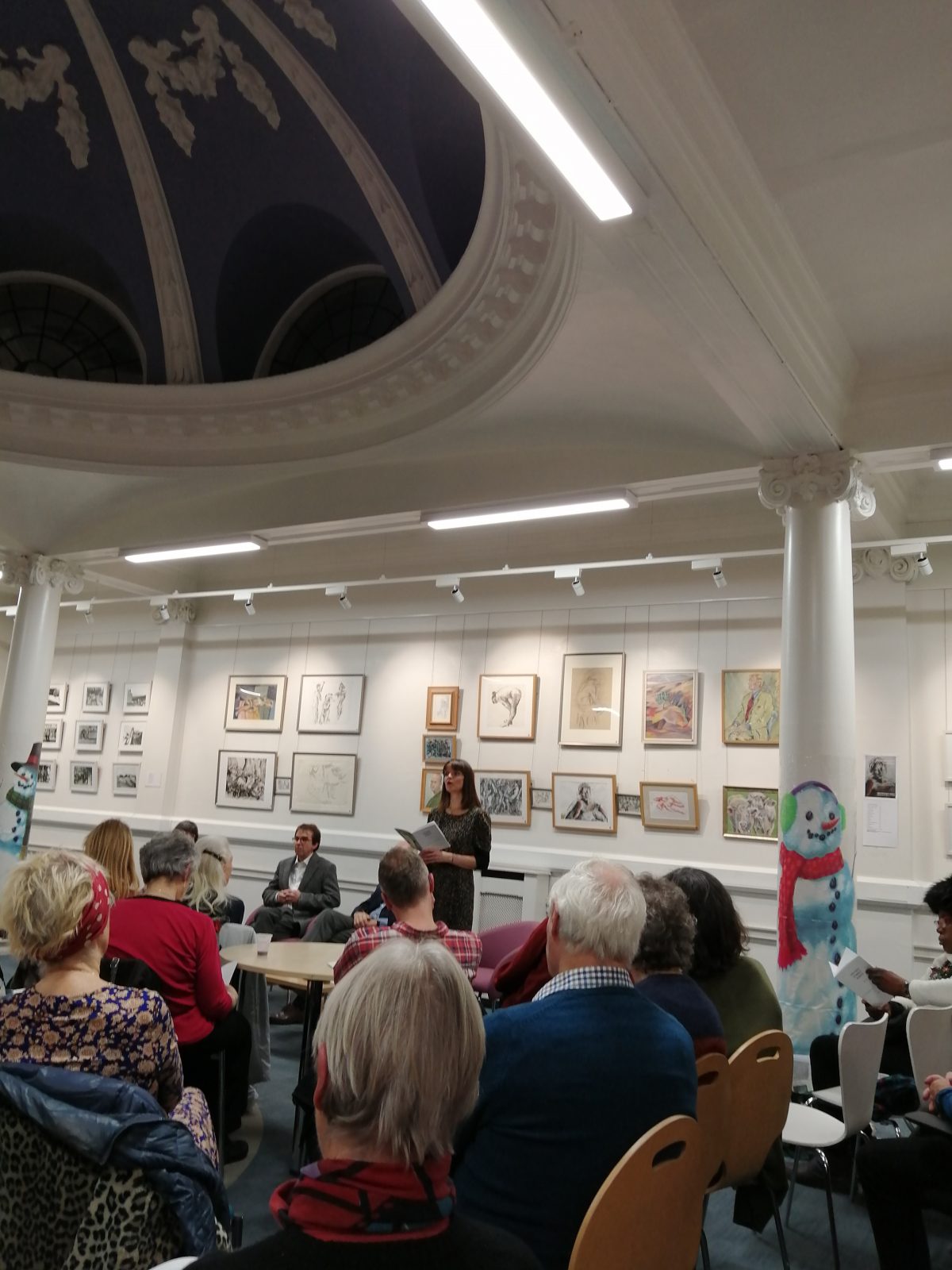
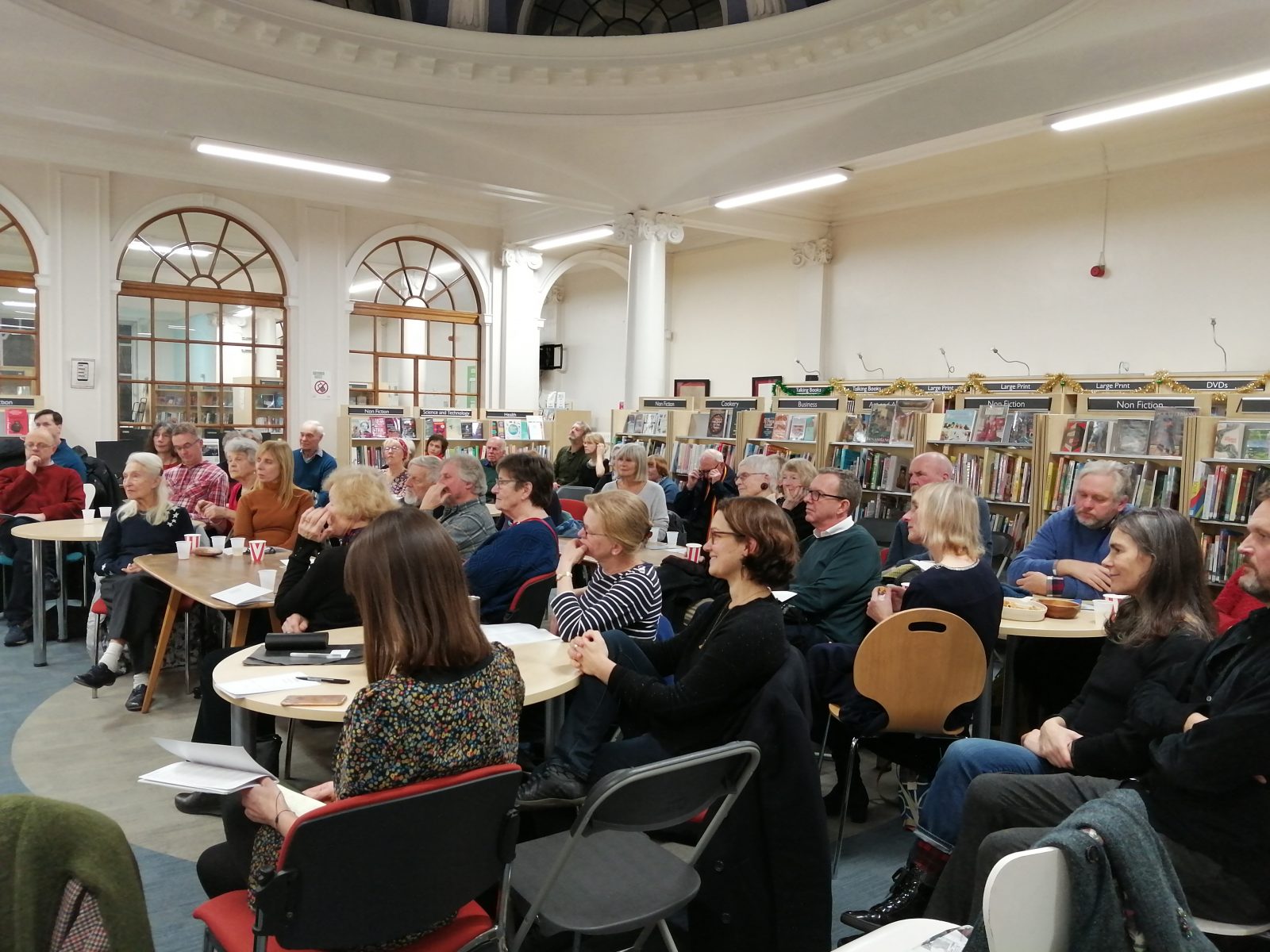
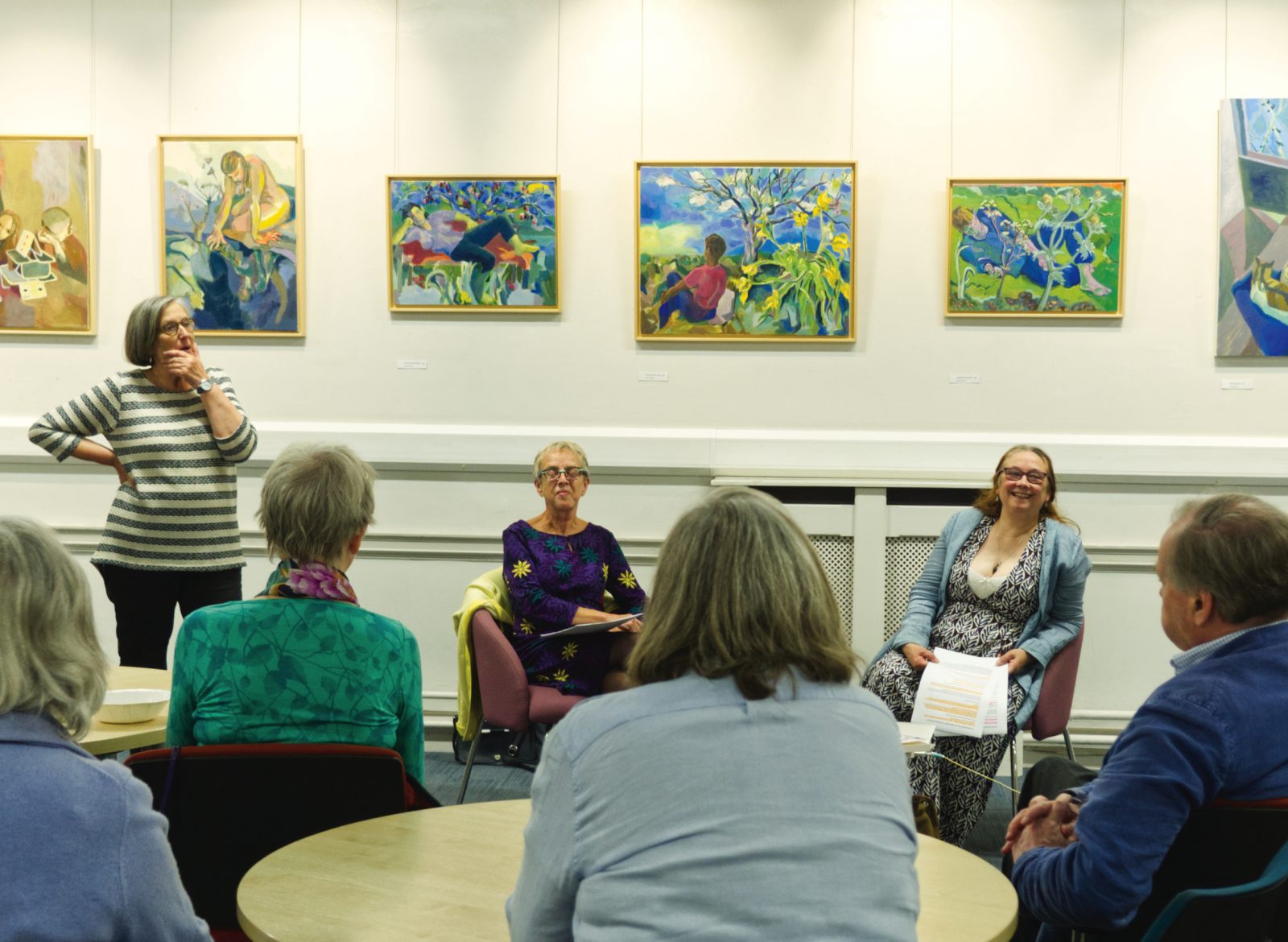
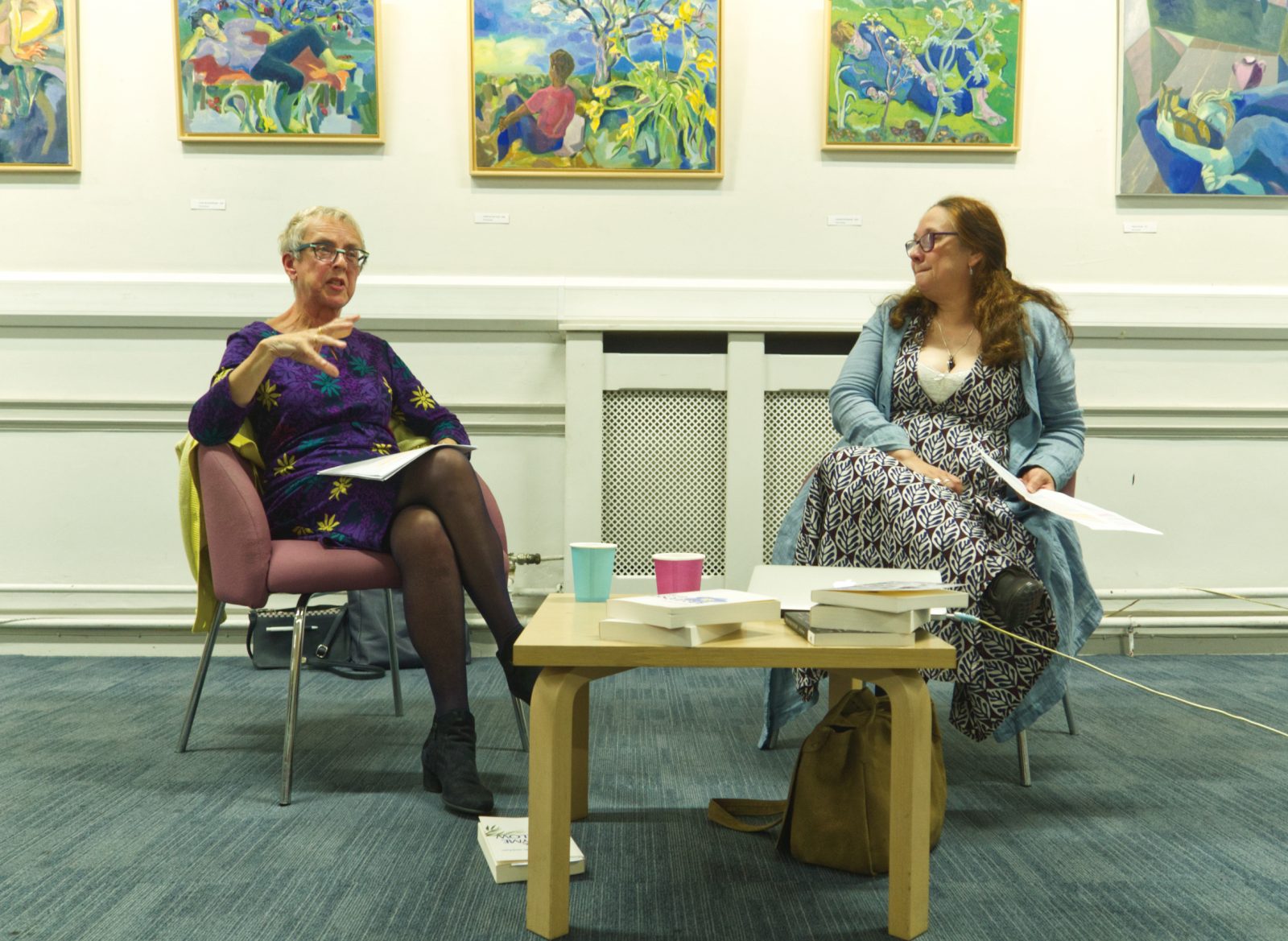
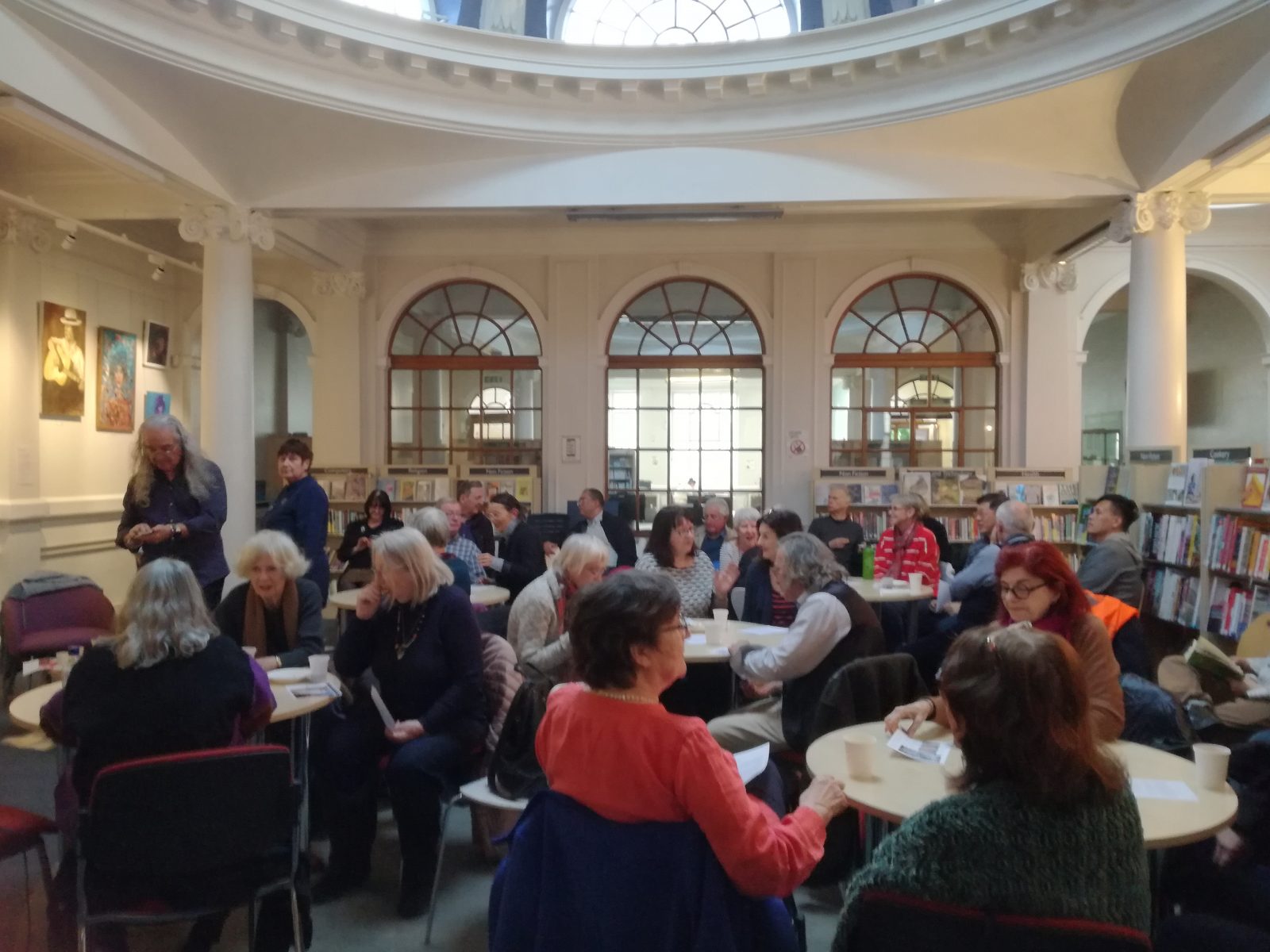
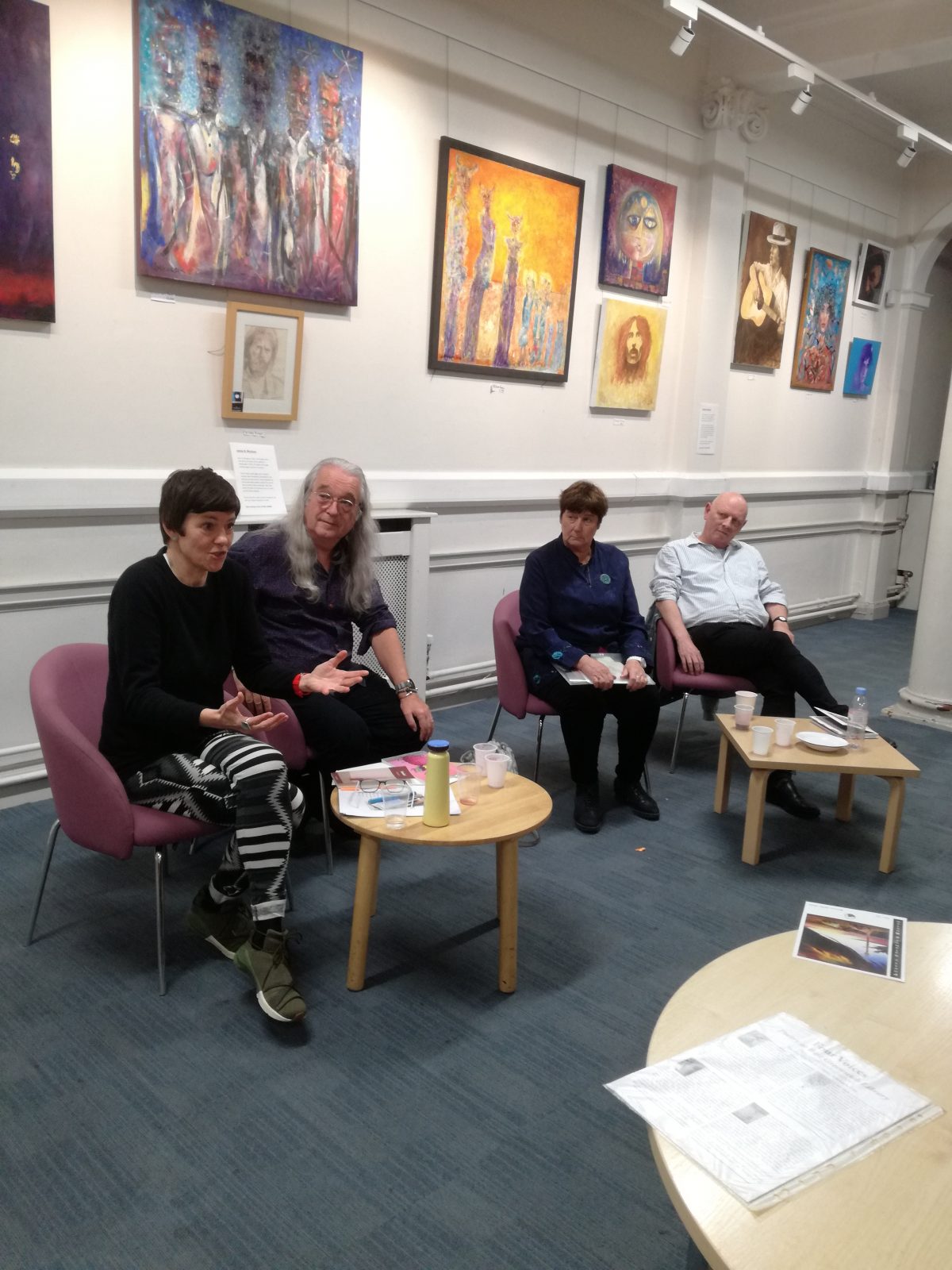
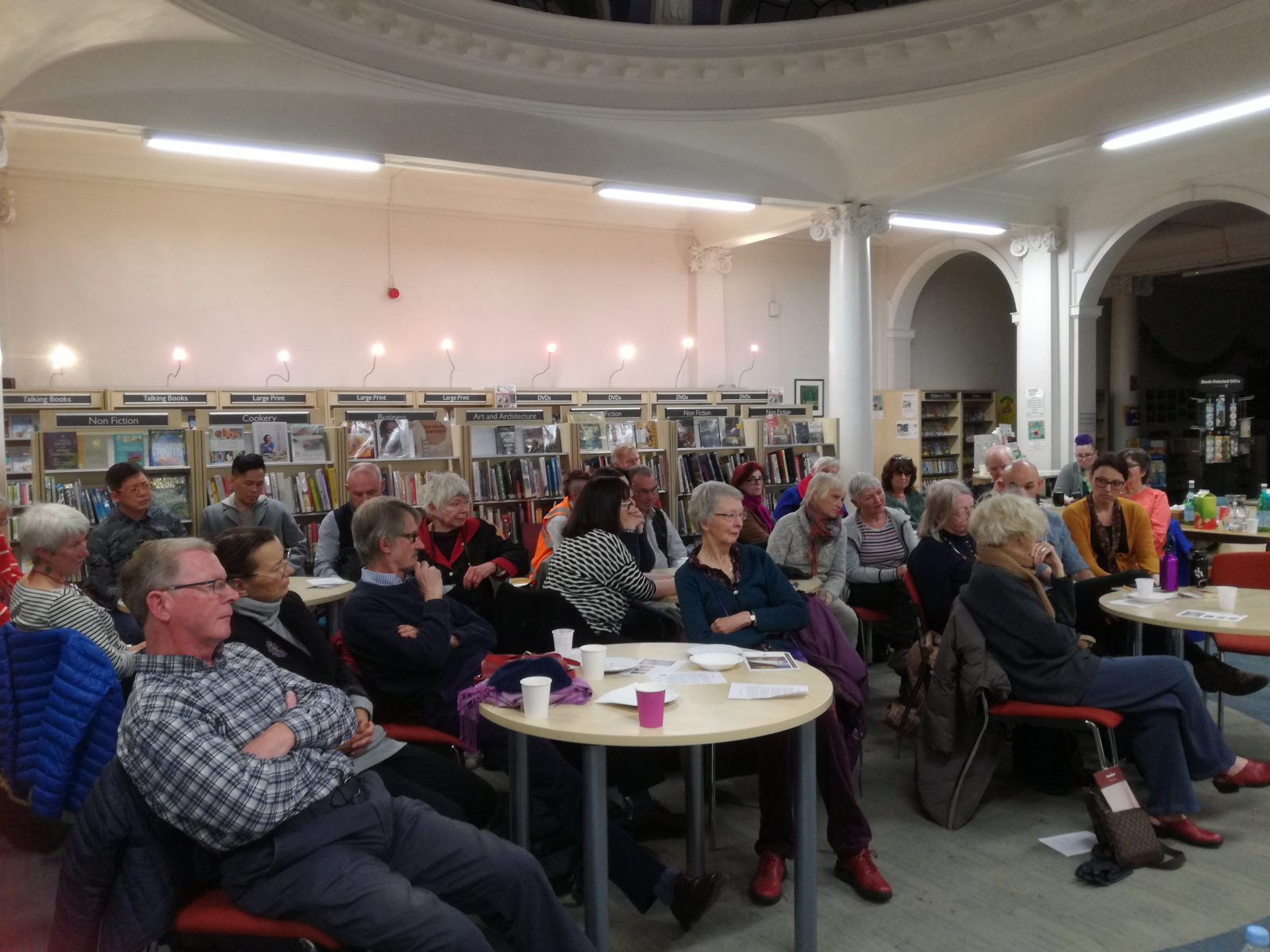
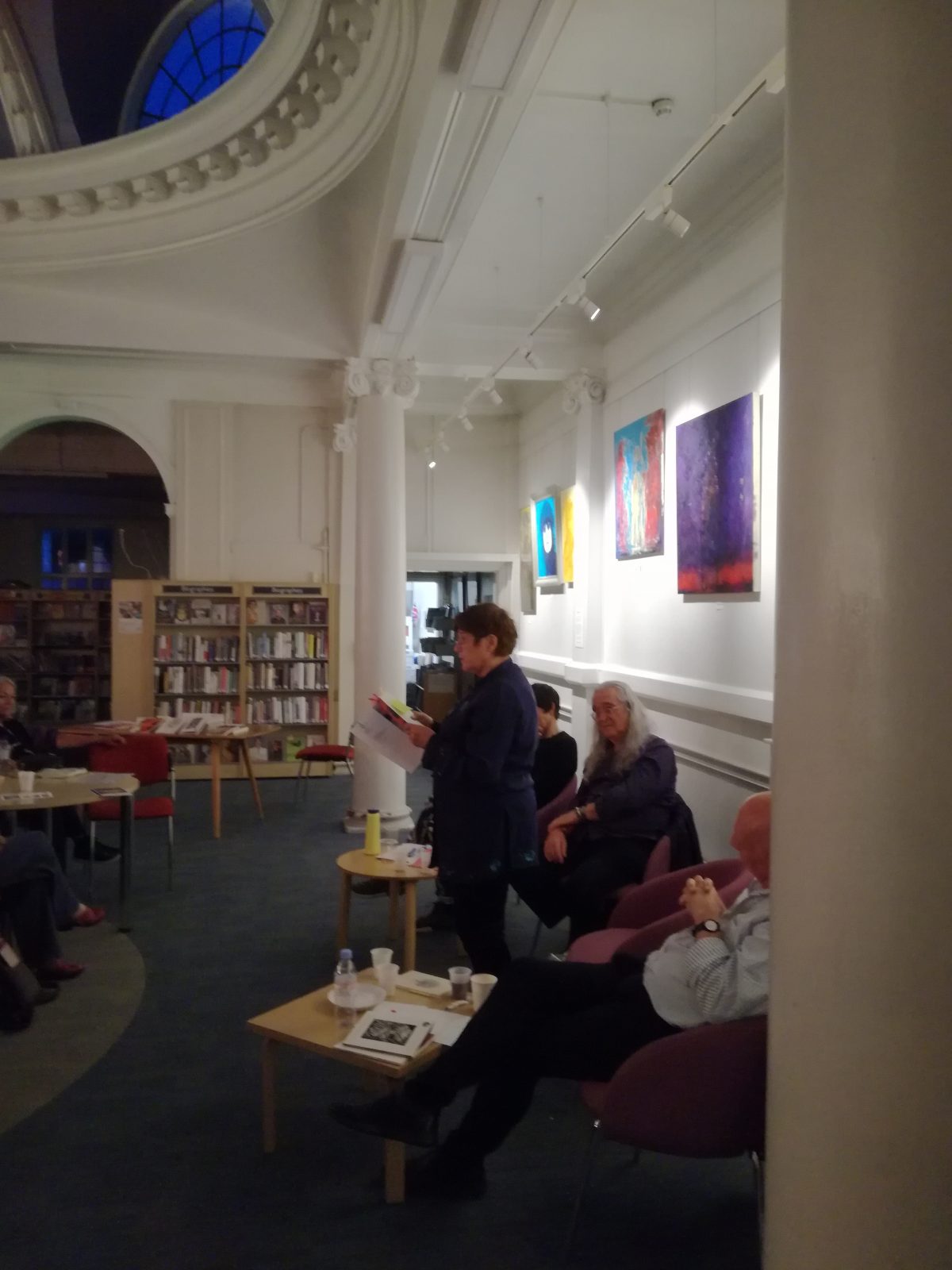
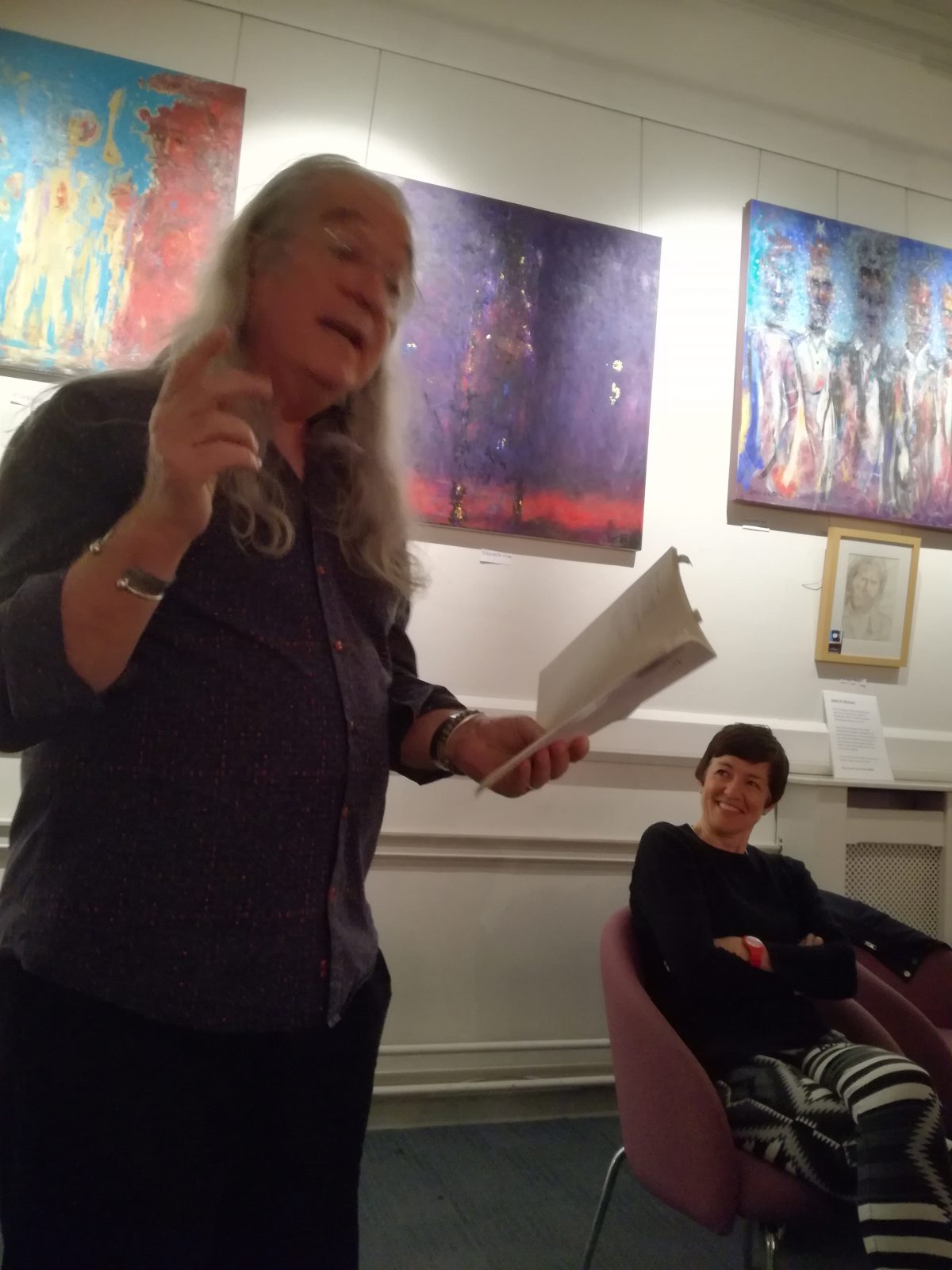
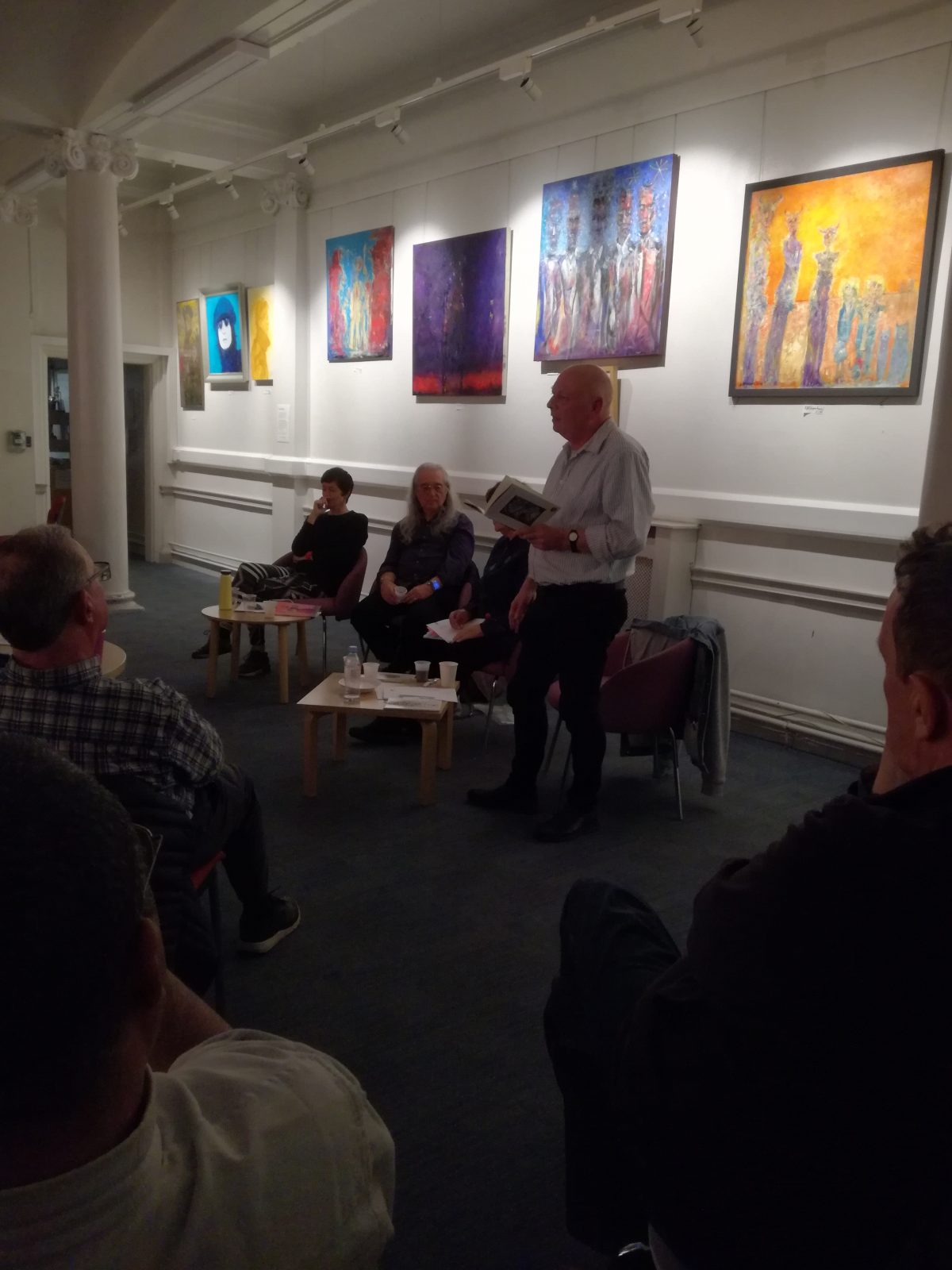
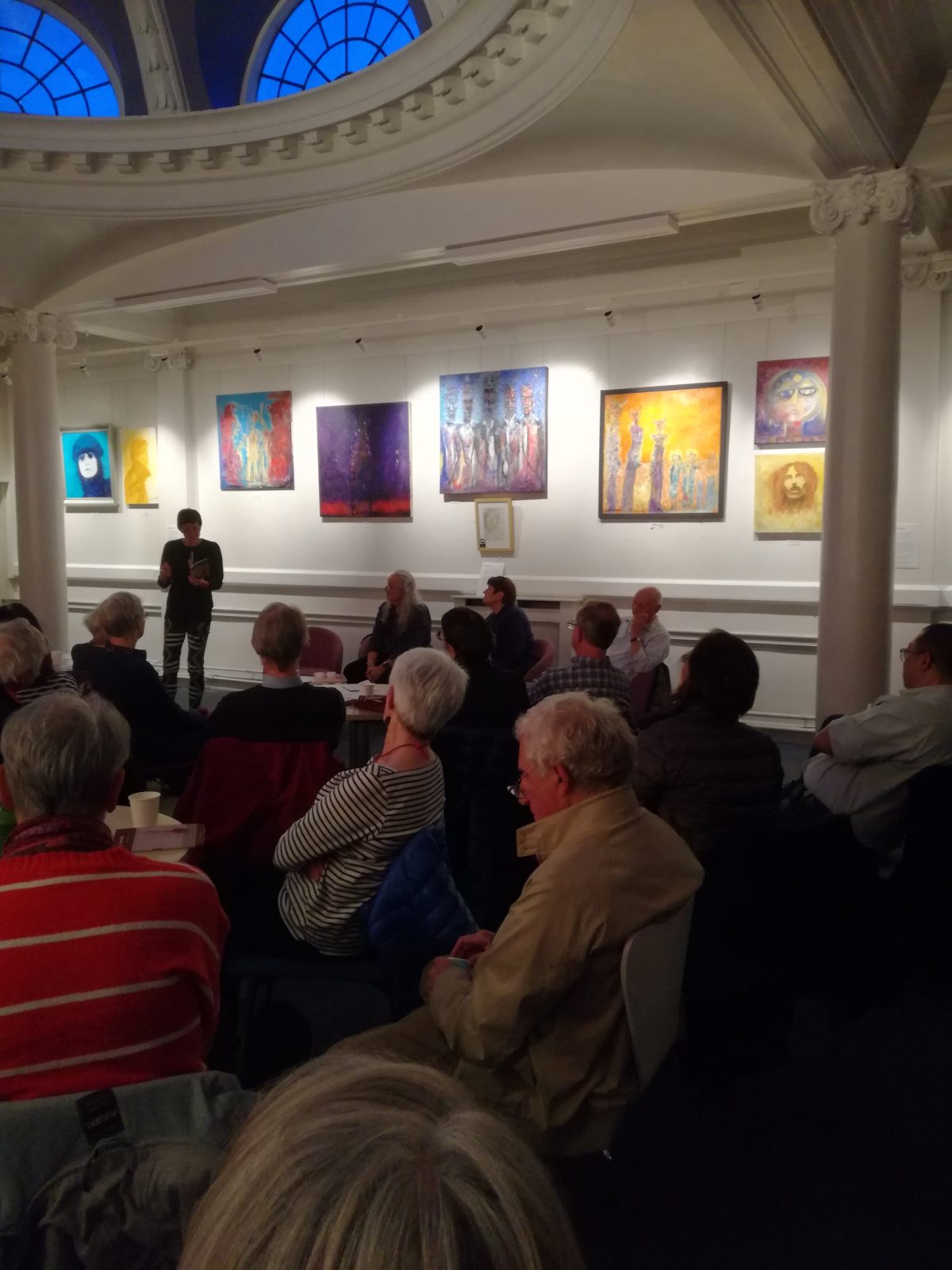
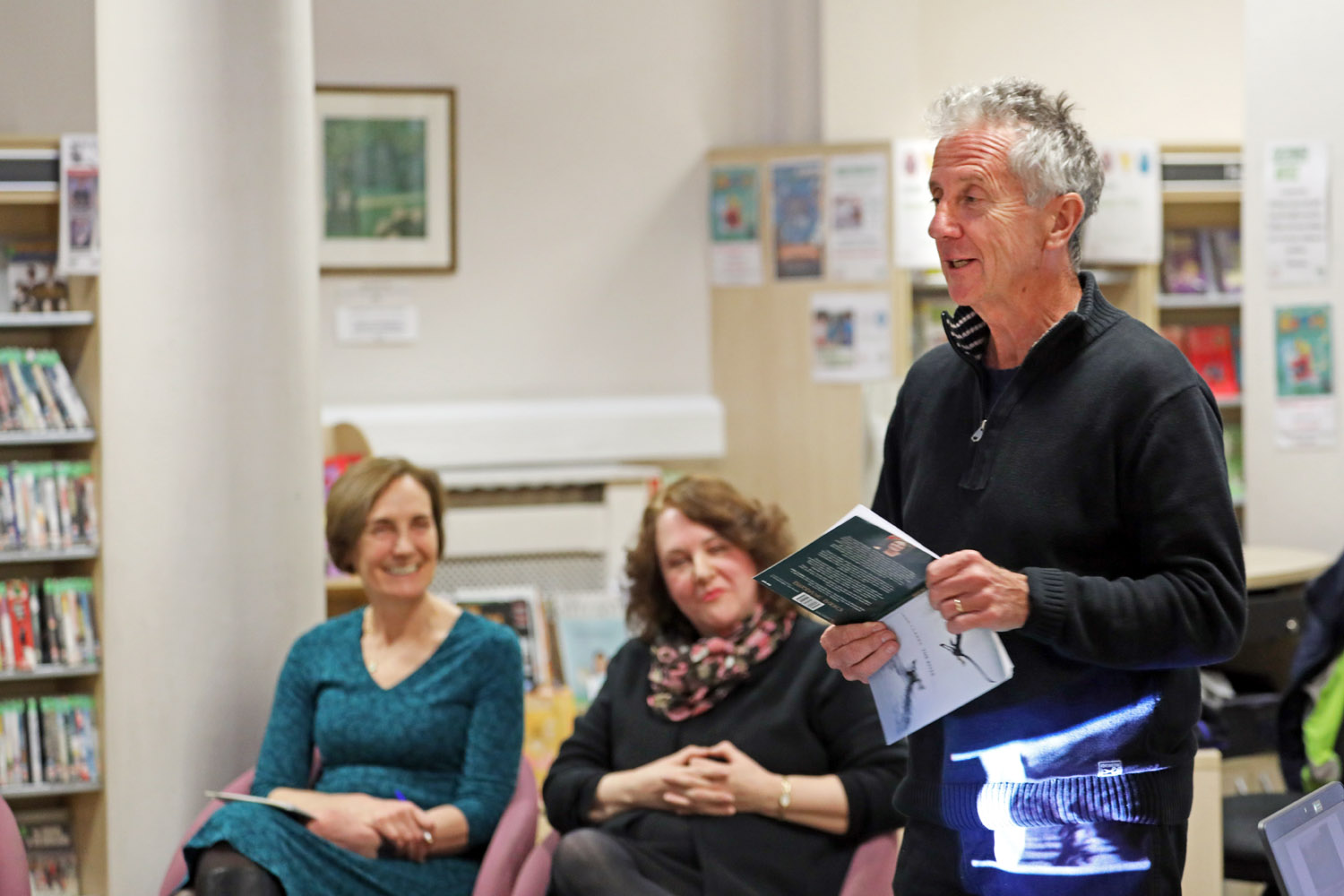
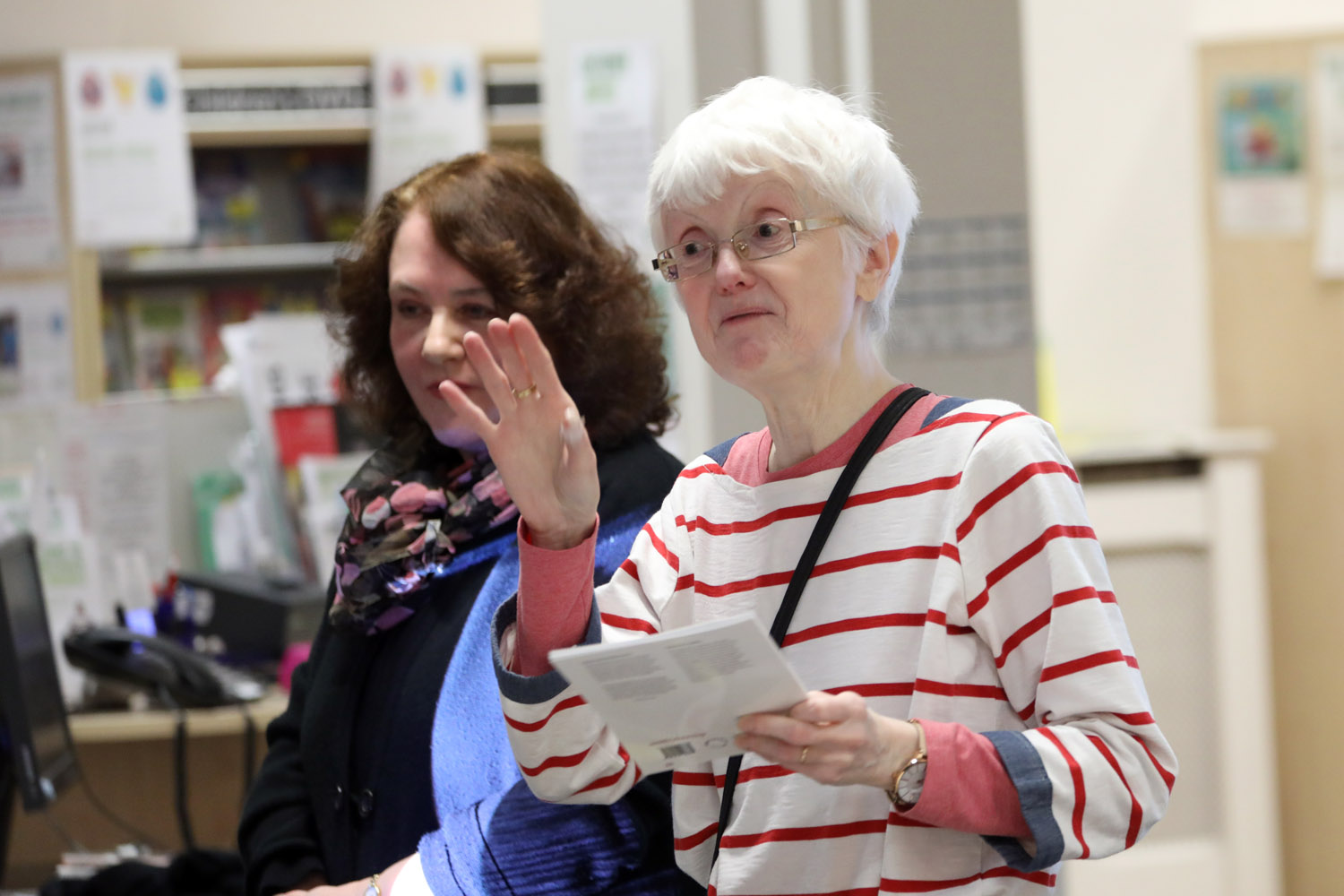
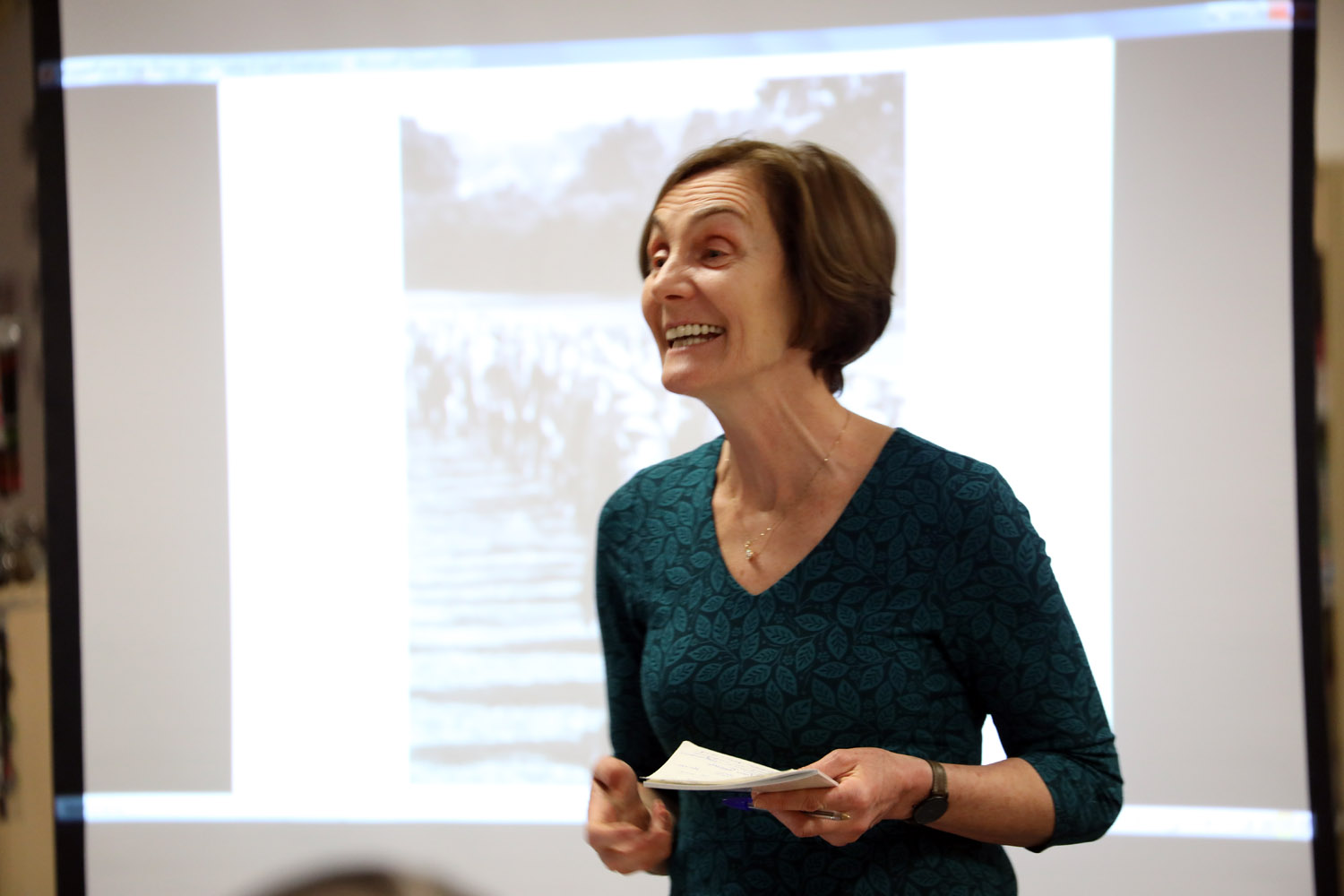
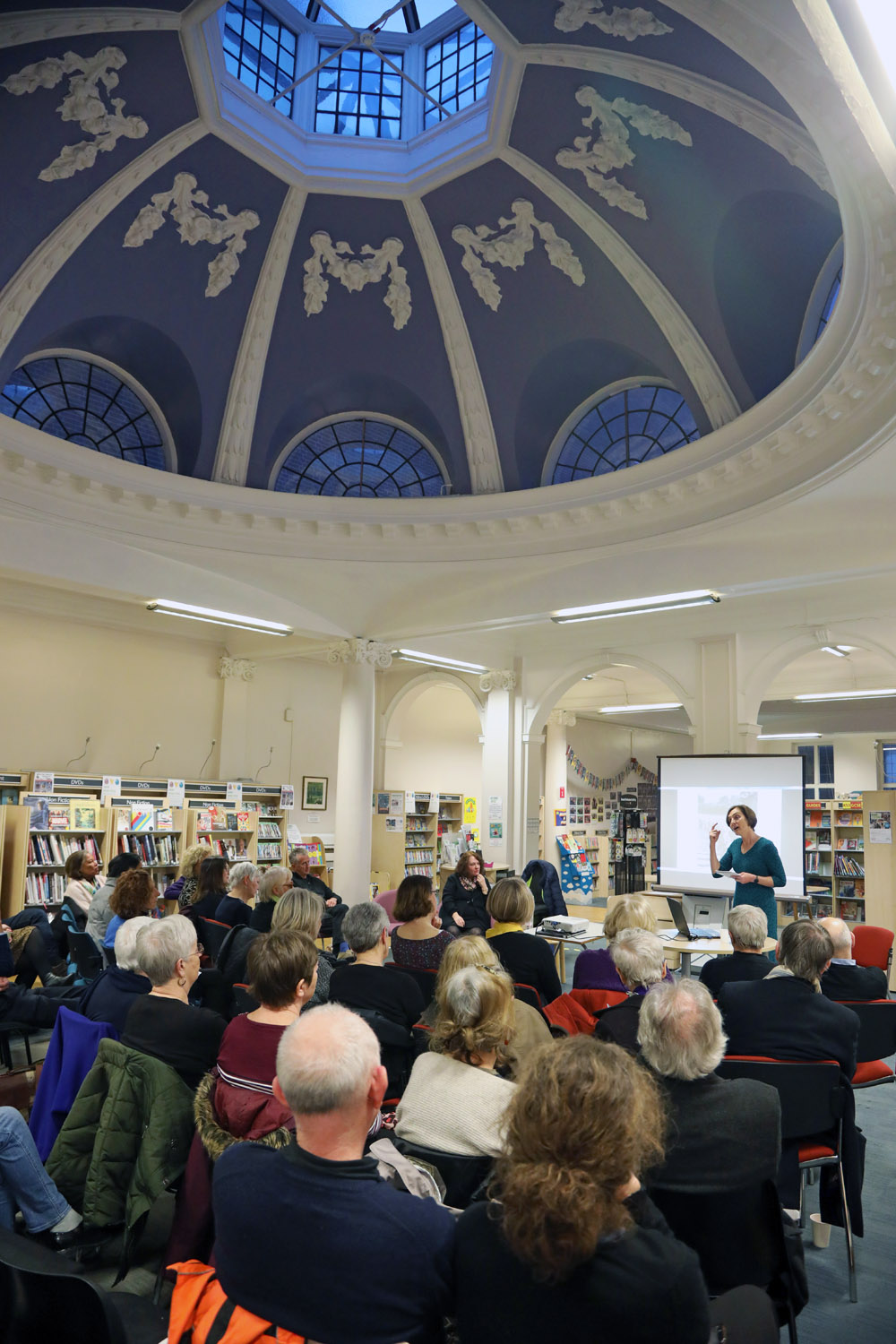
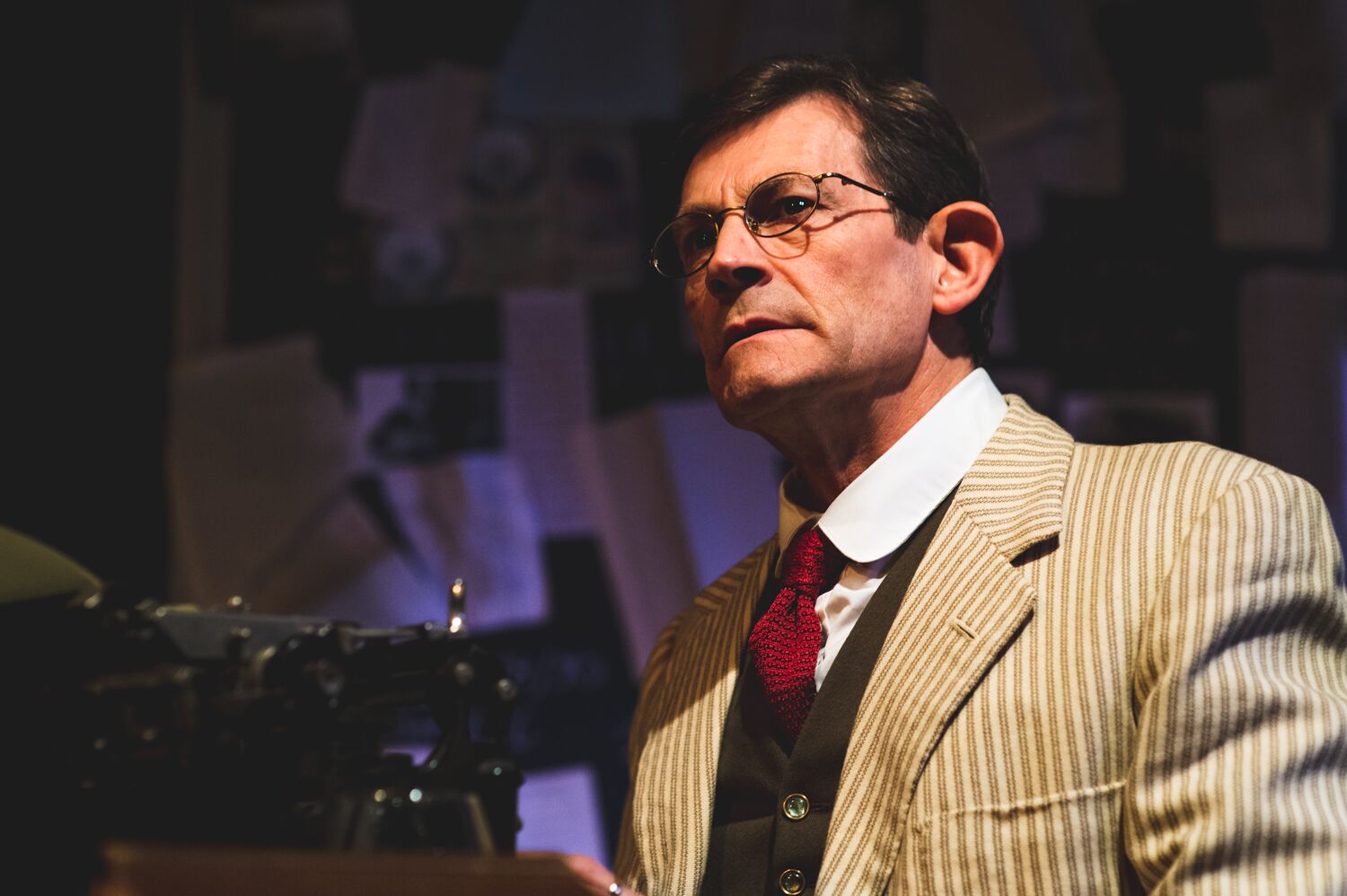
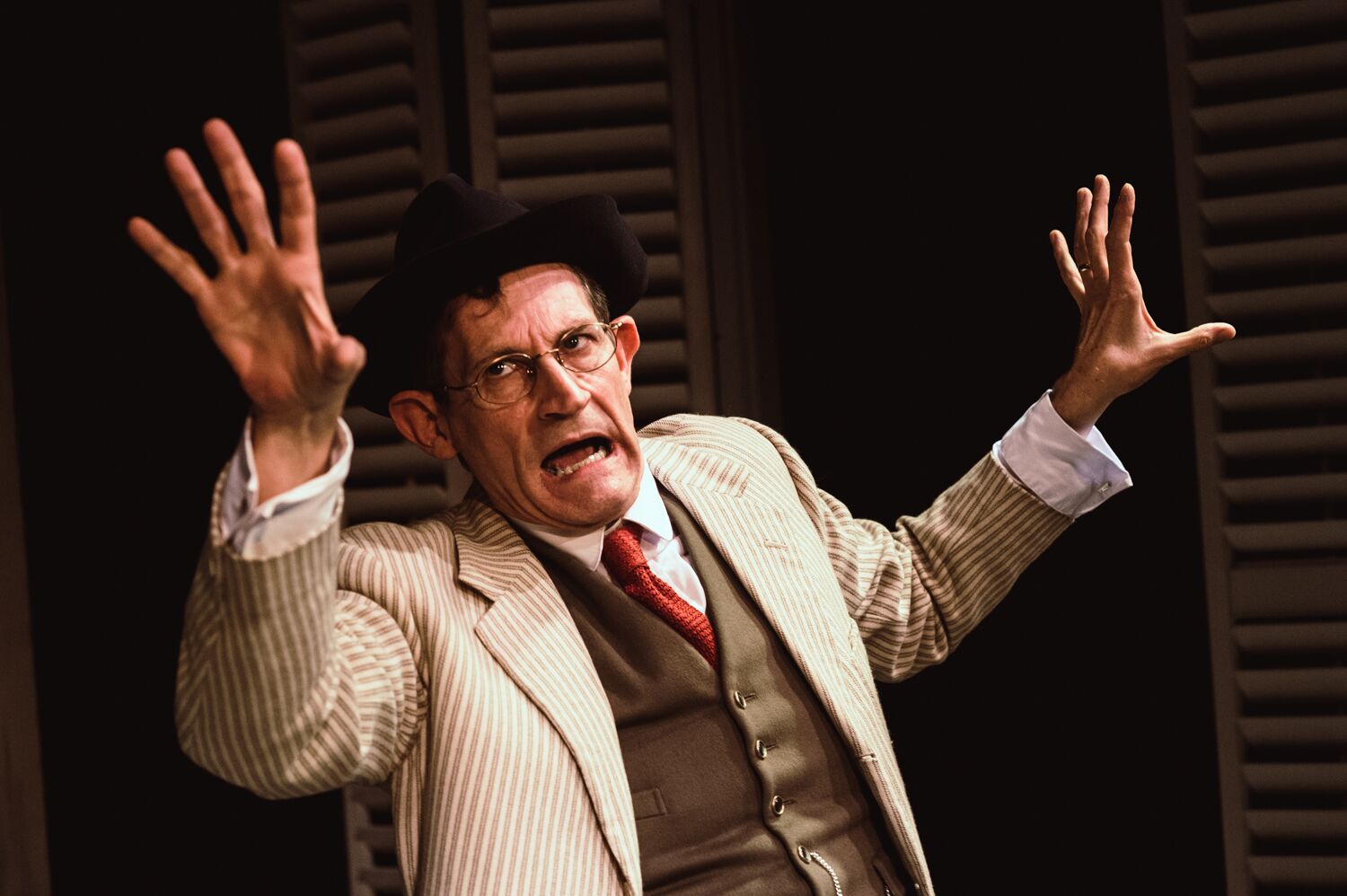
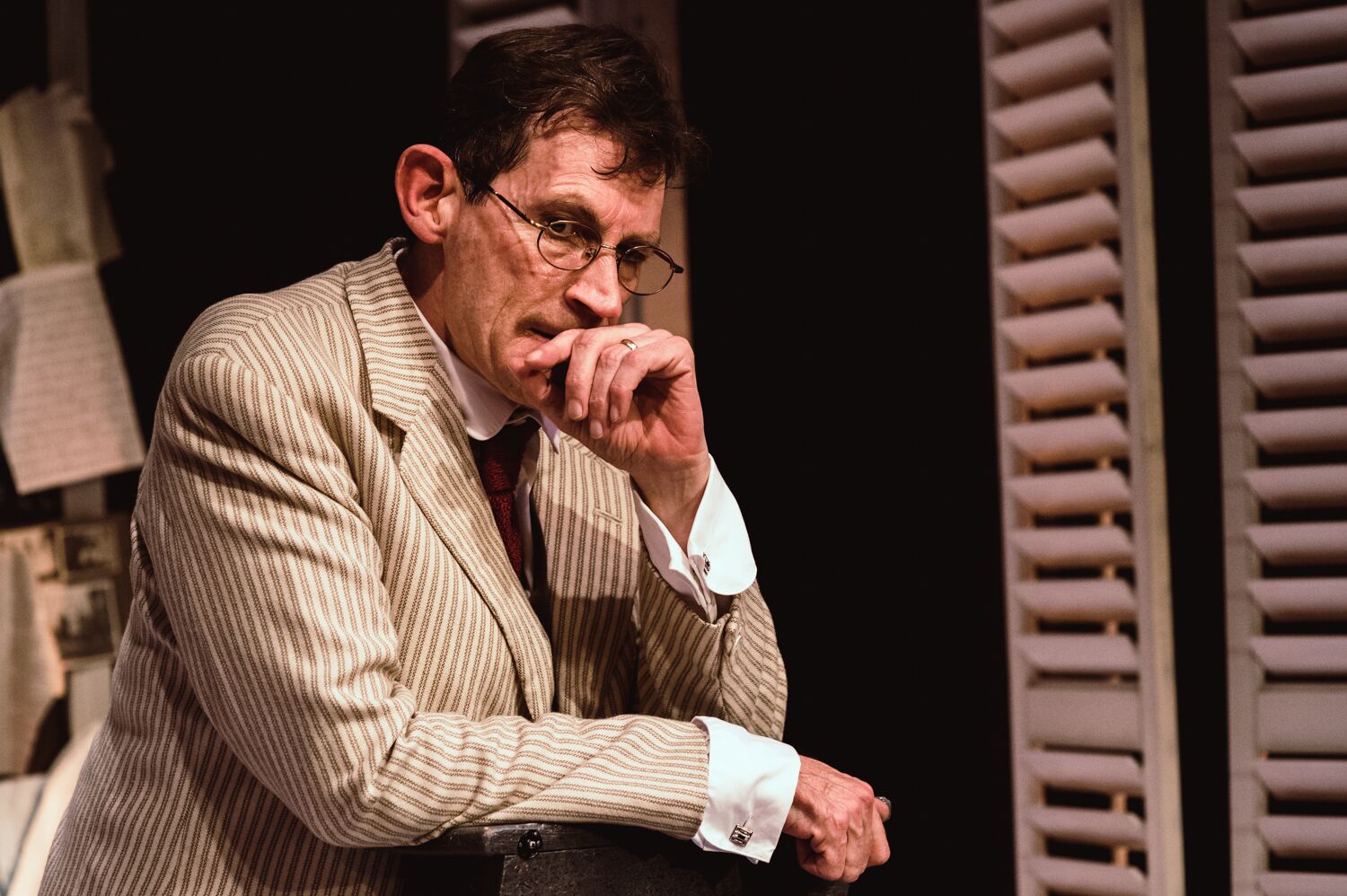
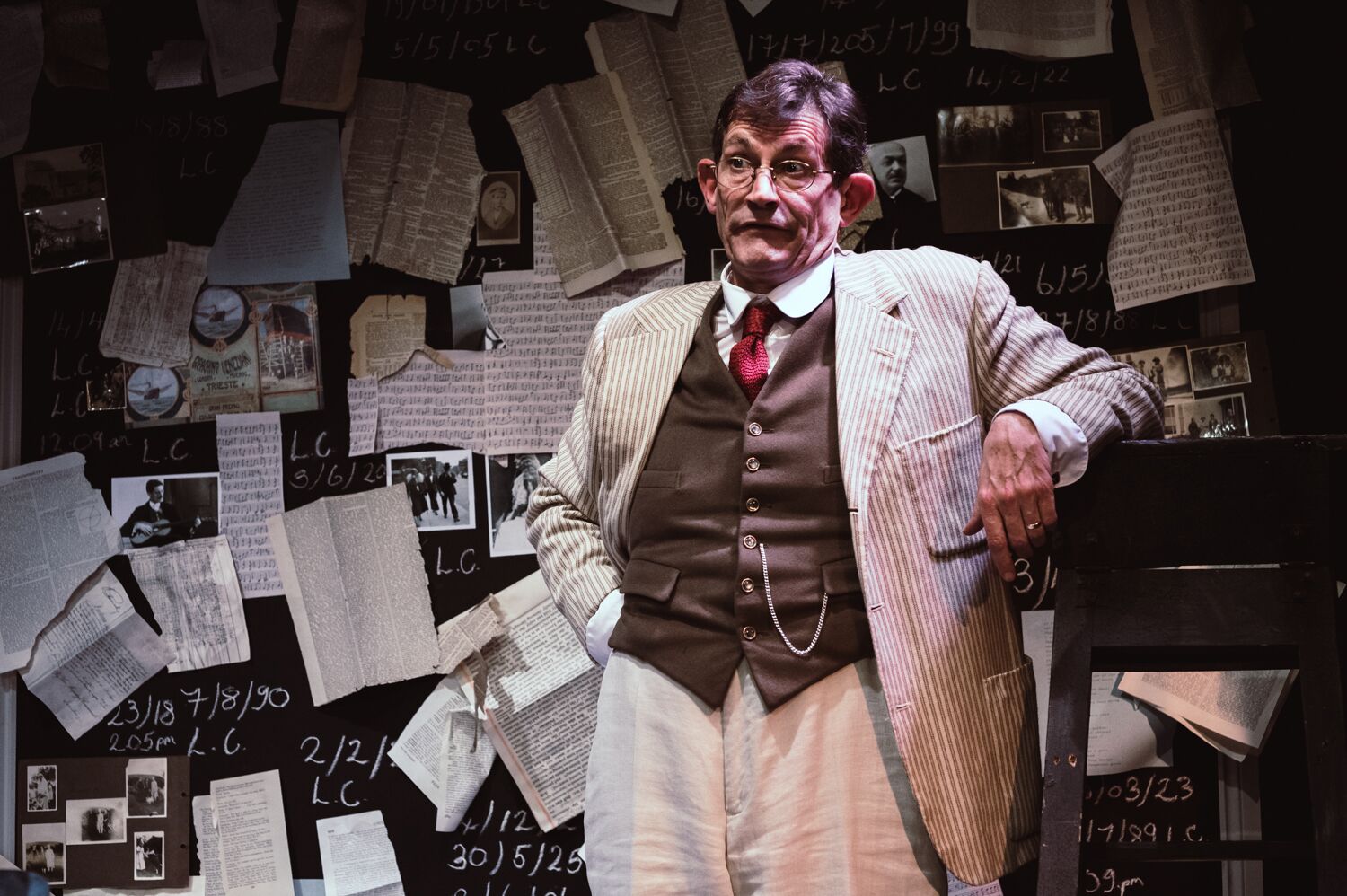
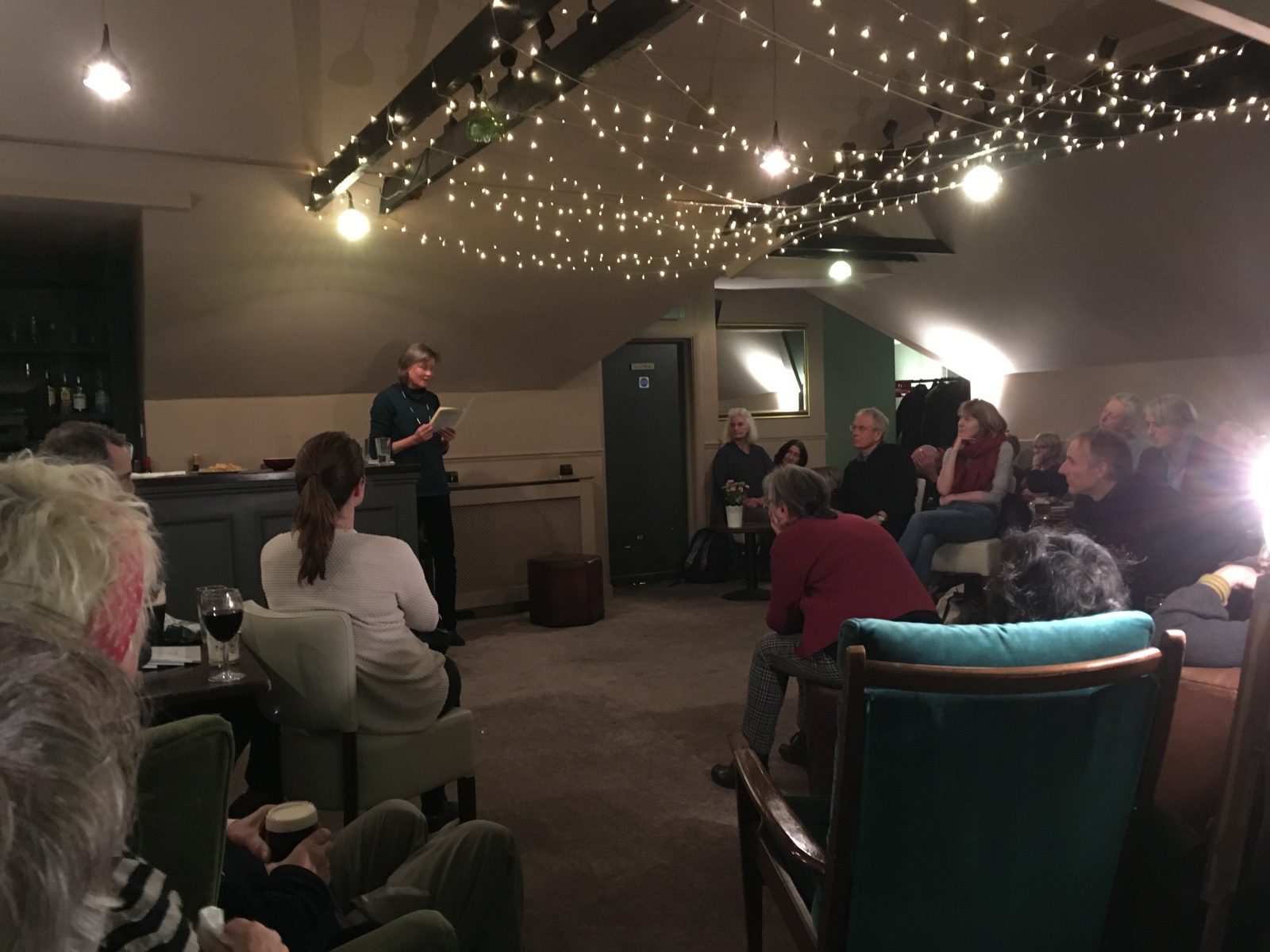
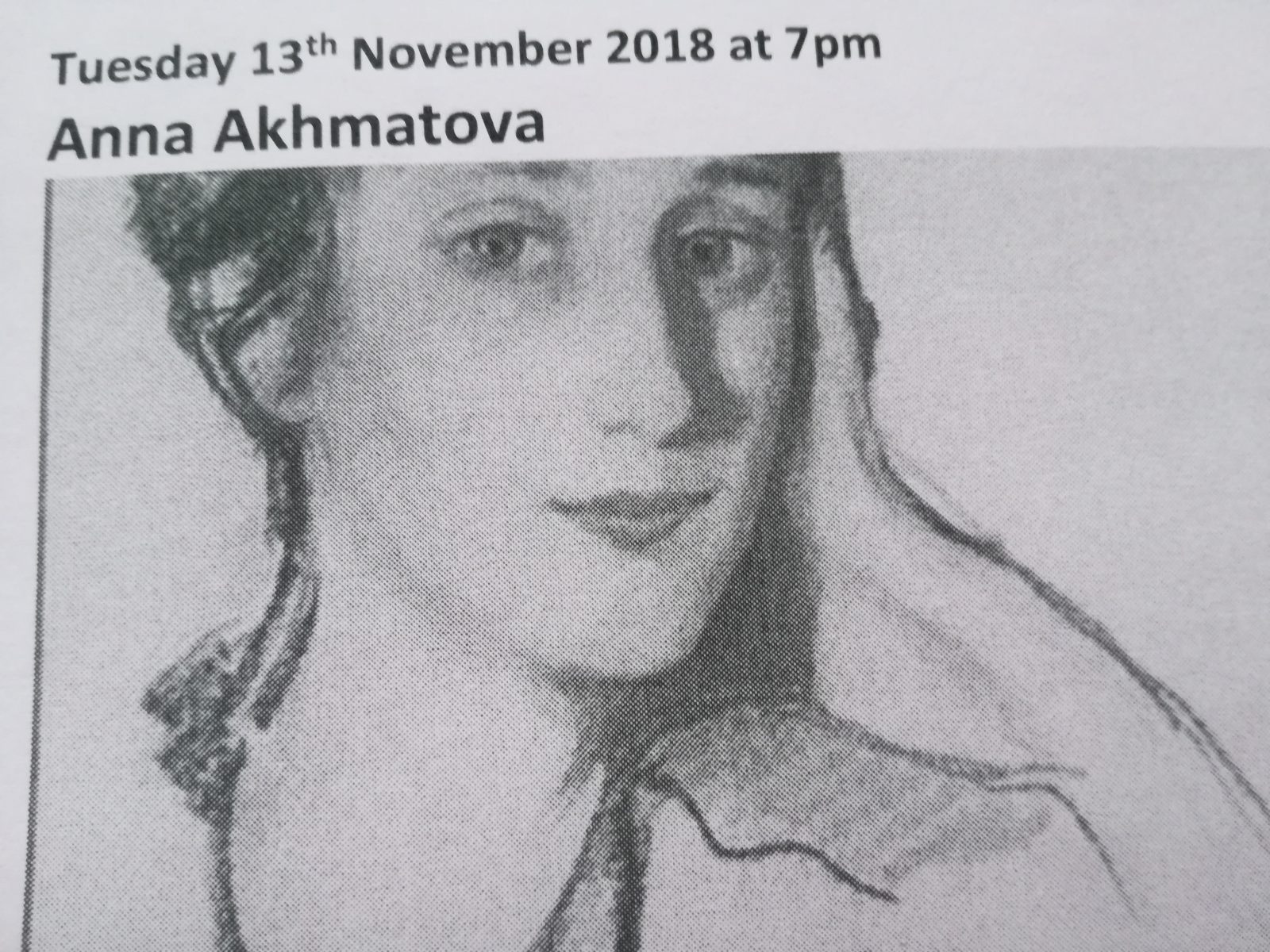
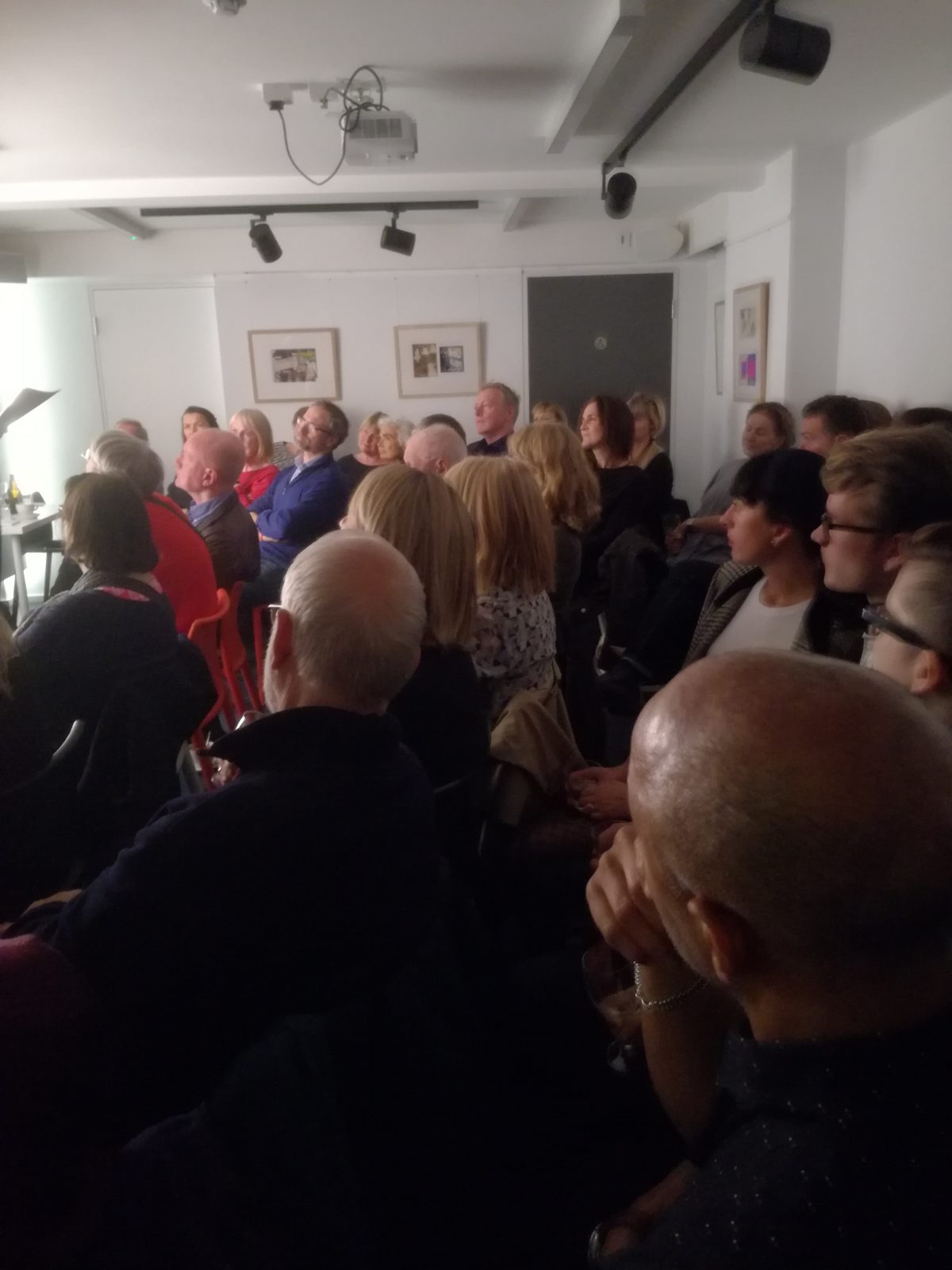
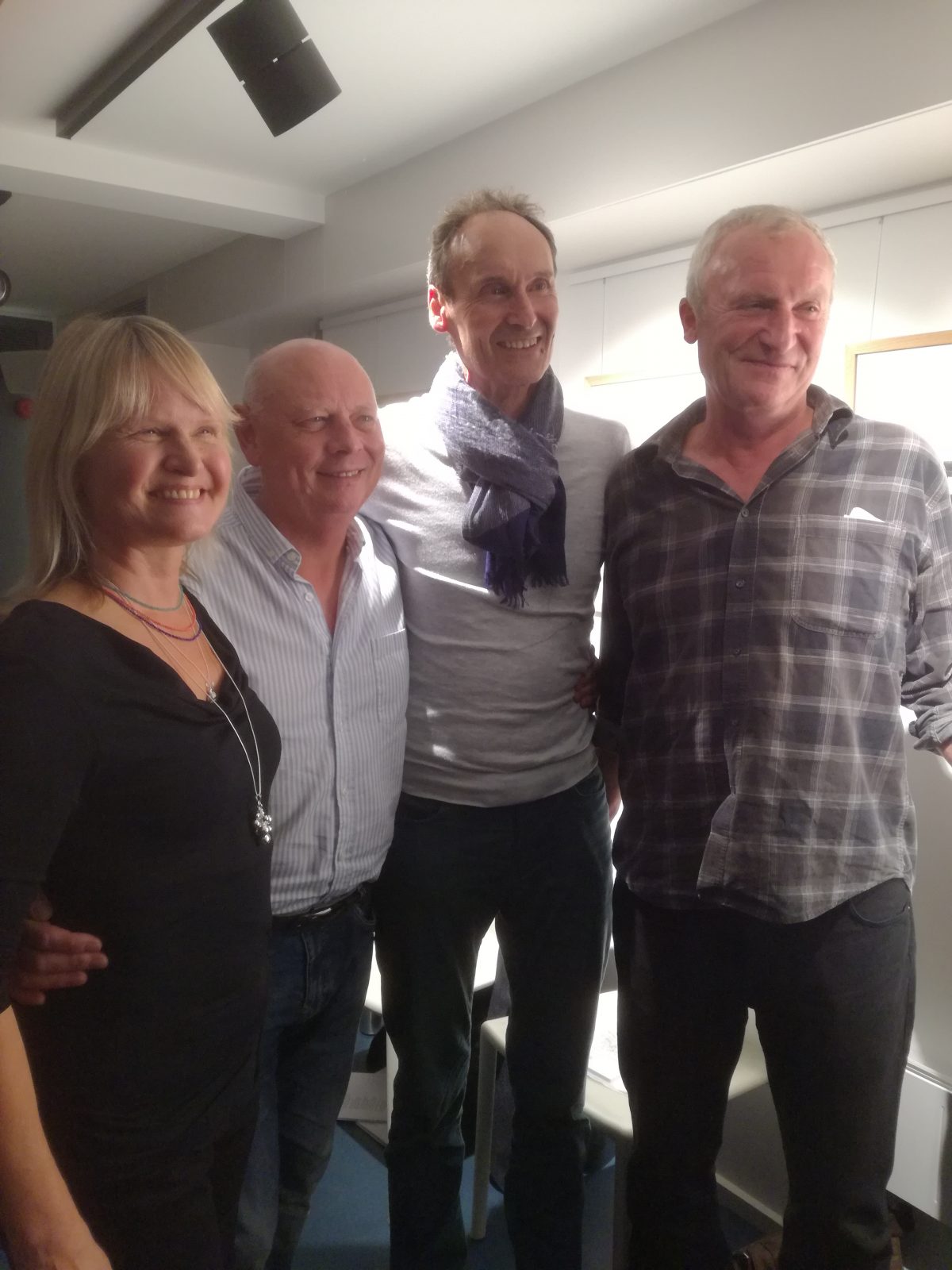
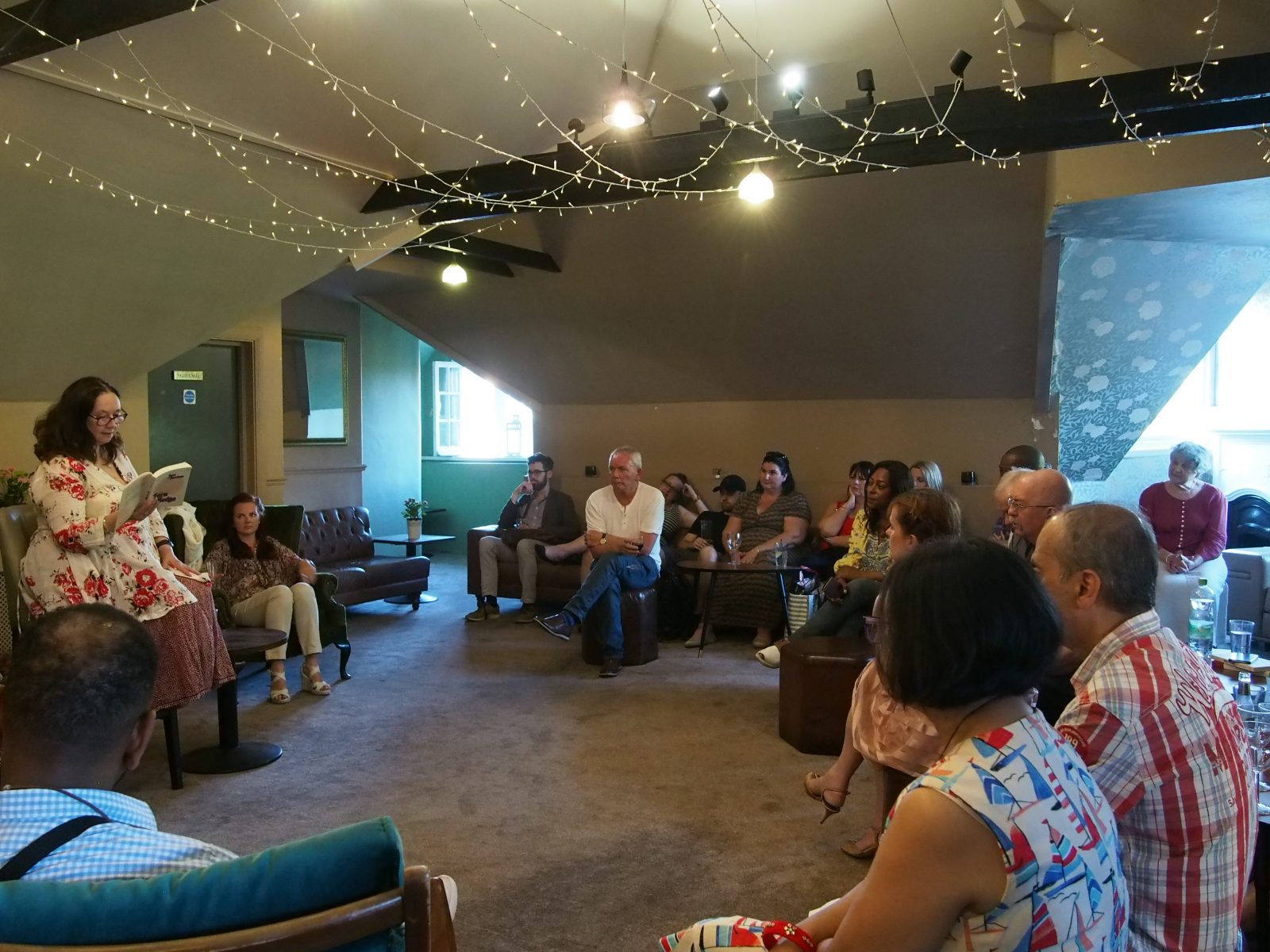
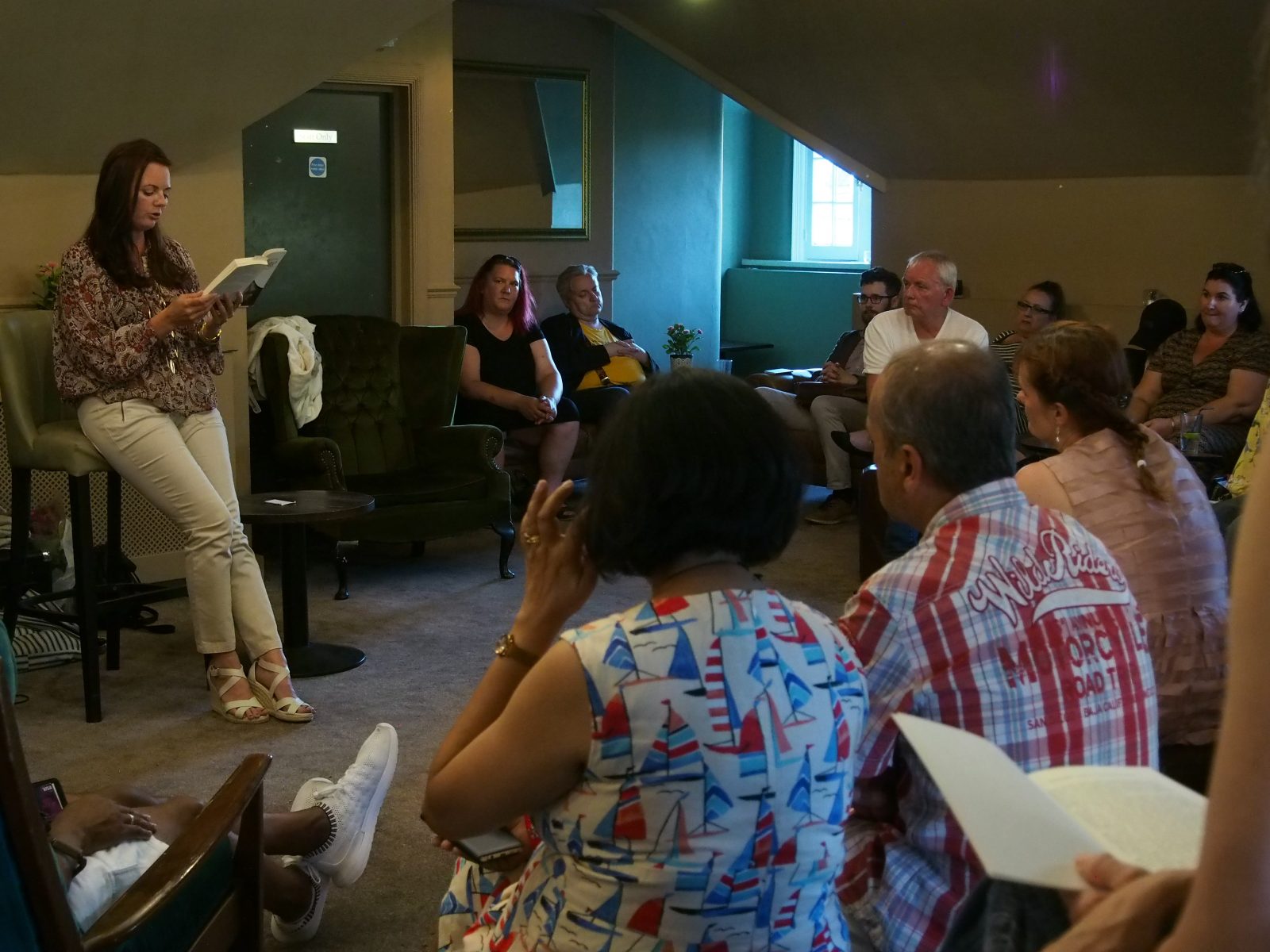
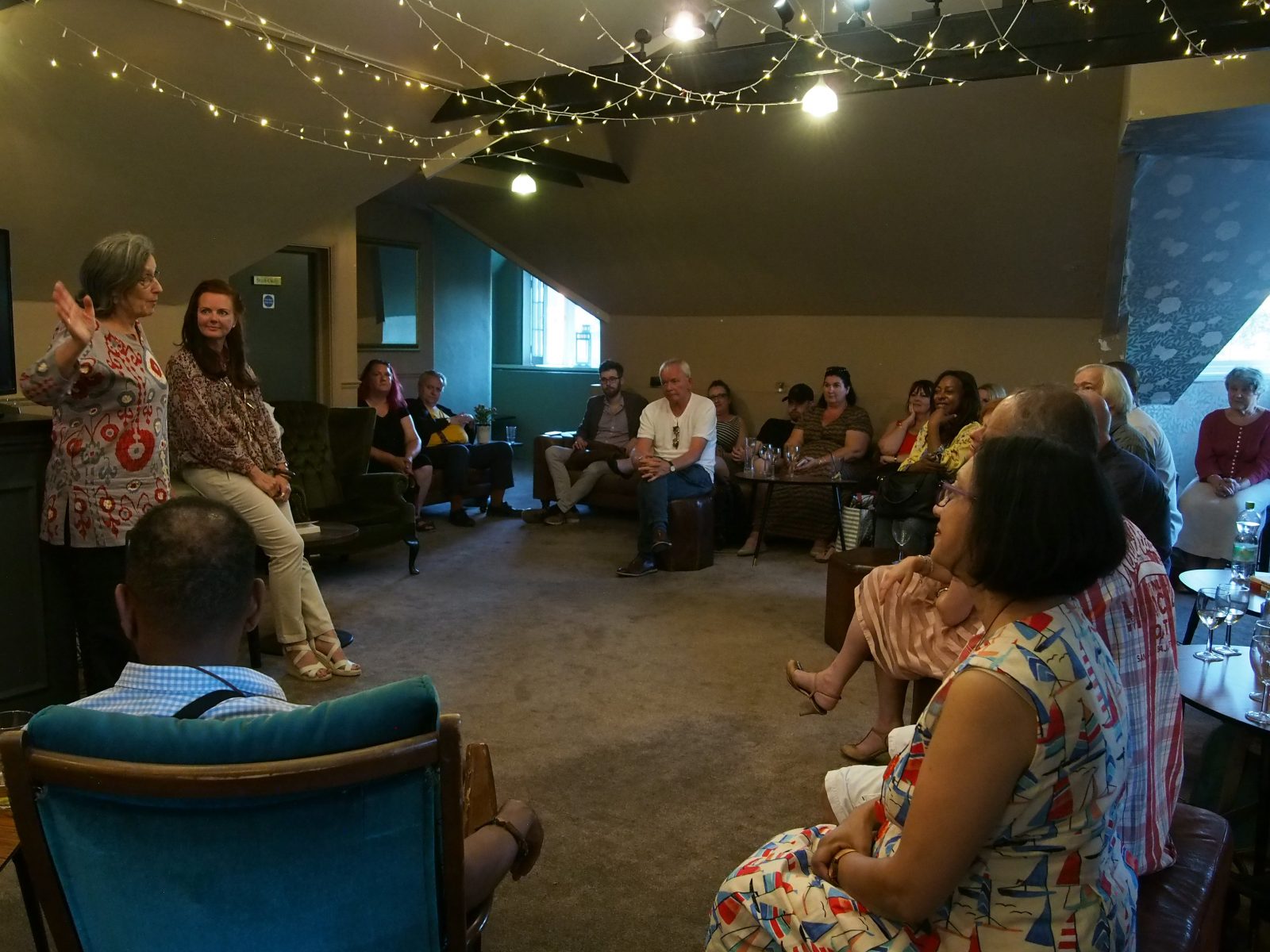
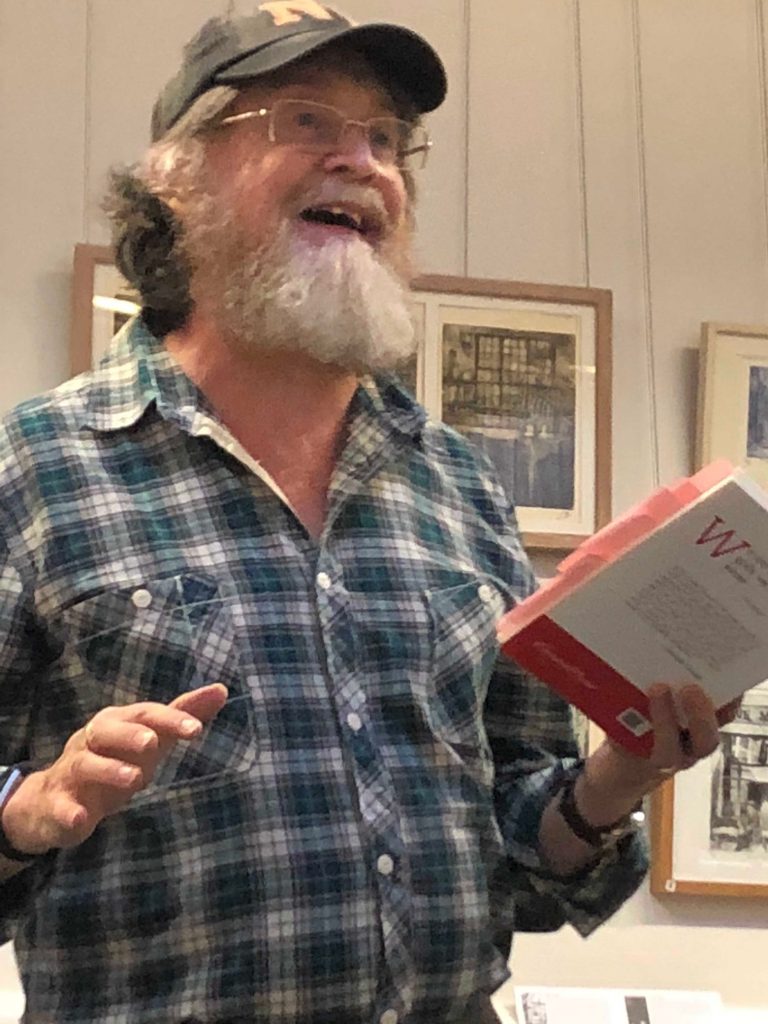
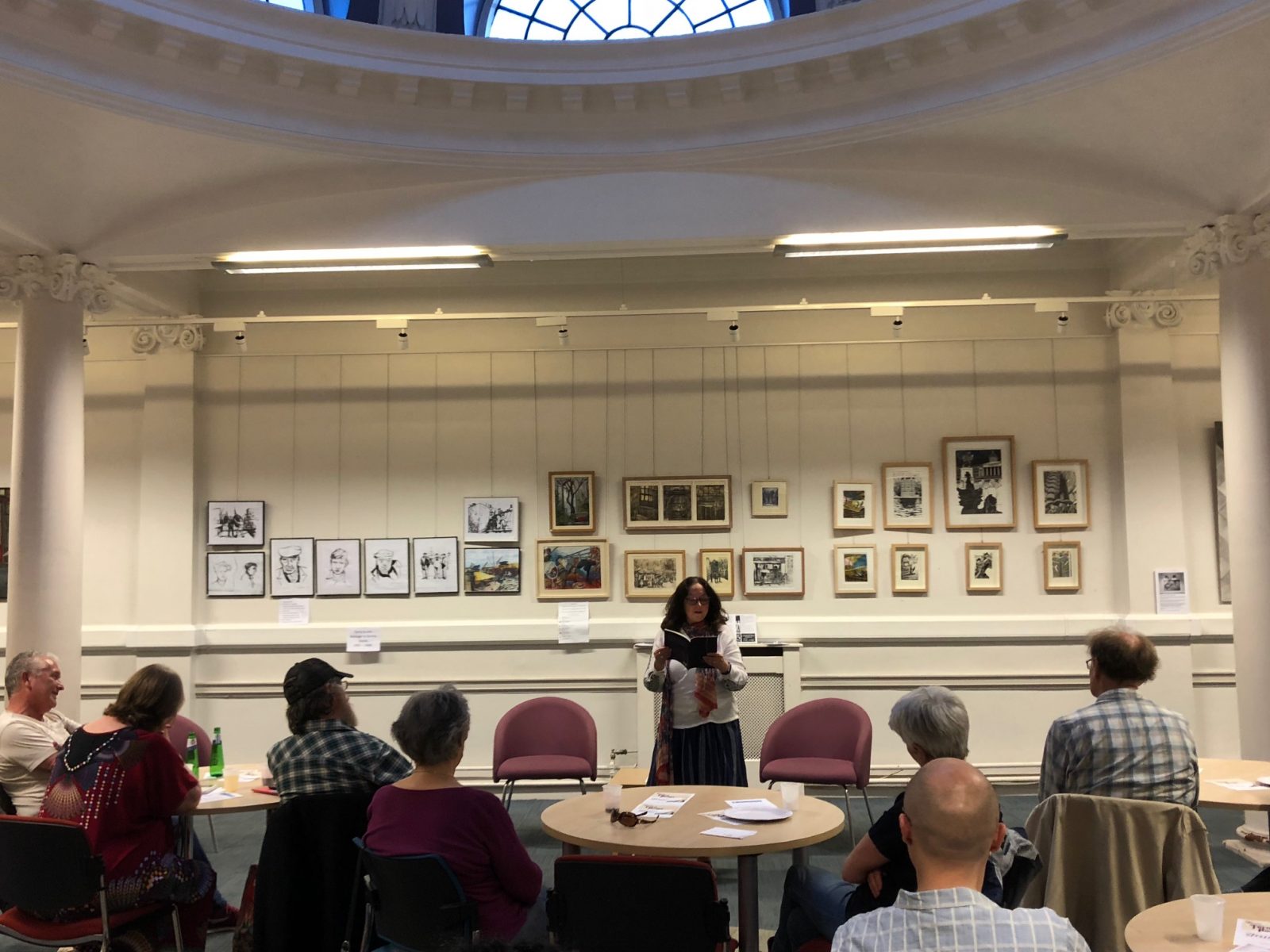
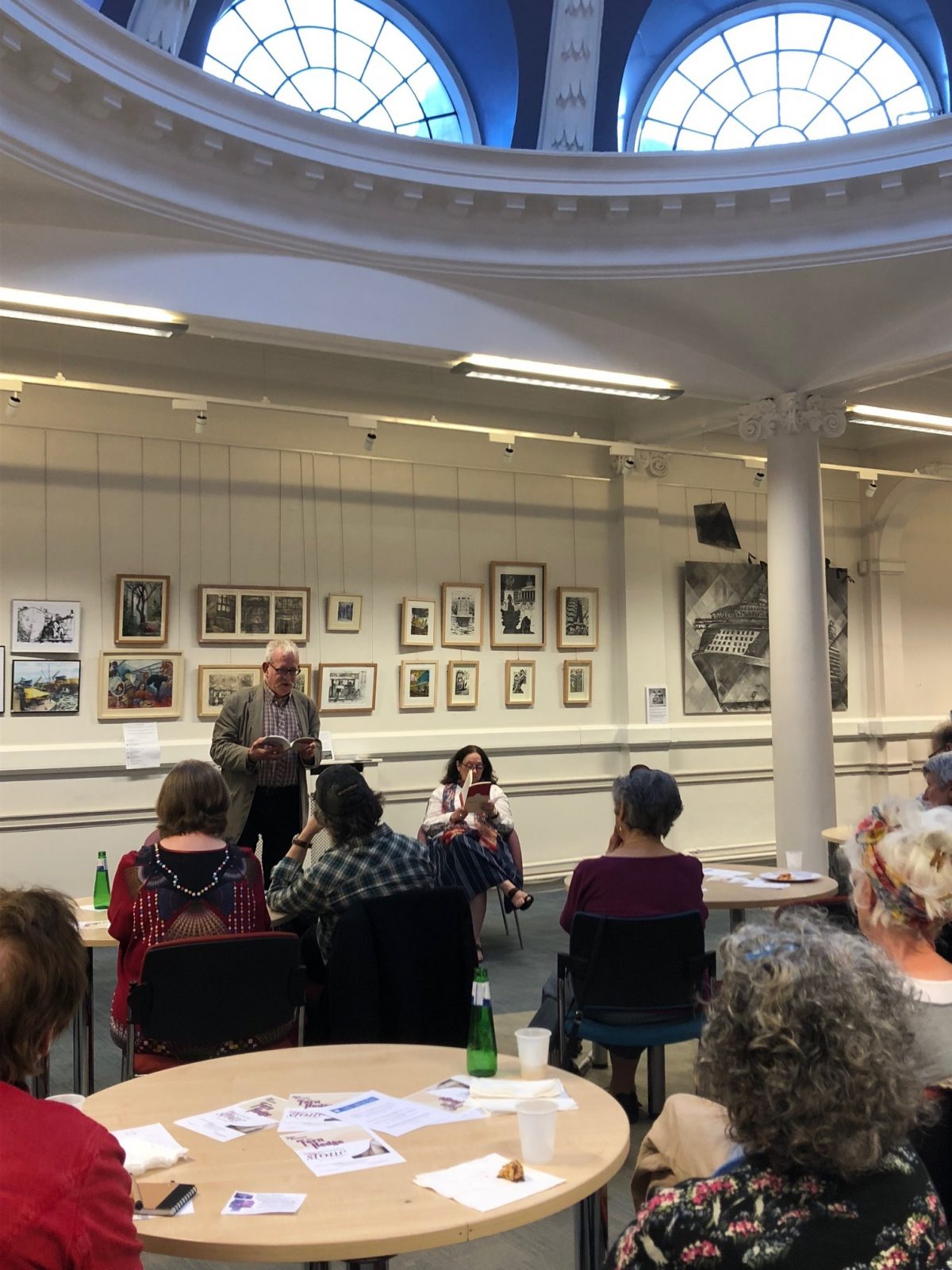
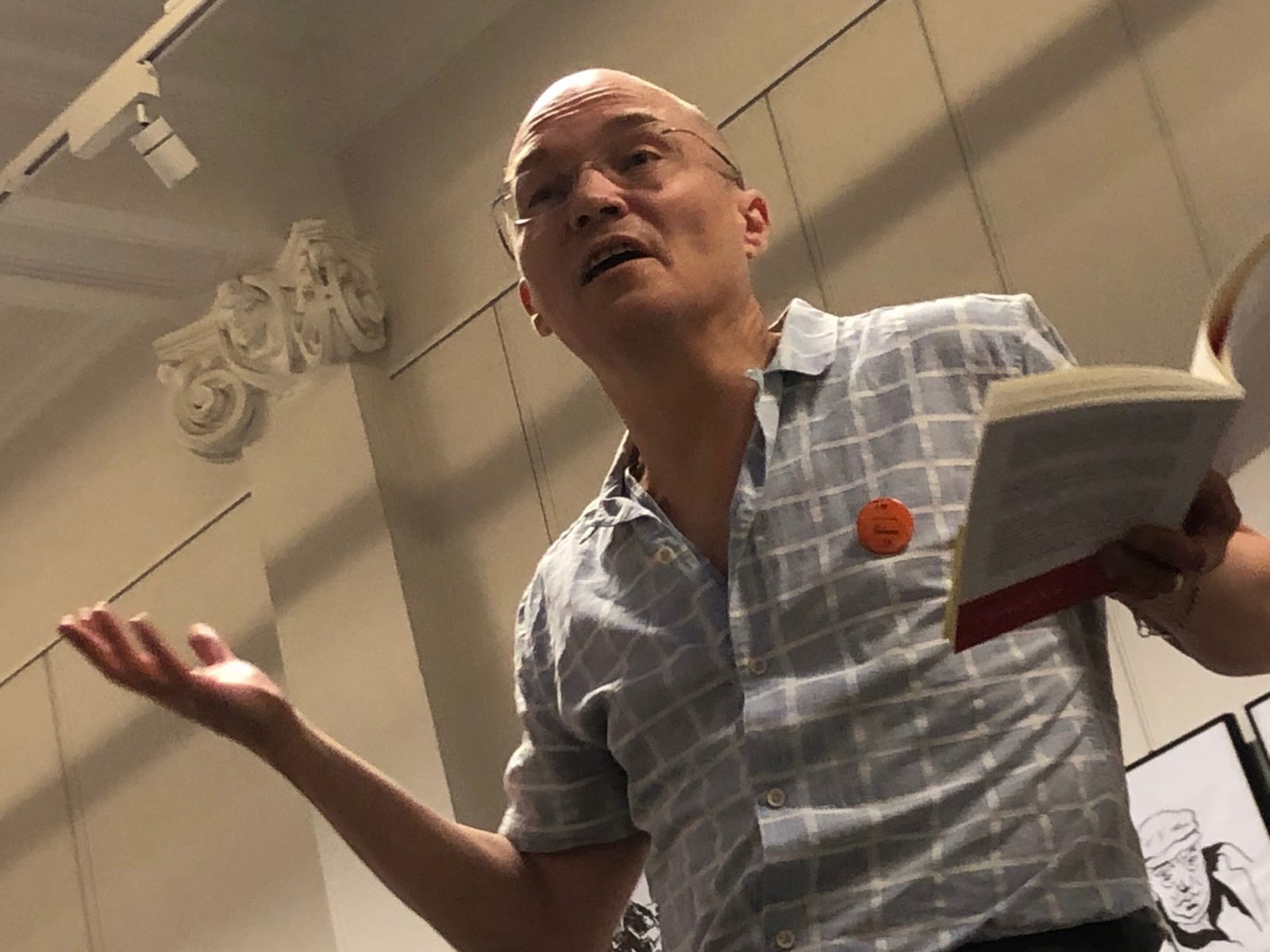
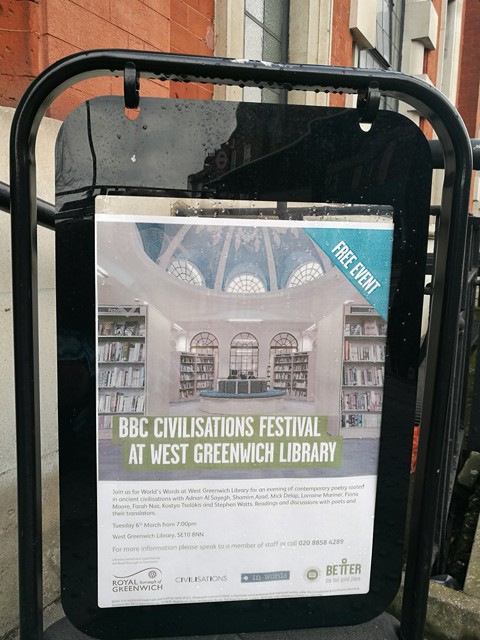
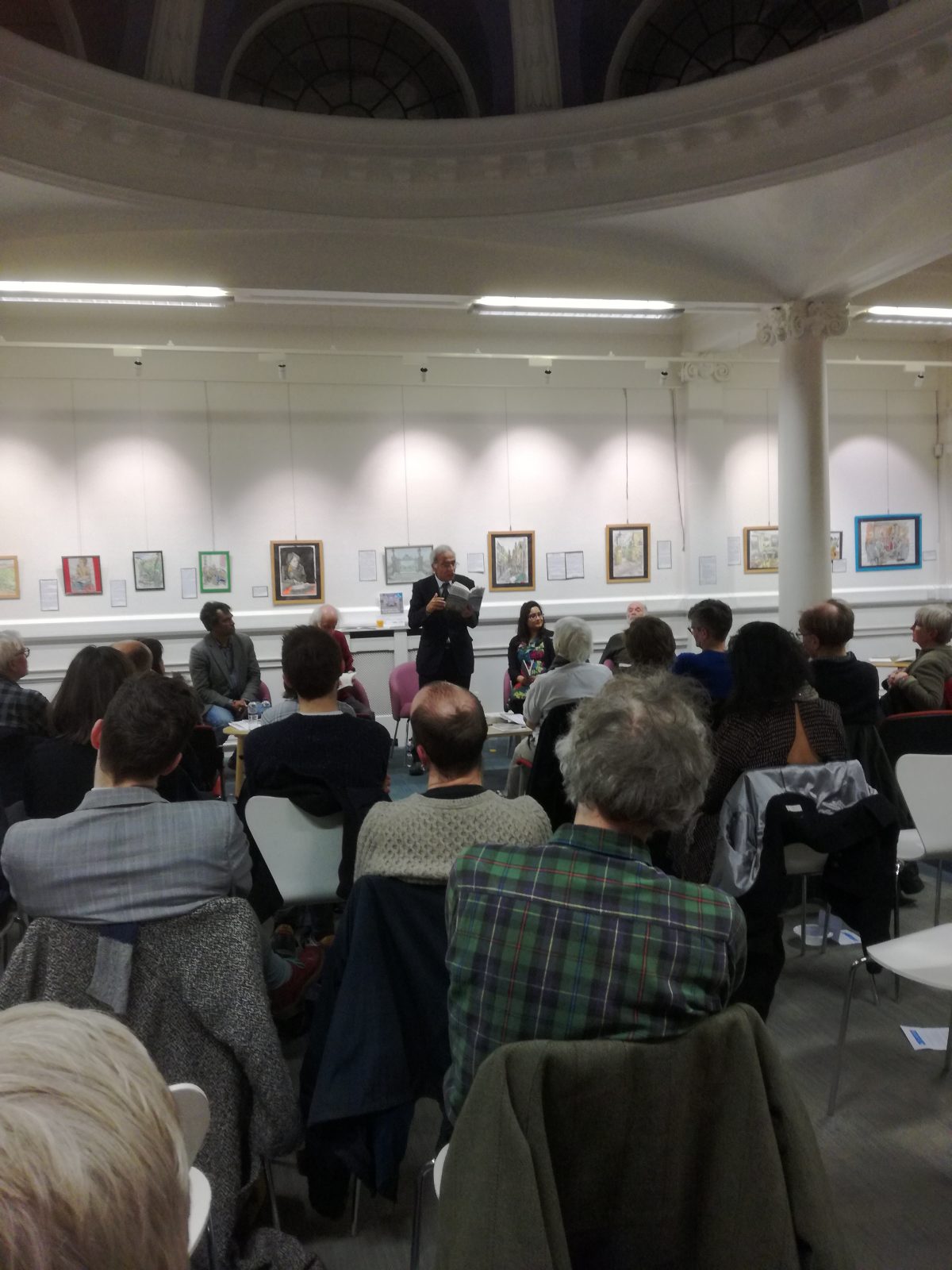
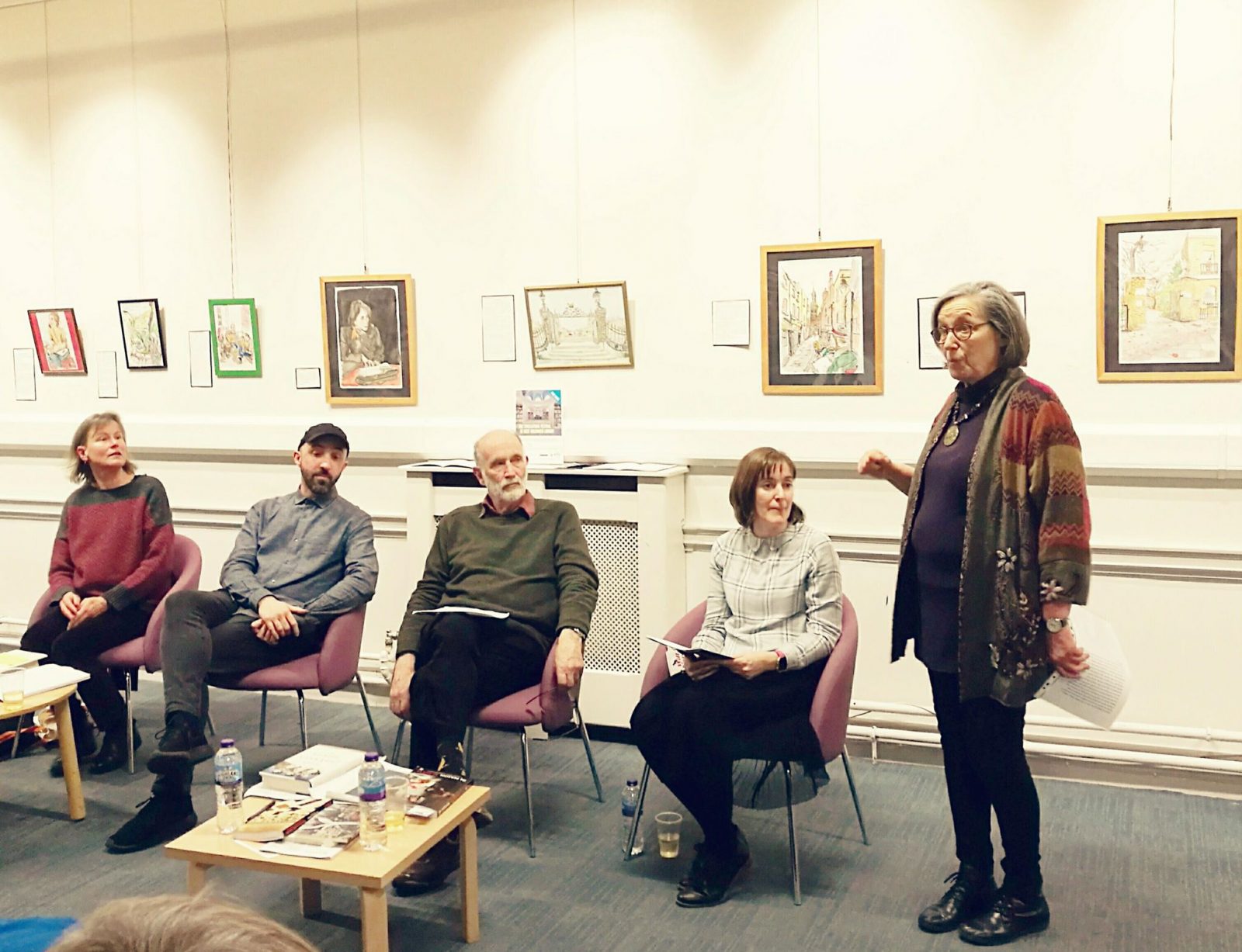
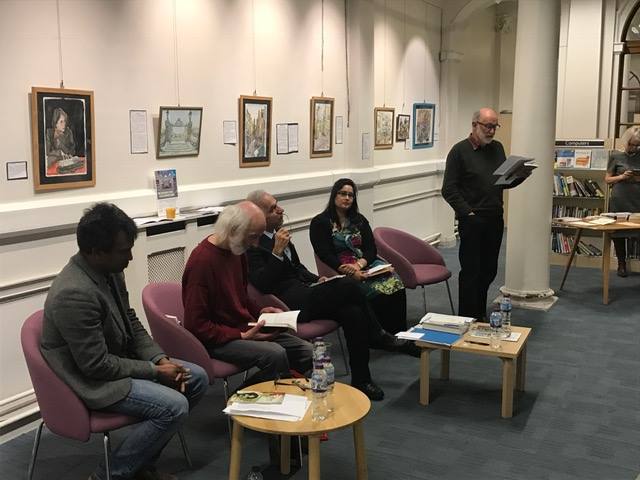
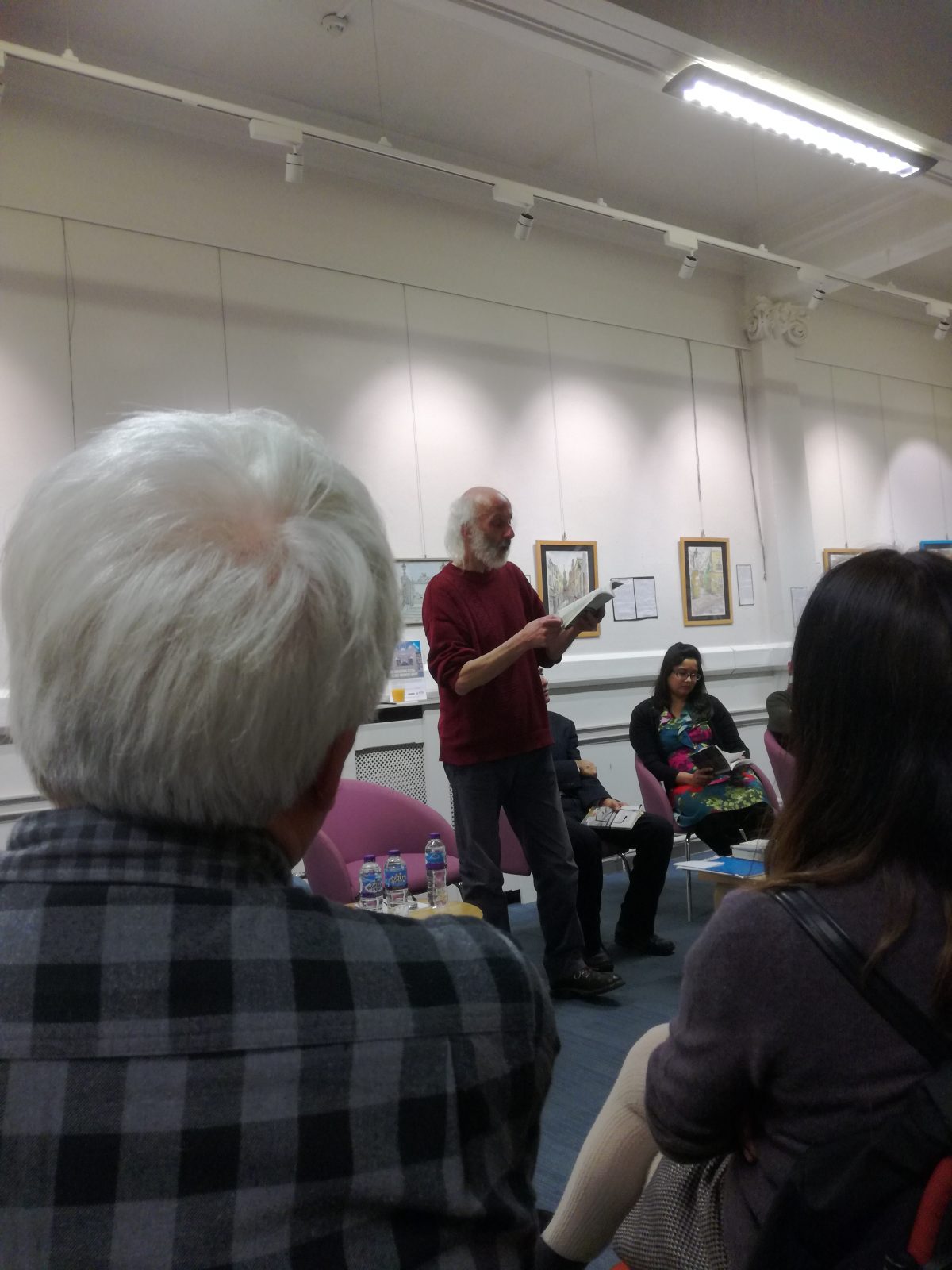
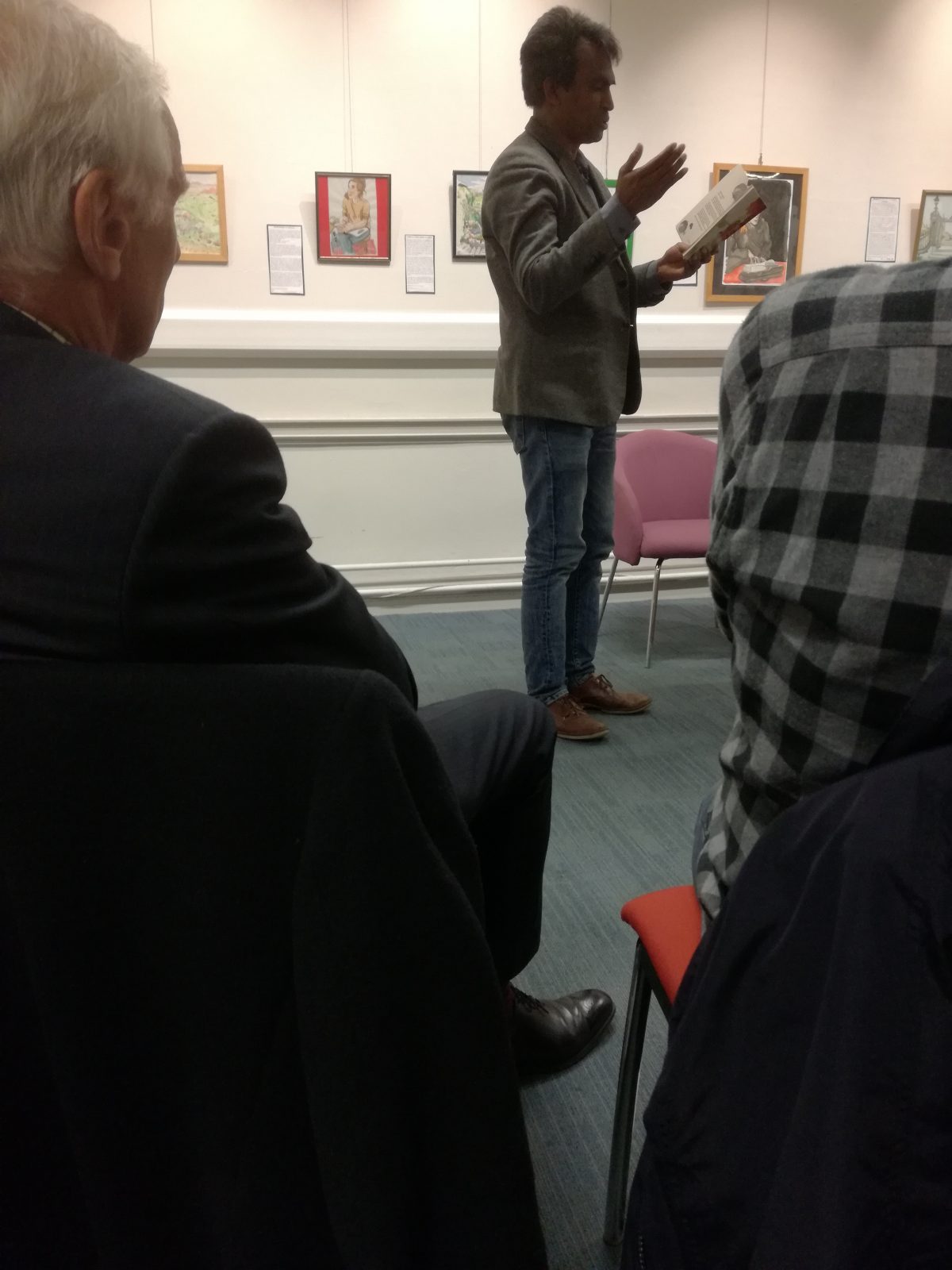
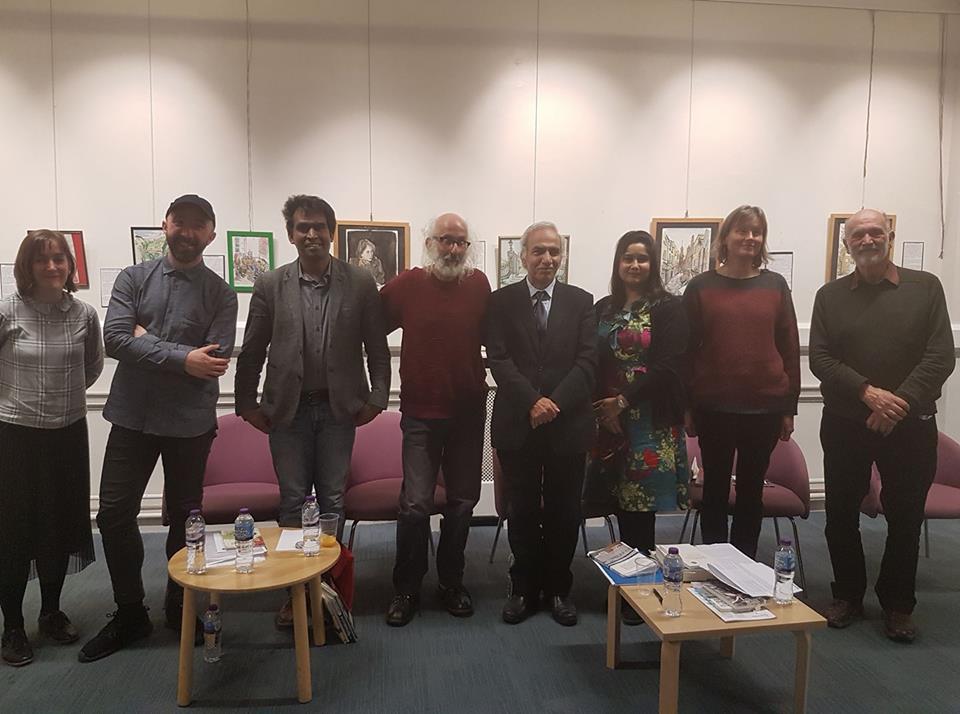
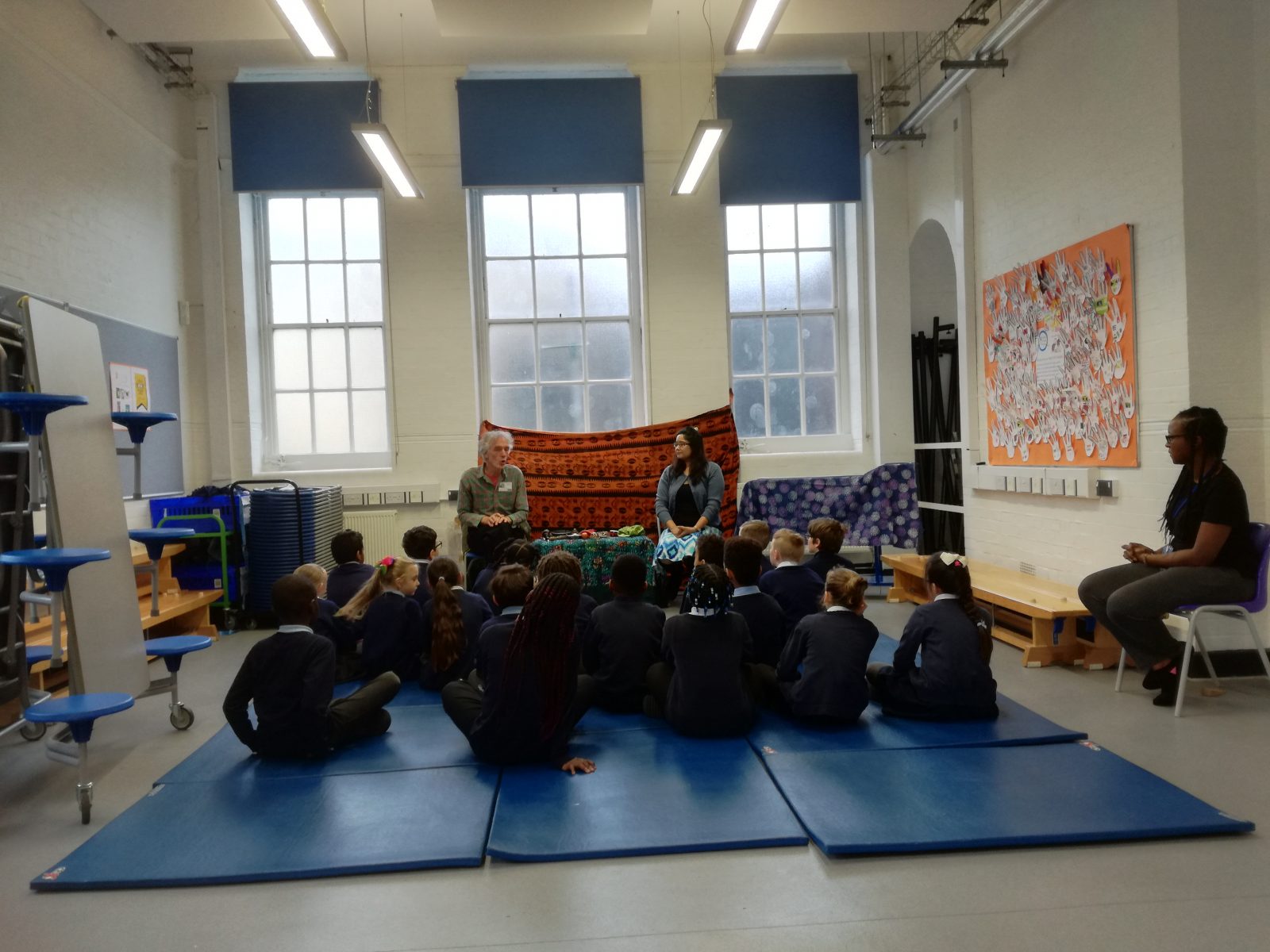
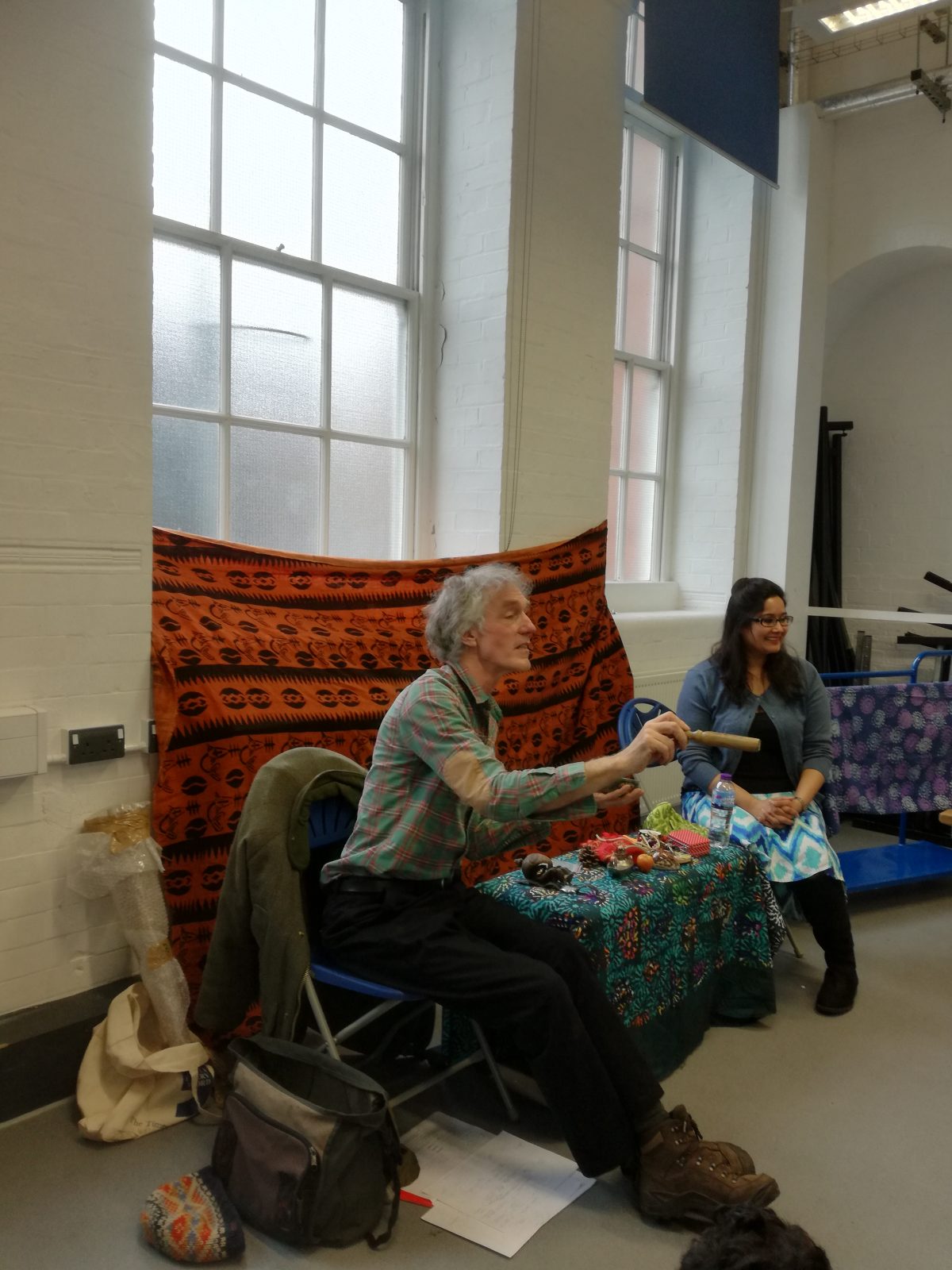
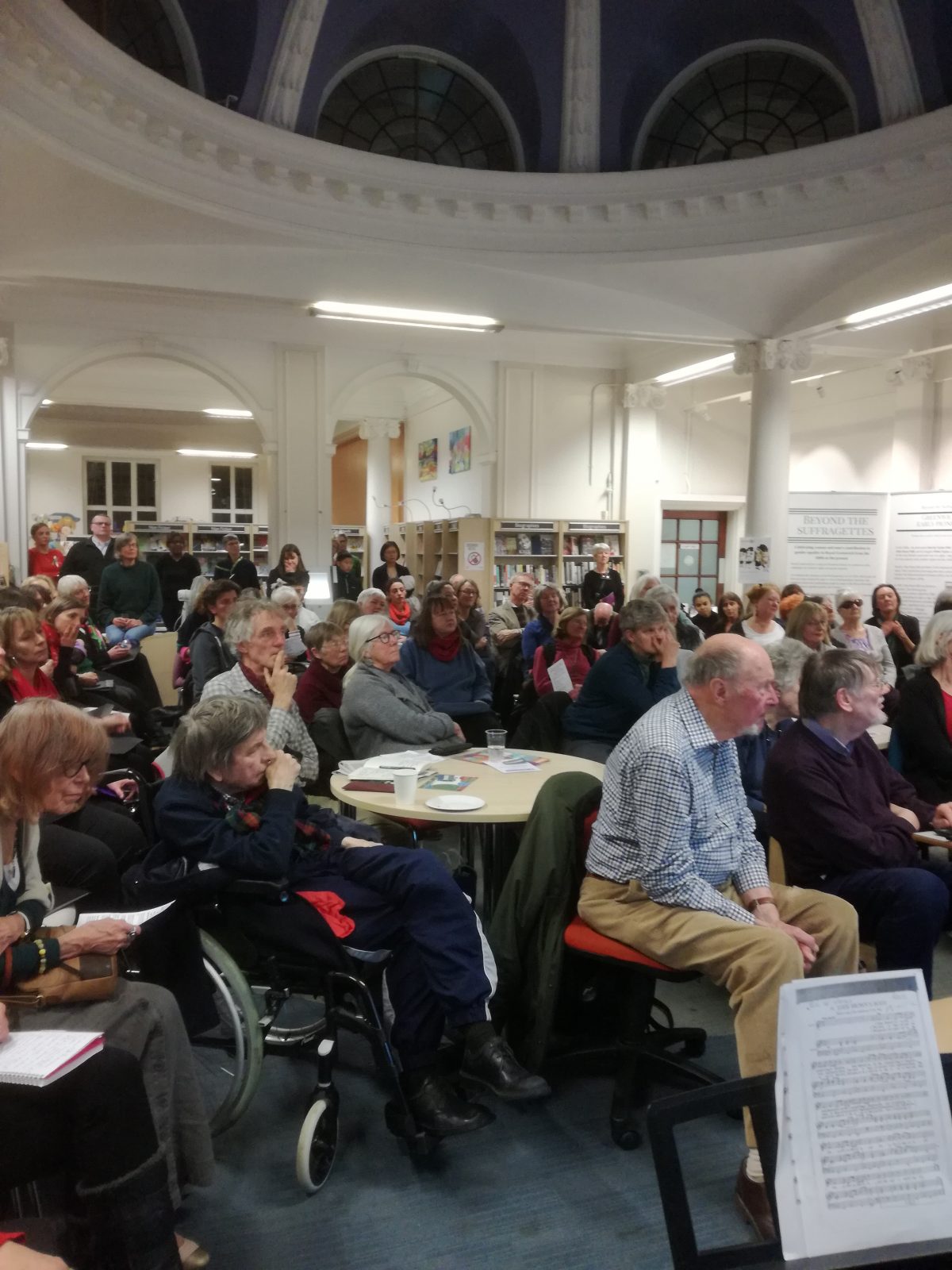
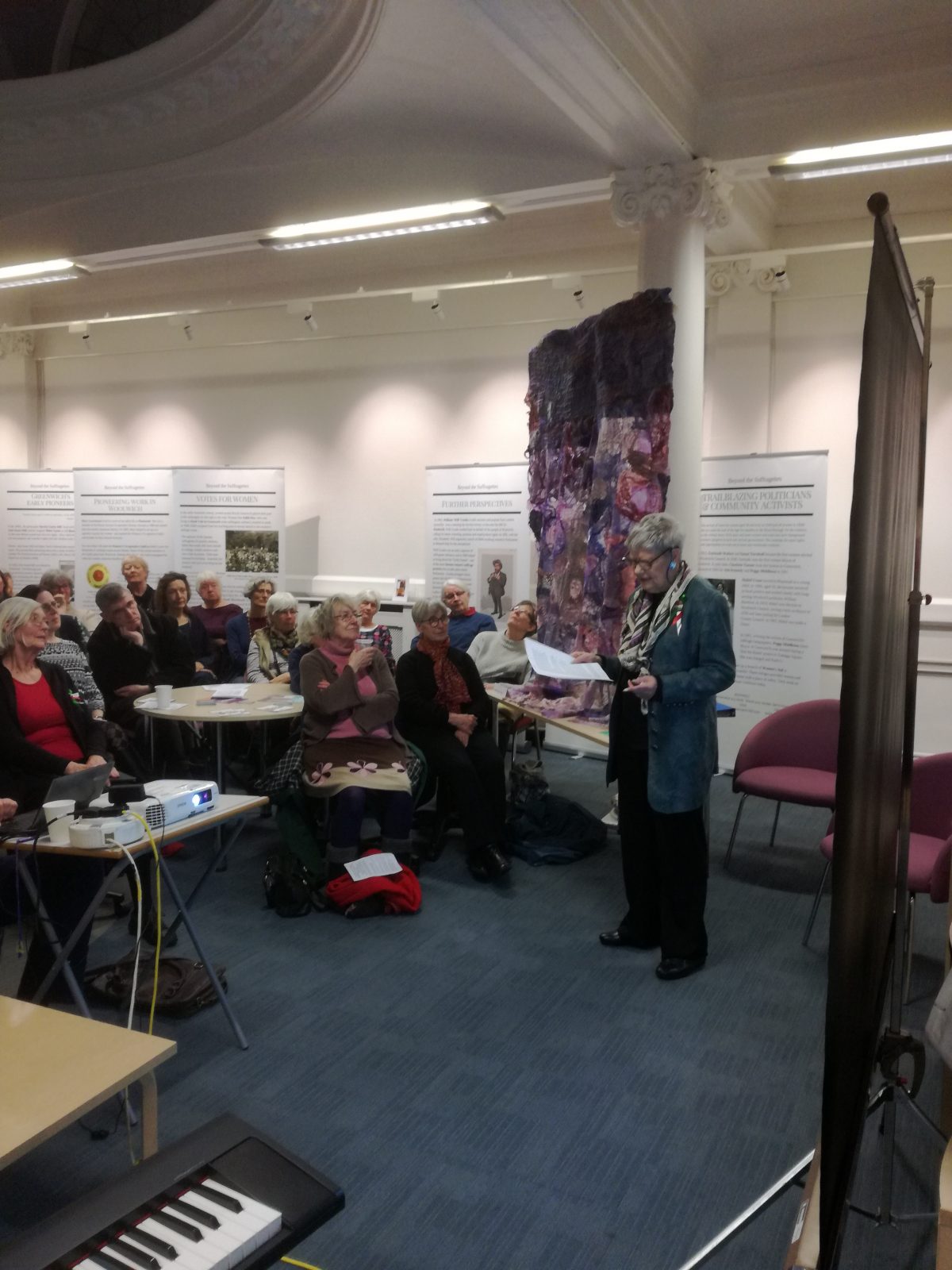
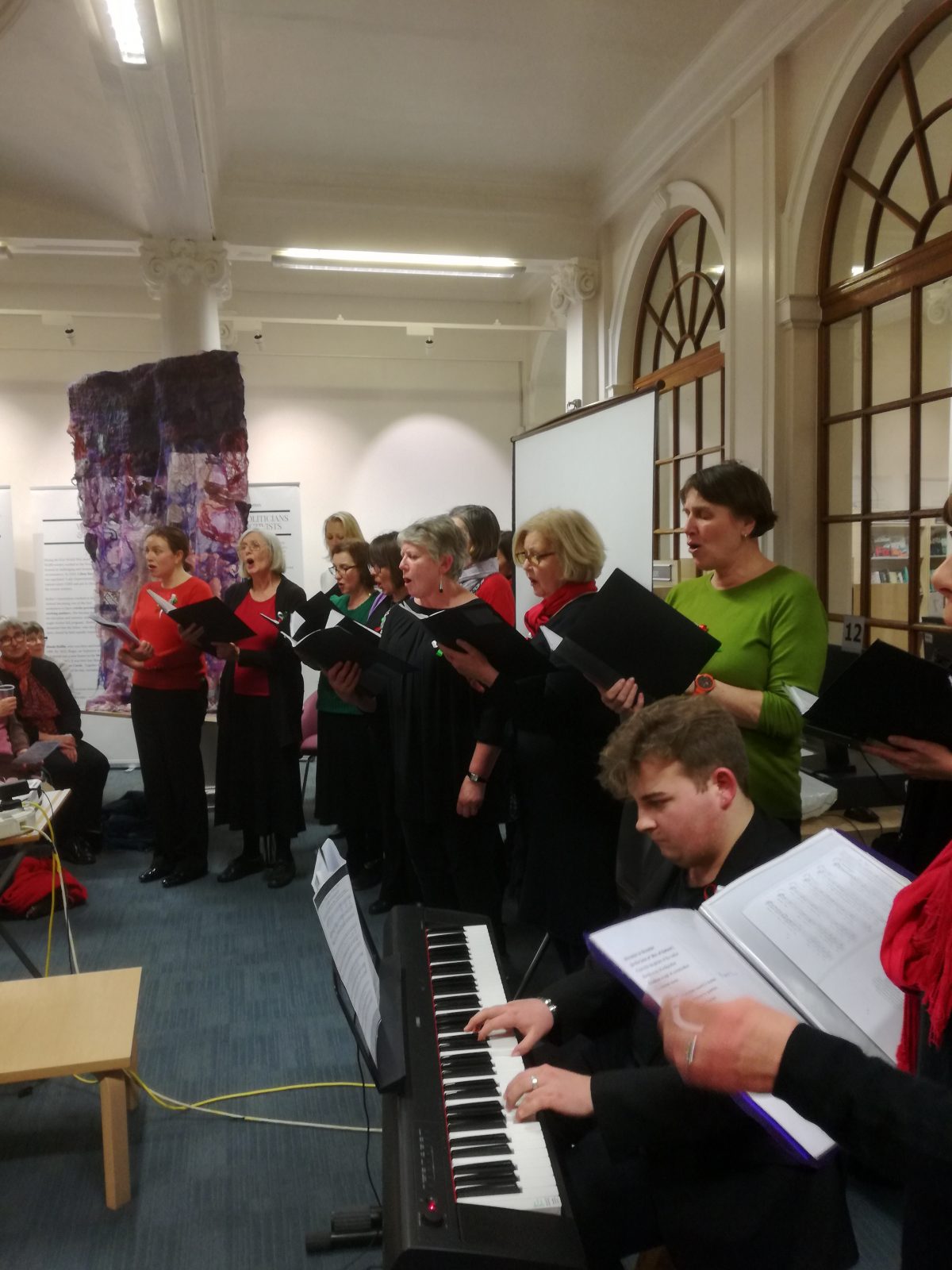
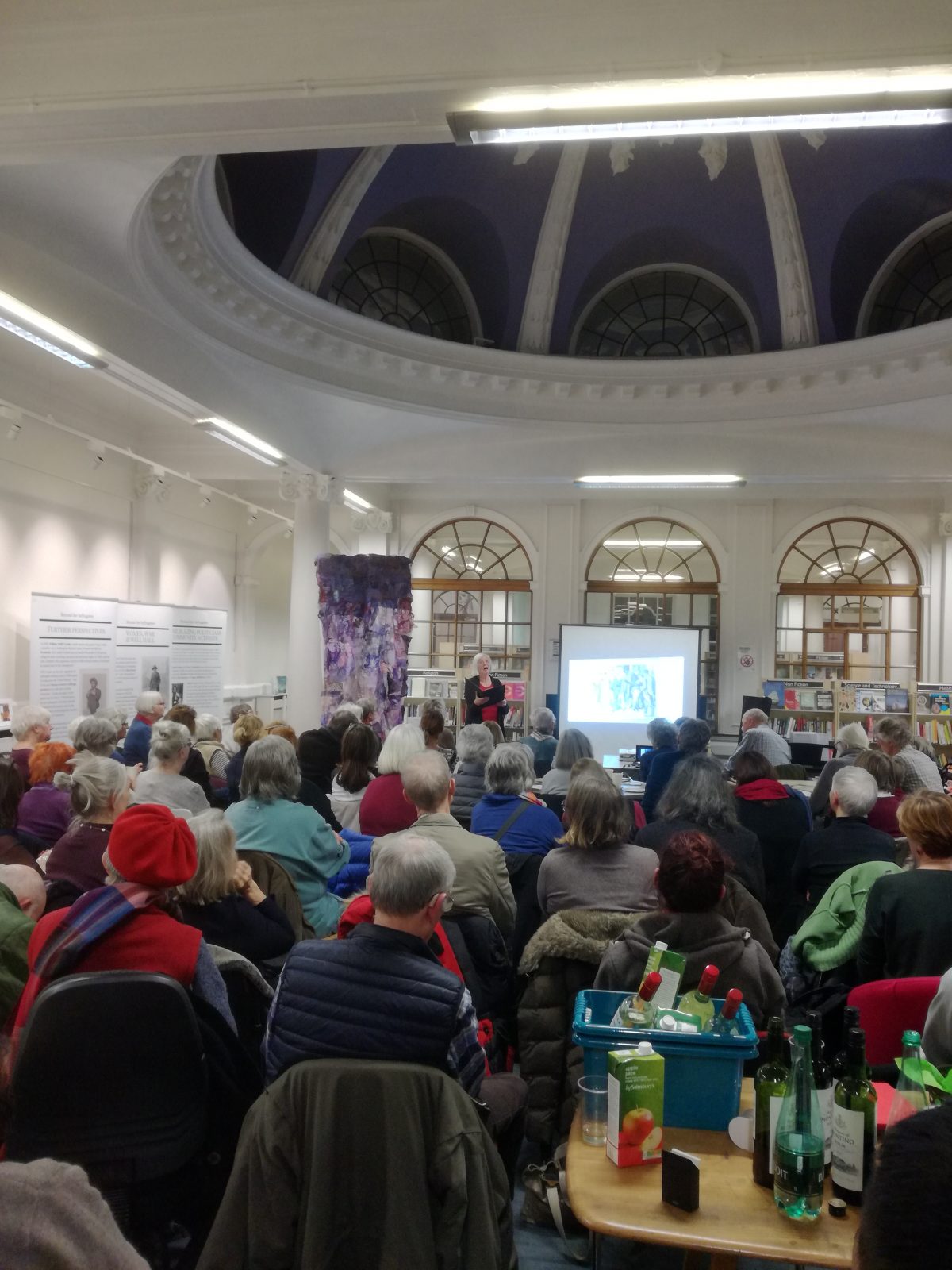
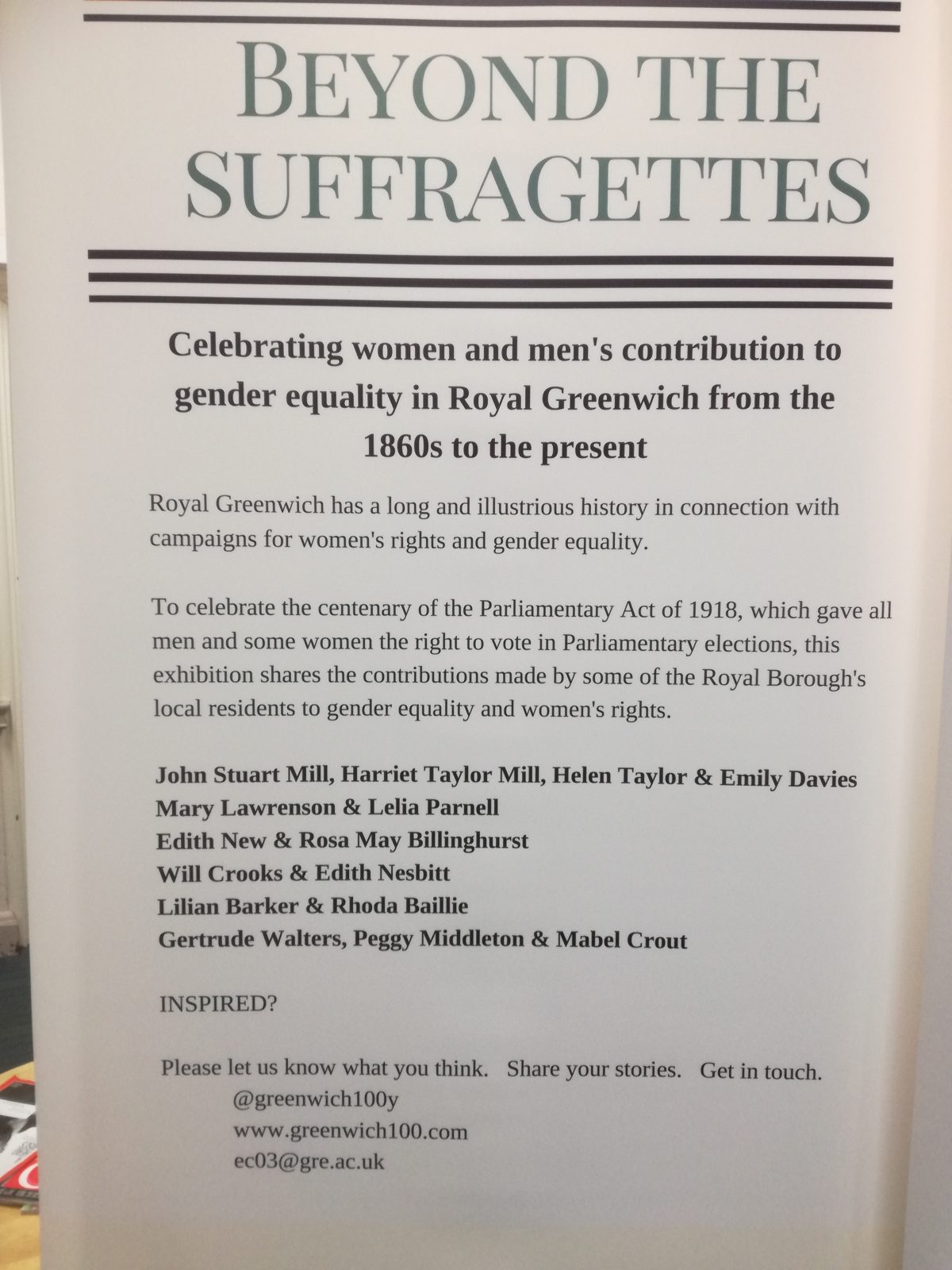
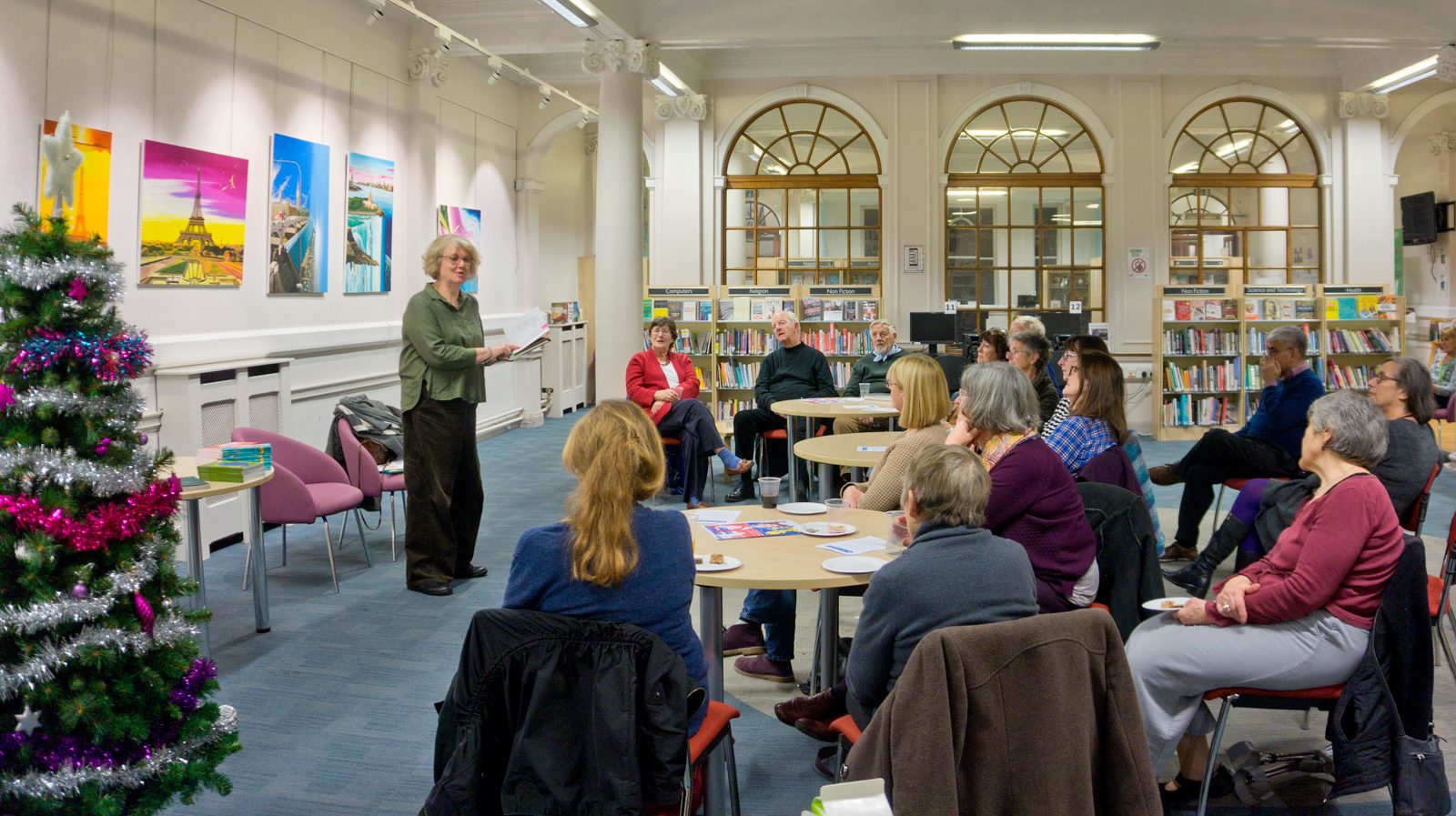
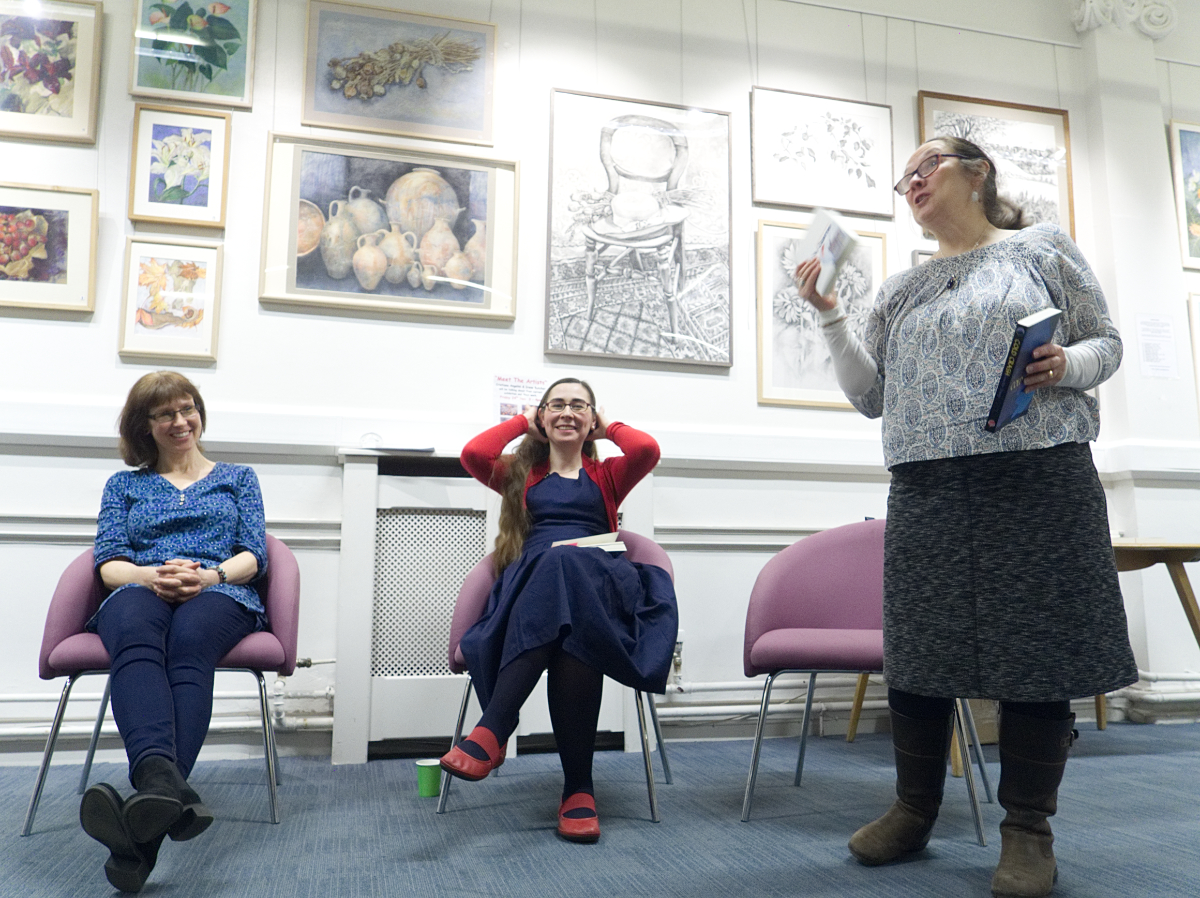
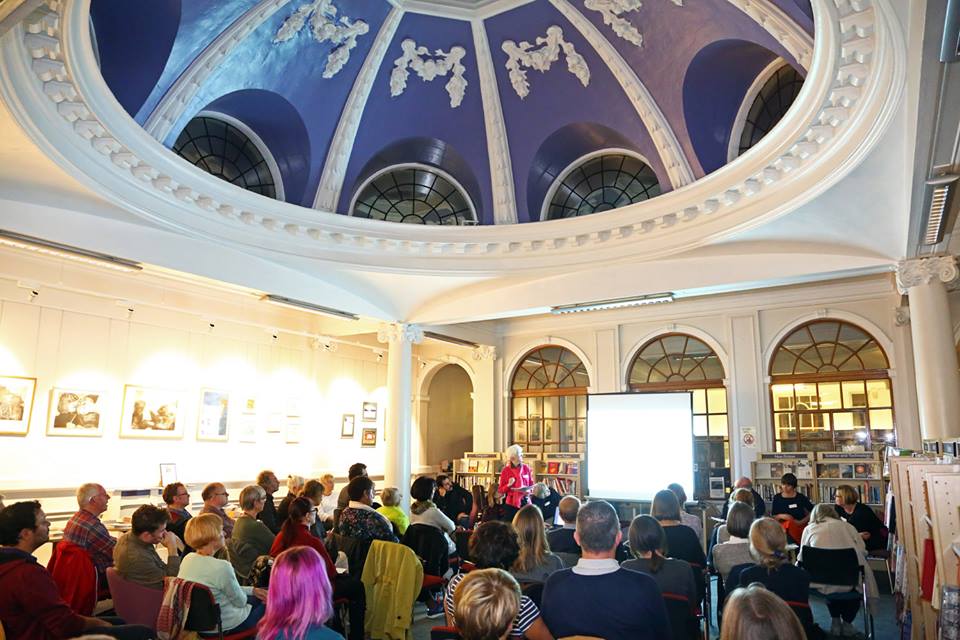
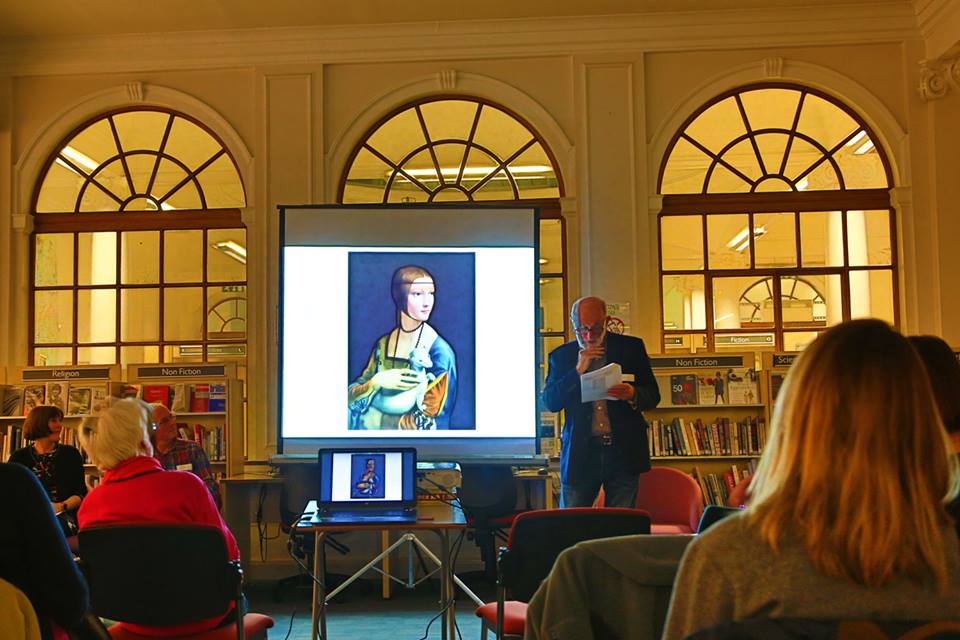
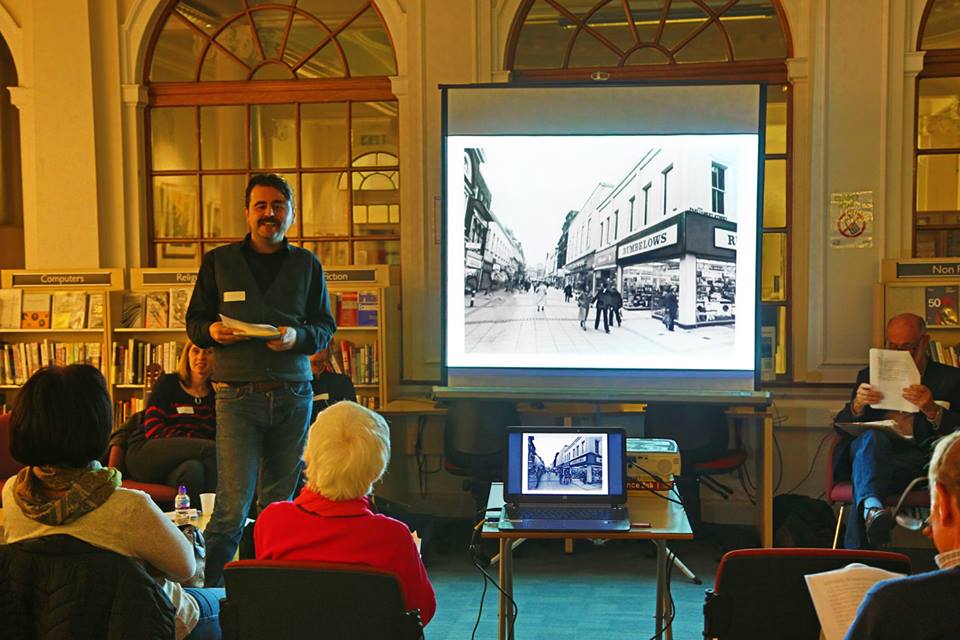
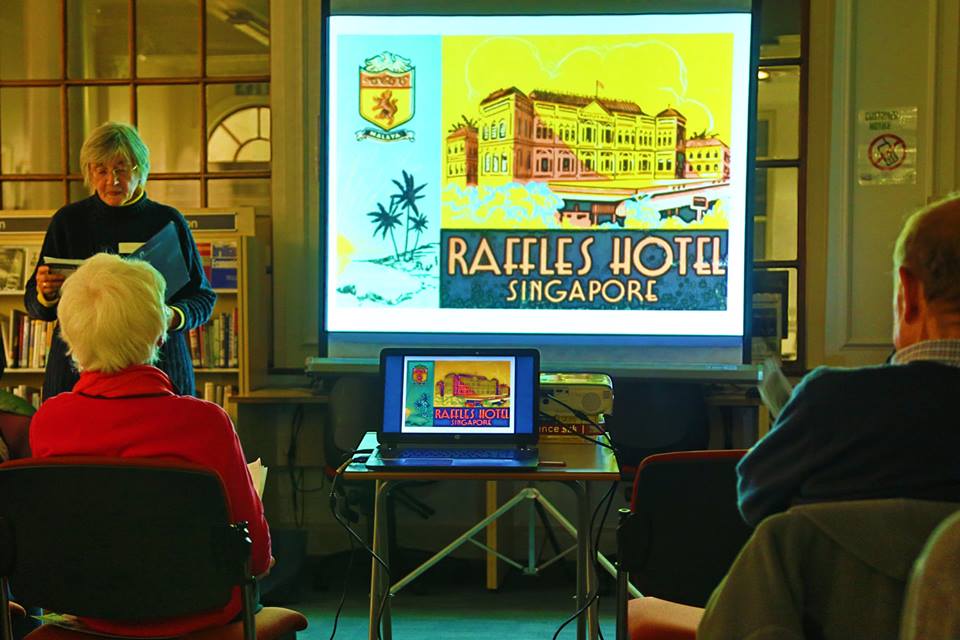
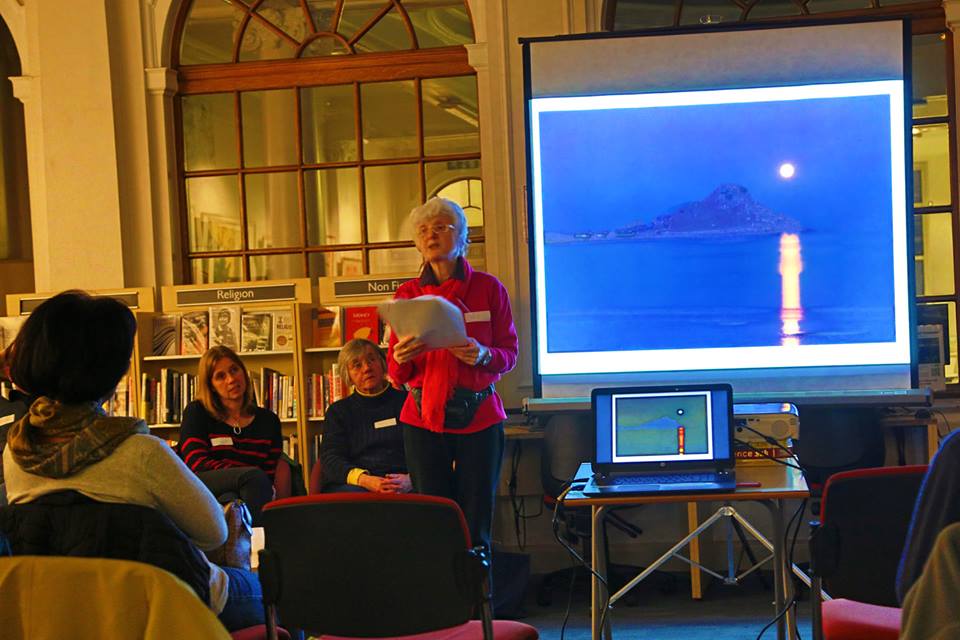
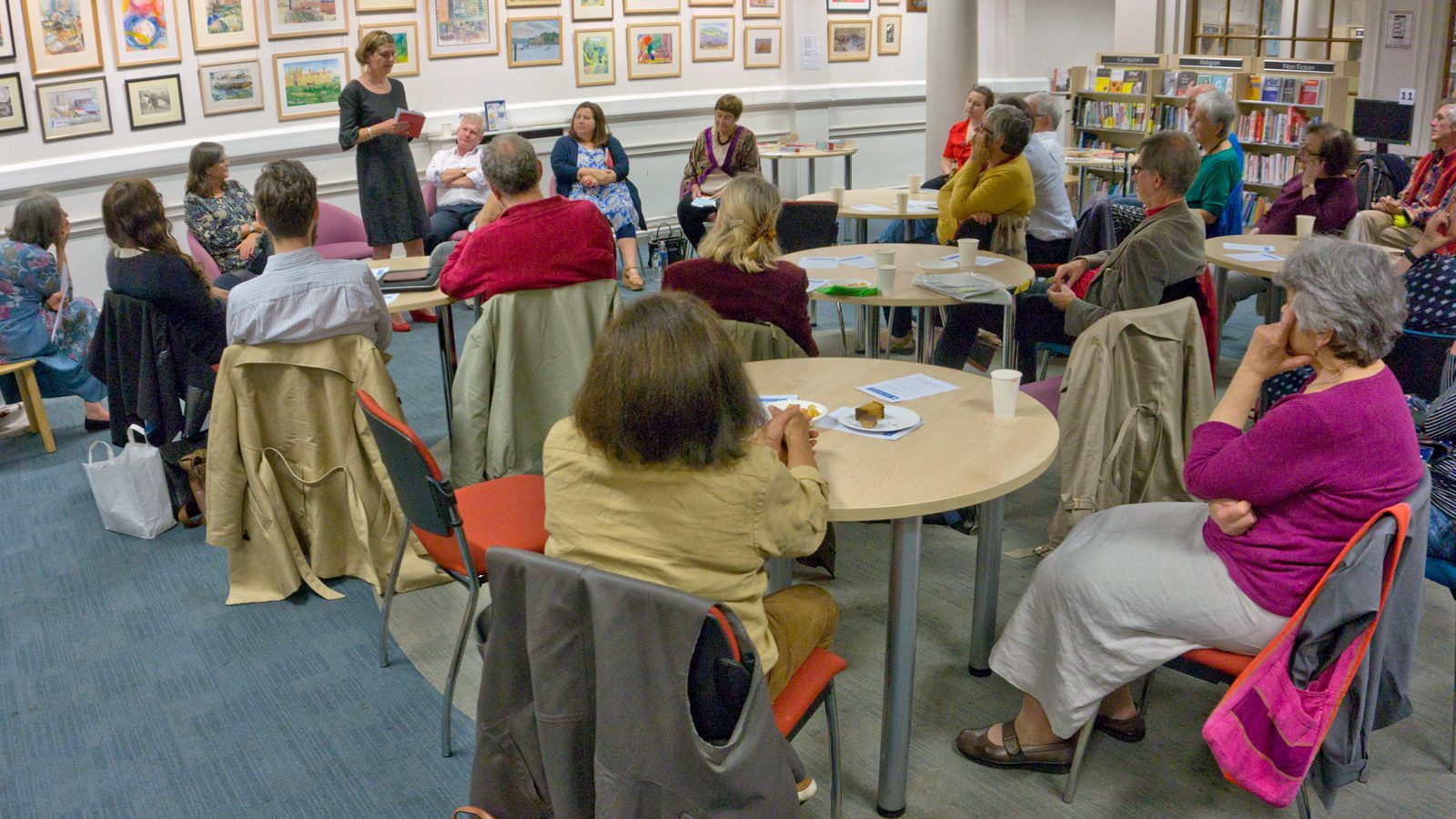
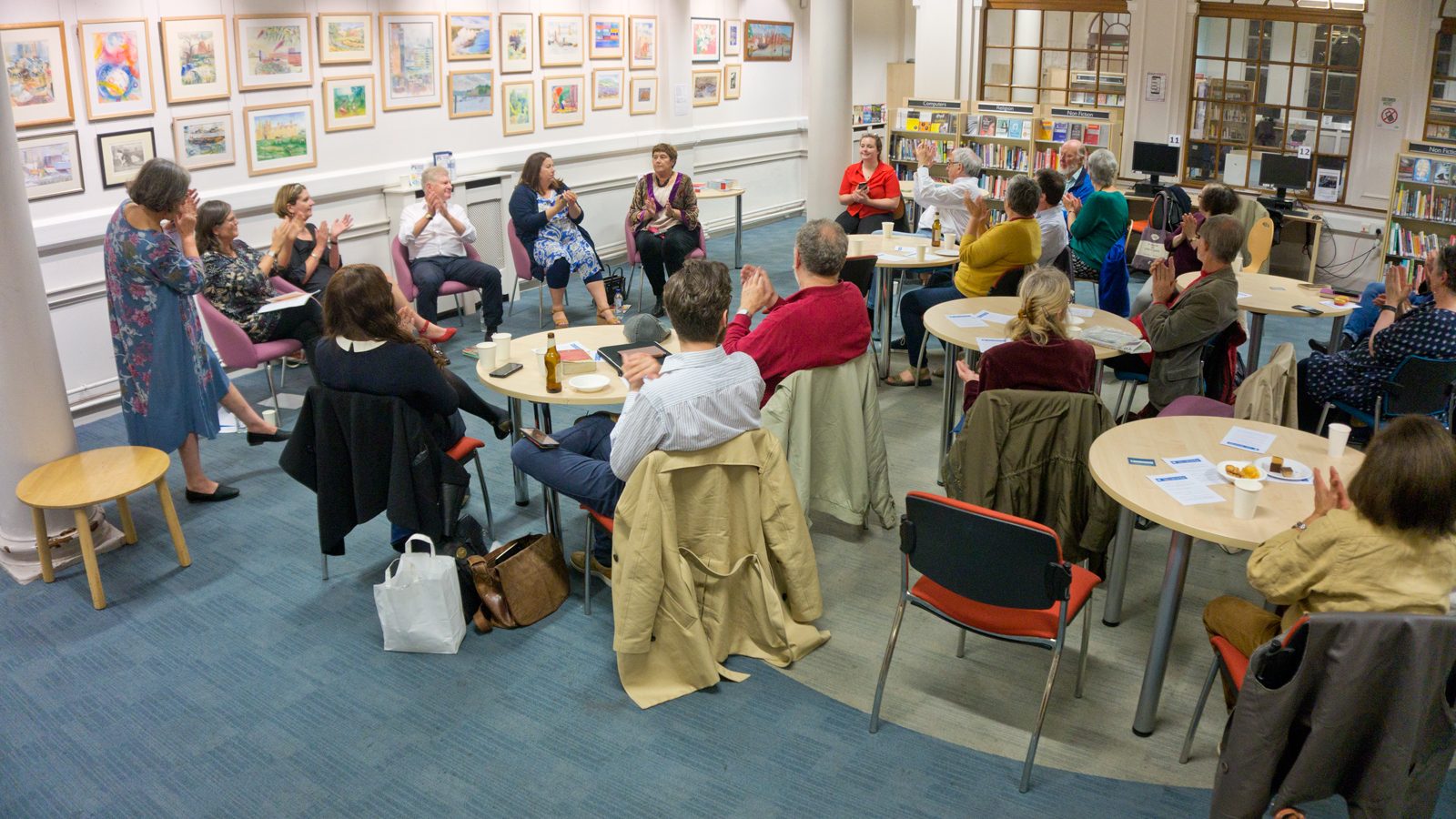
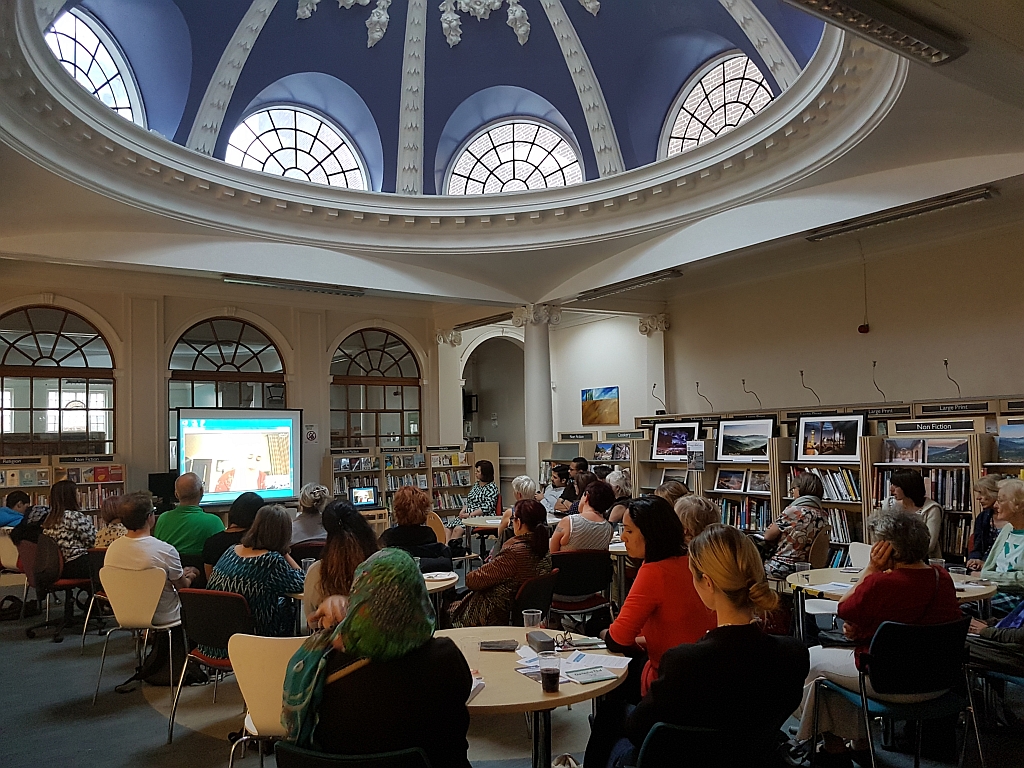
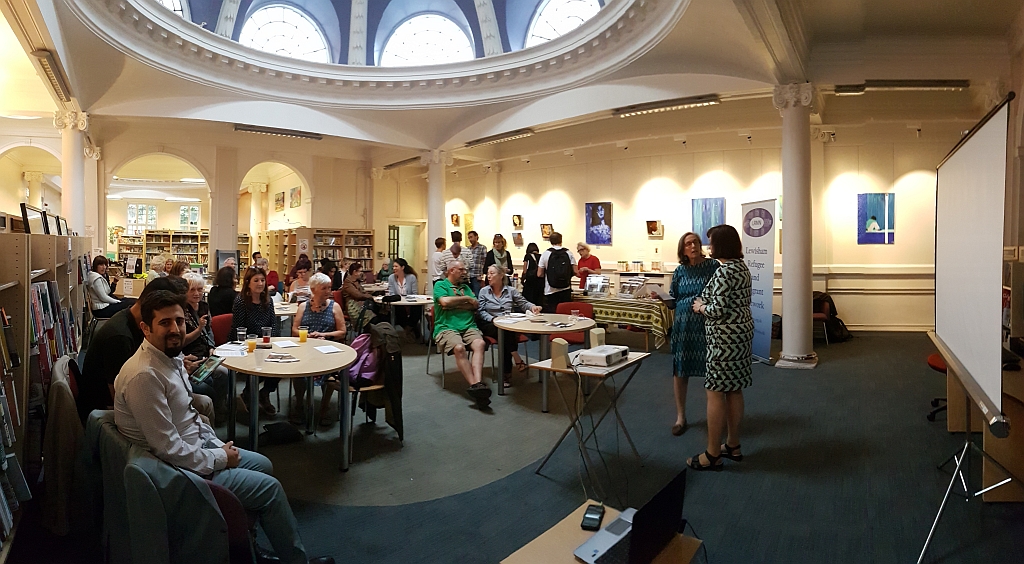 Last night was a first for in-words, the audience and the wonderful West Greenwich Library and its staff: on a clear skype connection, author Rana Abdulfattah read four extracts form her book of memoir and poetry as her London launch. Her publisher, Camilla Reeve from Palewell Press, co-hosted the event in the central rotunda filled to capacity. There was also a small photographic exhibition by Rayan Azhari and a great meze spread by the Damascus Chef, as well as a presentation by the Chief Executive of the Lewisham Refugee and Migrant Network.
Last night was a first for in-words, the audience and the wonderful West Greenwich Library and its staff: on a clear skype connection, author Rana Abdulfattah read four extracts form her book of memoir and poetry as her London launch. Her publisher, Camilla Reeve from Palewell Press, co-hosted the event in the central rotunda filled to capacity. There was also a small photographic exhibition by Rayan Azhari and a great meze spread by the Damascus Chef, as well as a presentation by the Chief Executive of the Lewisham Refugee and Migrant Network.